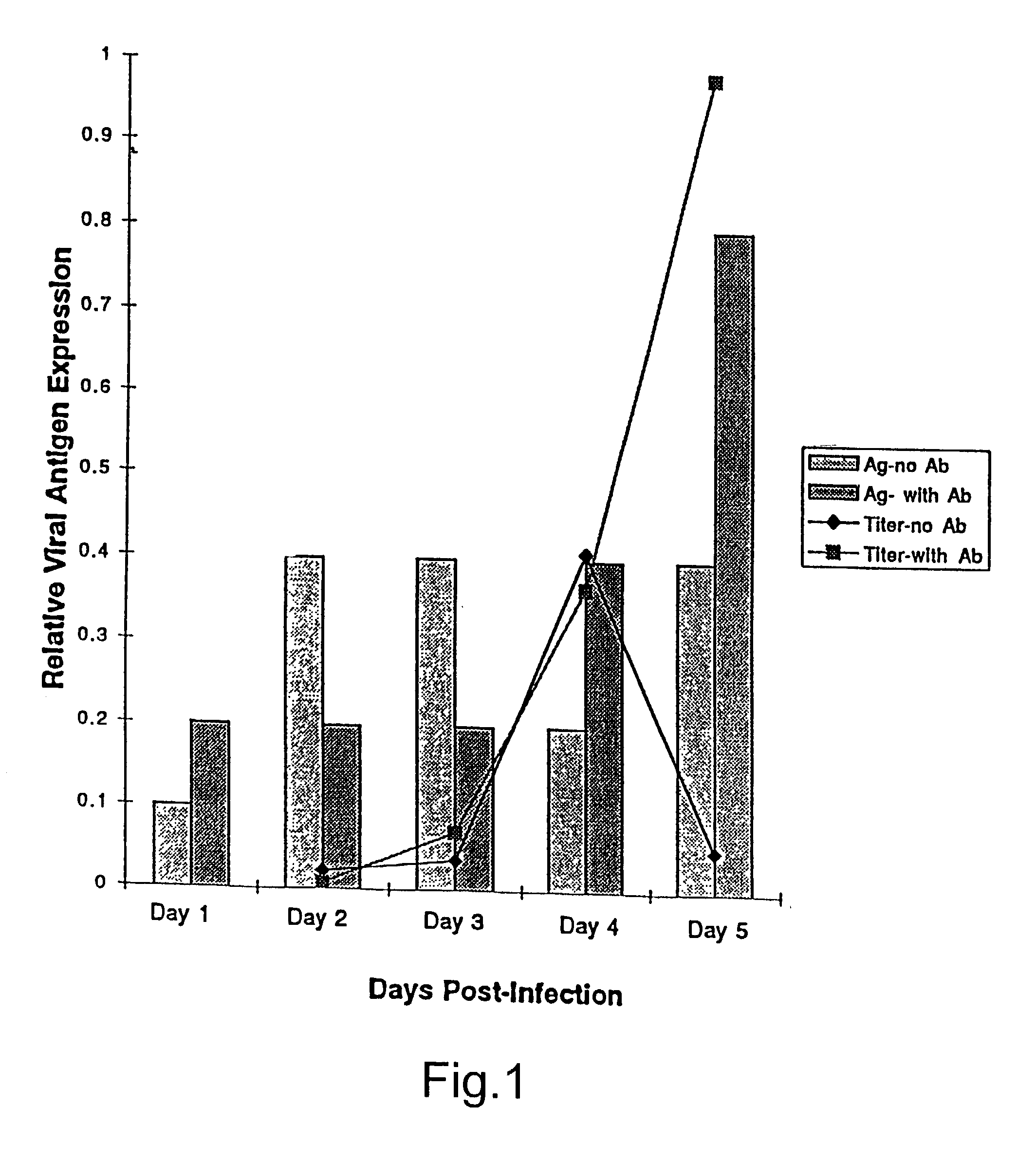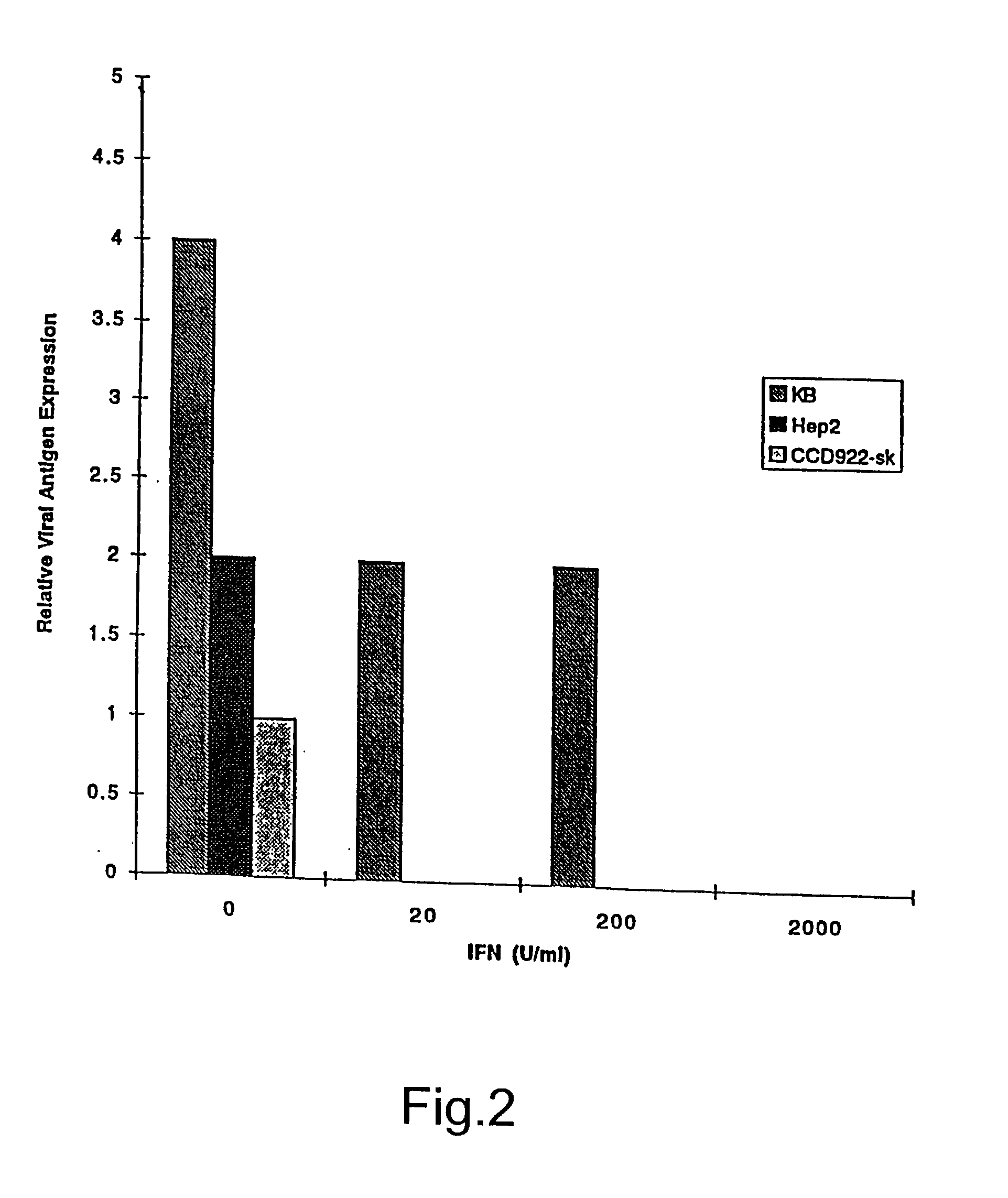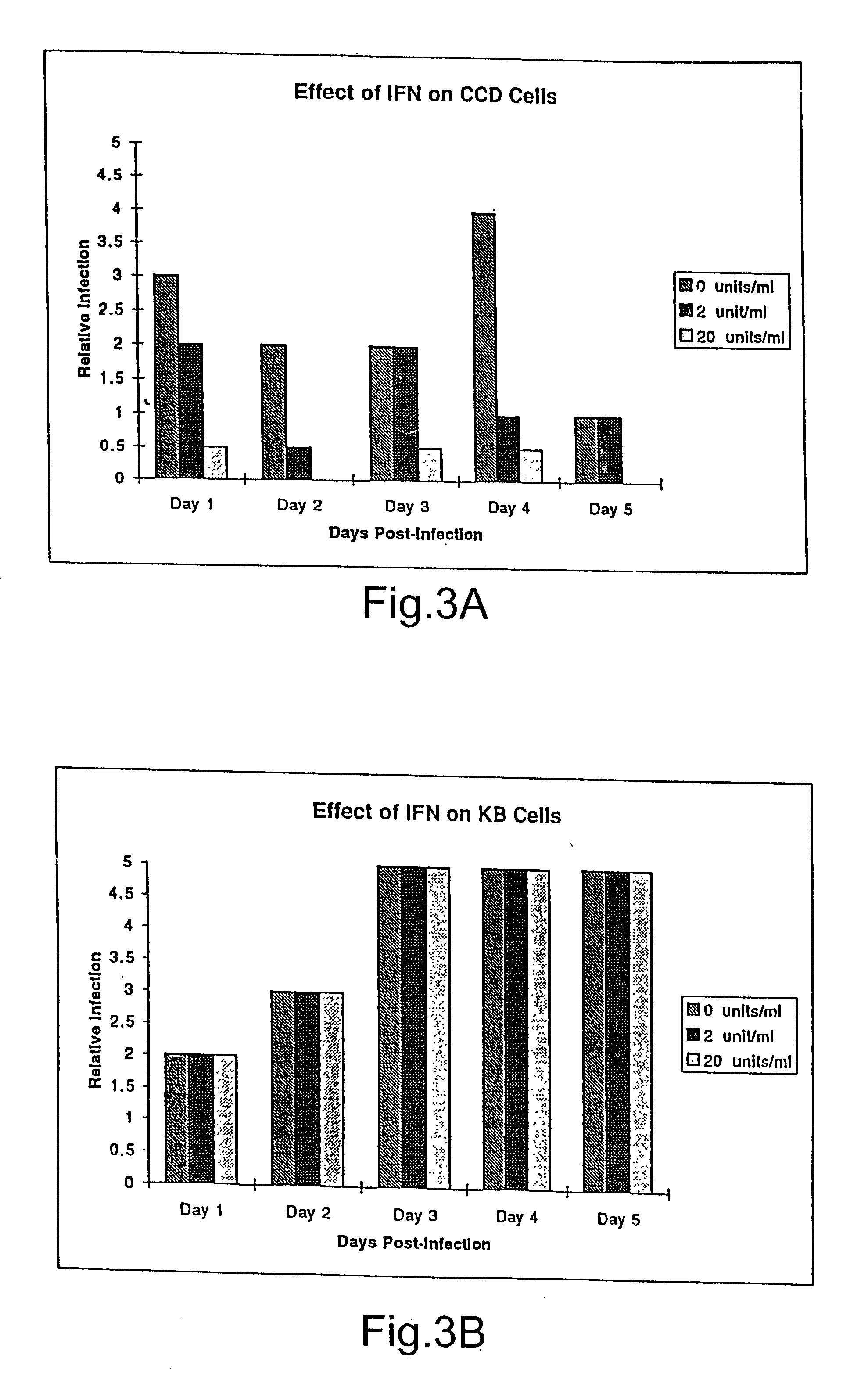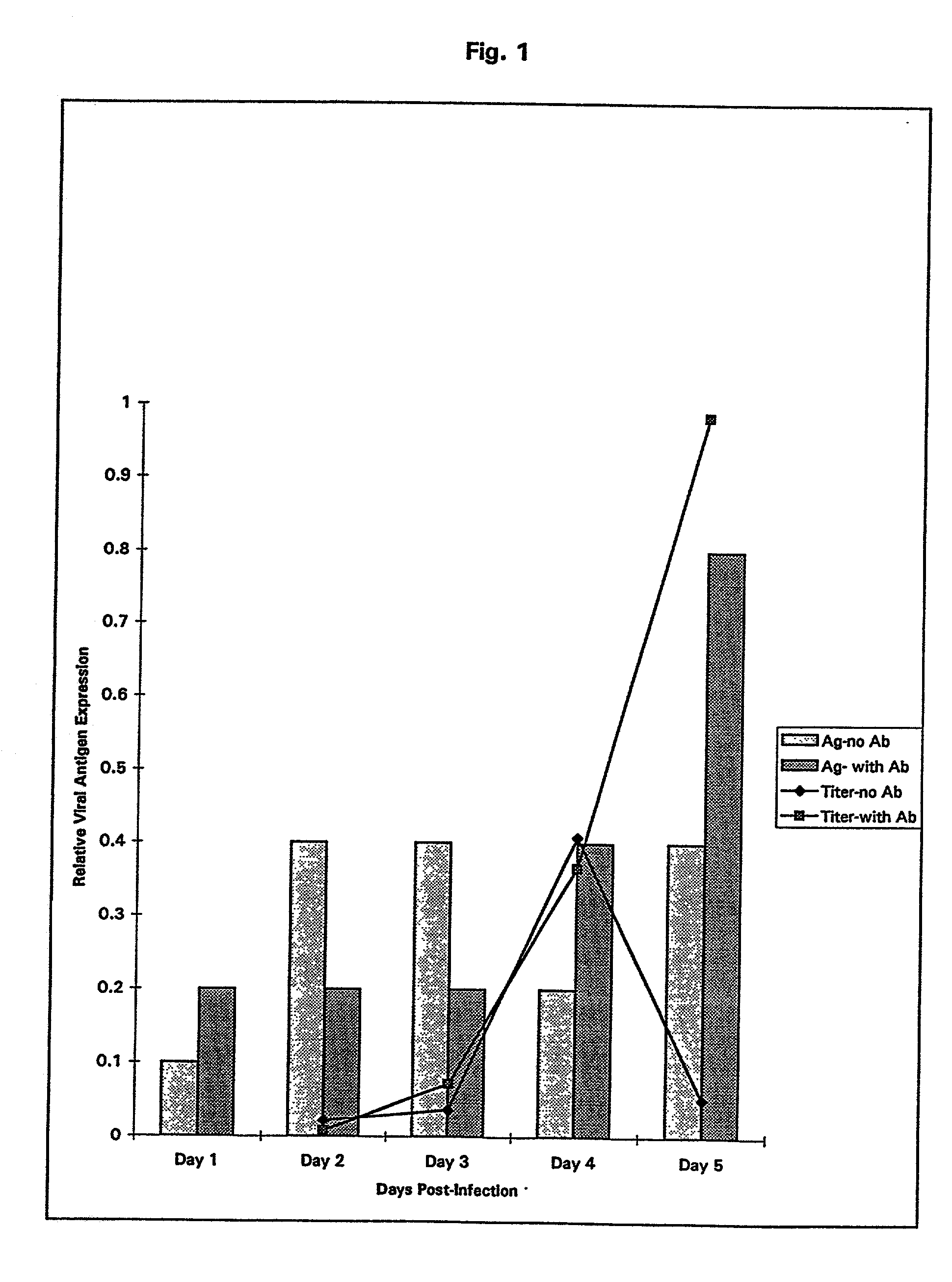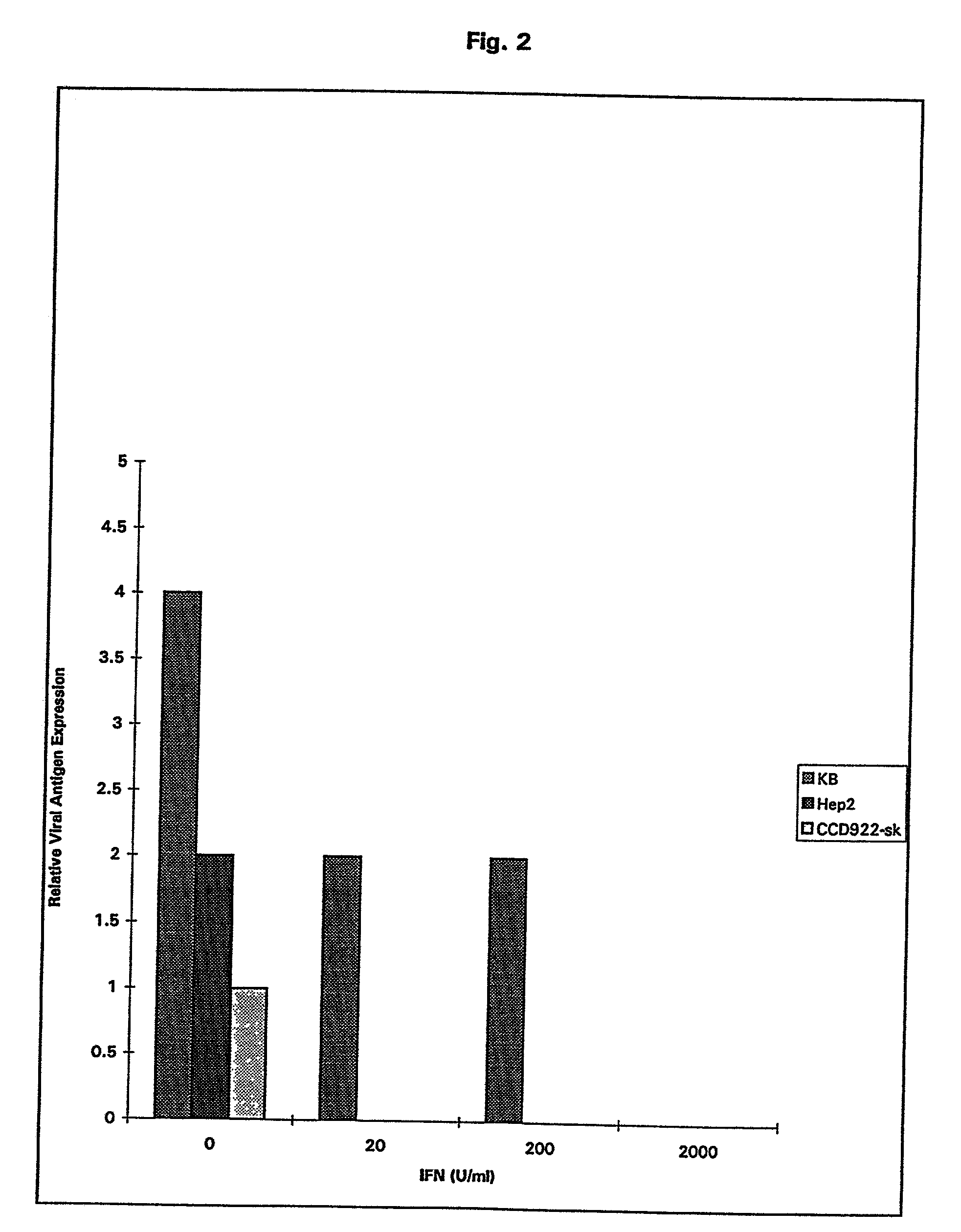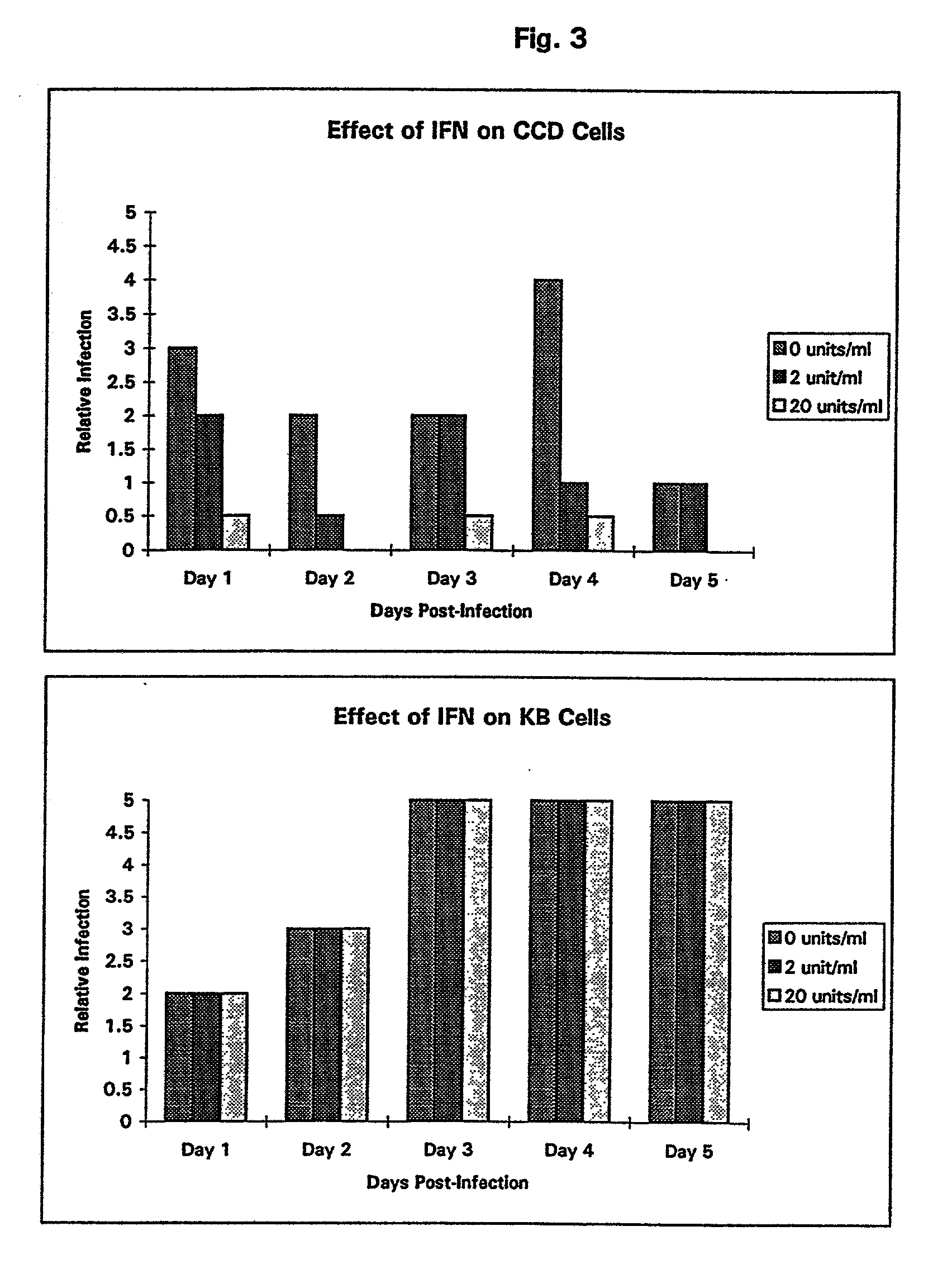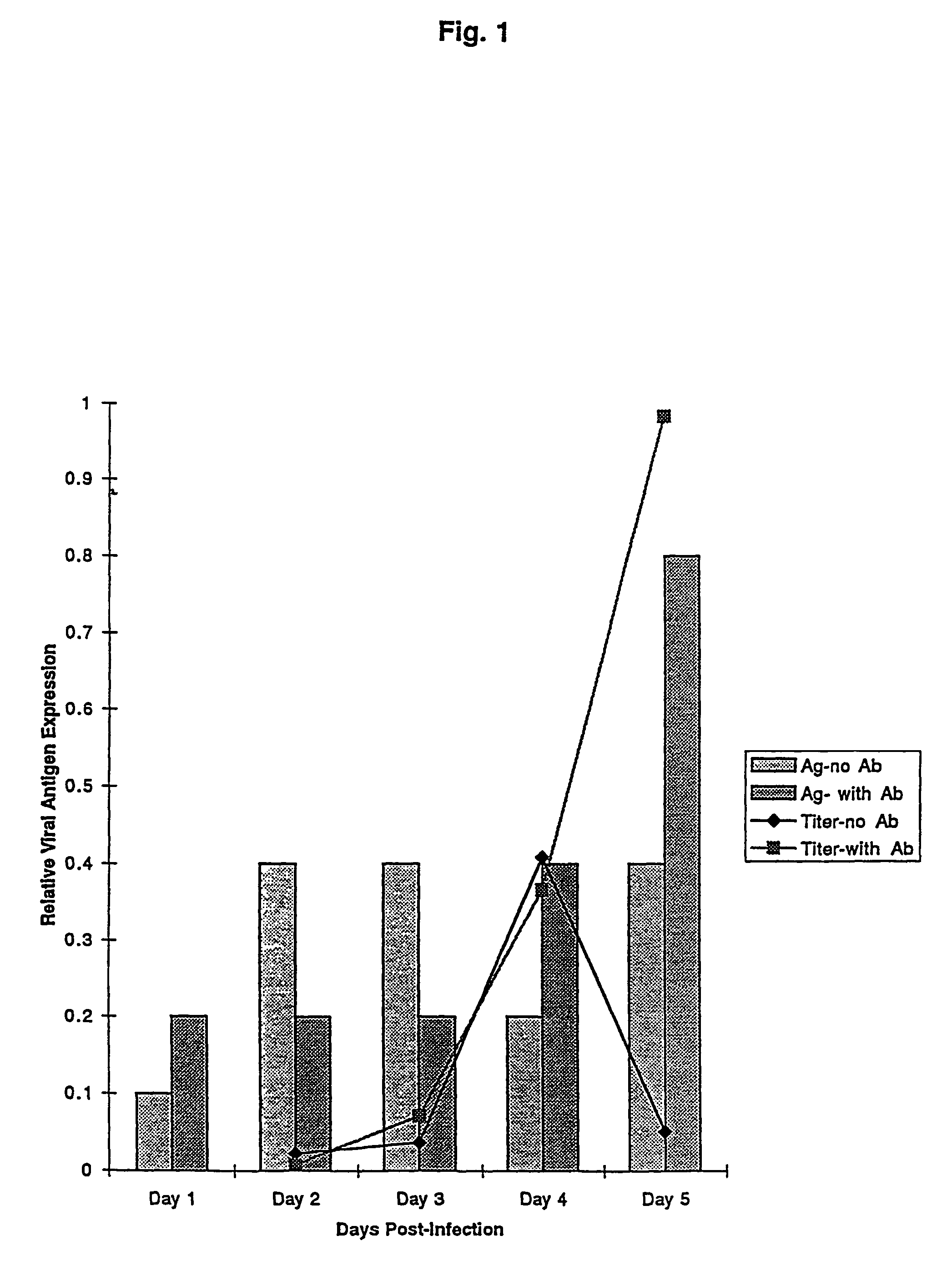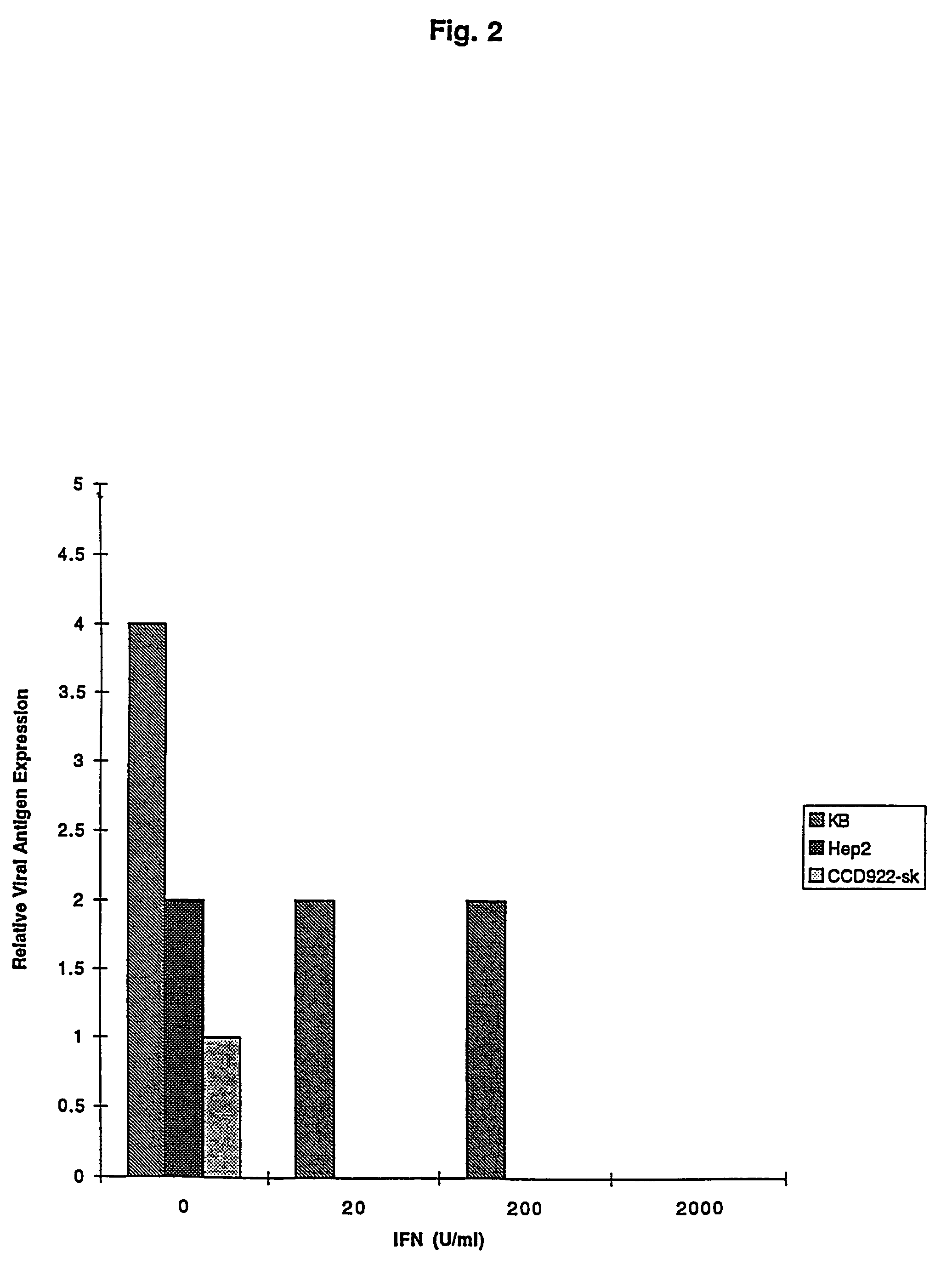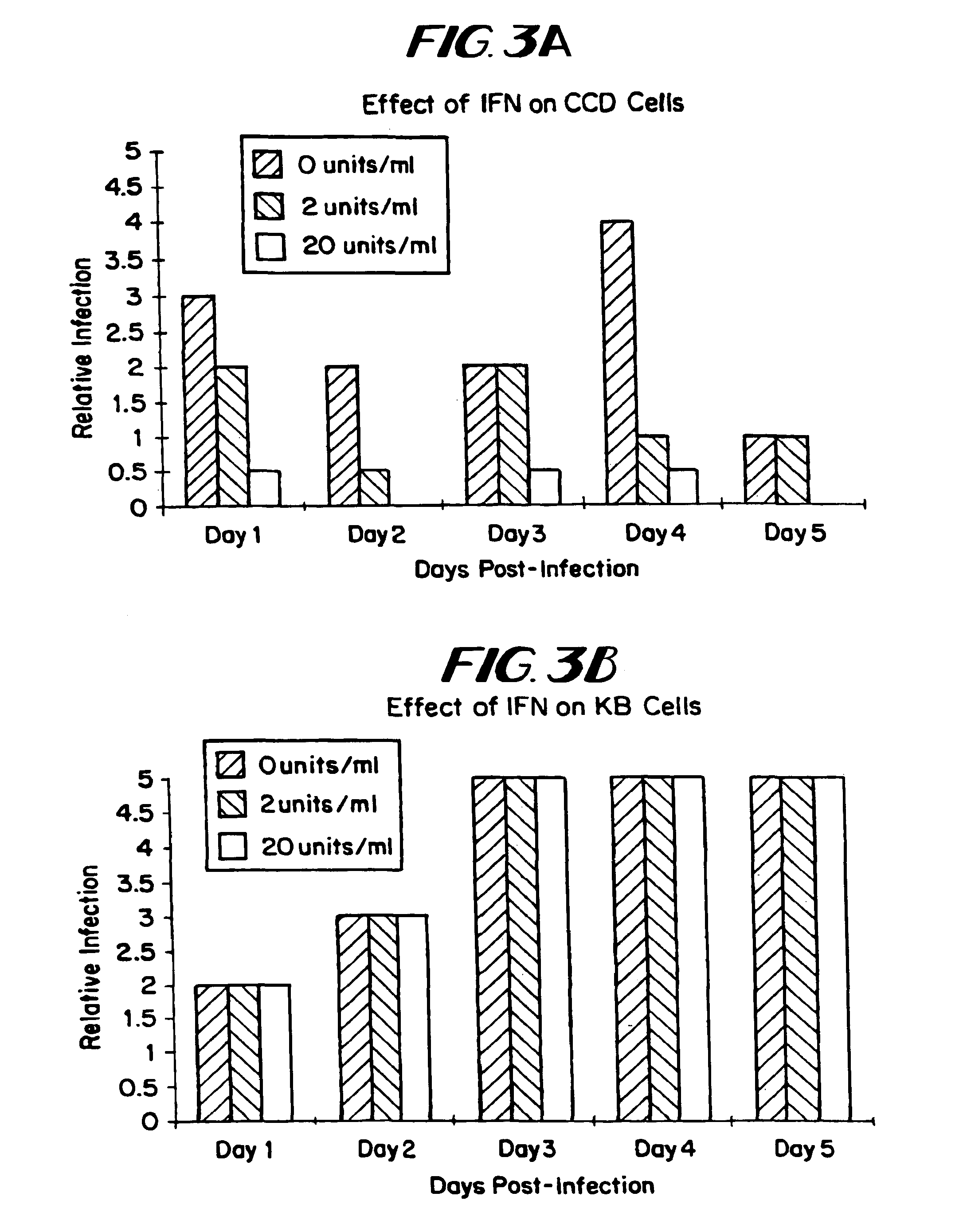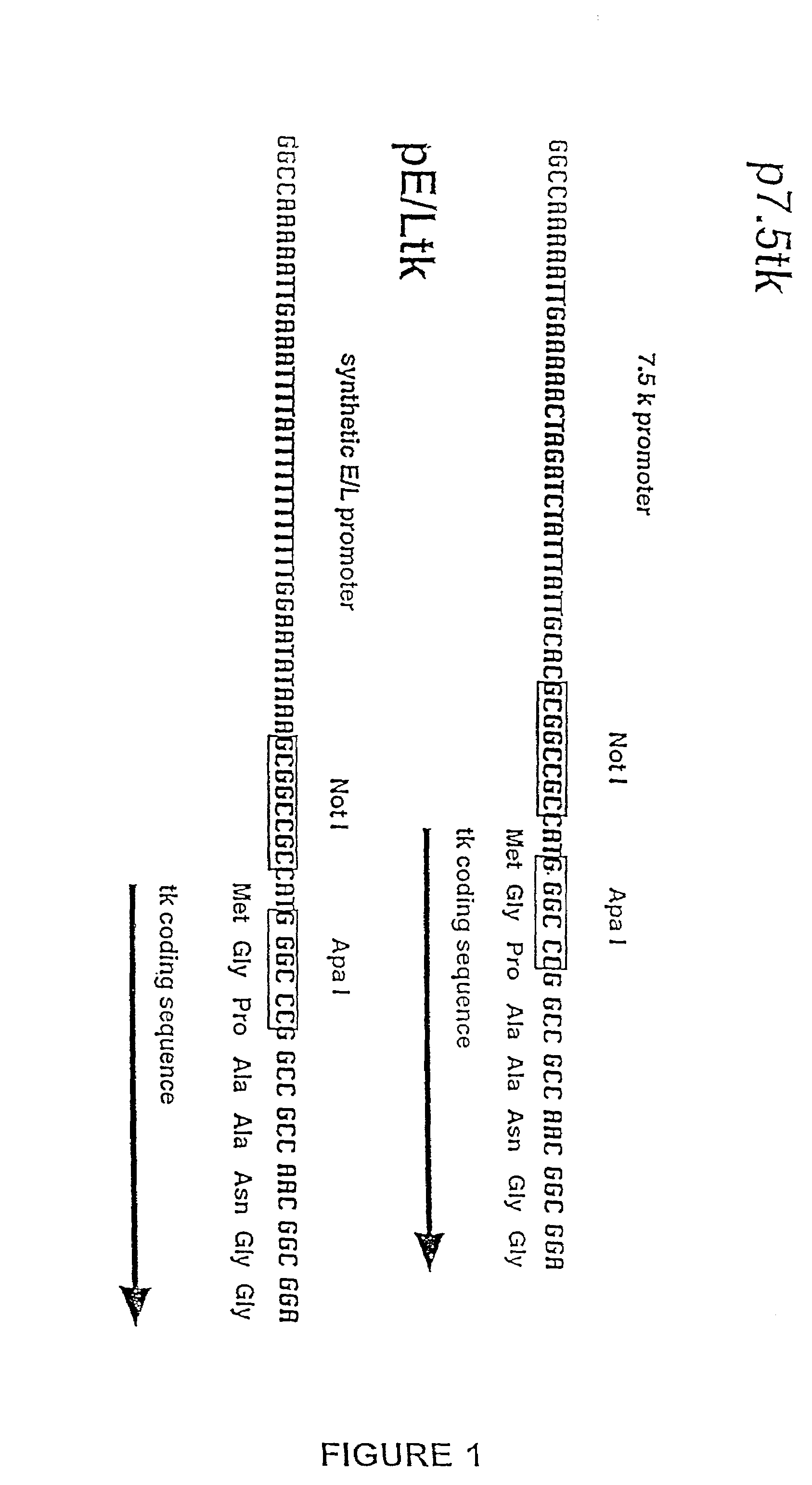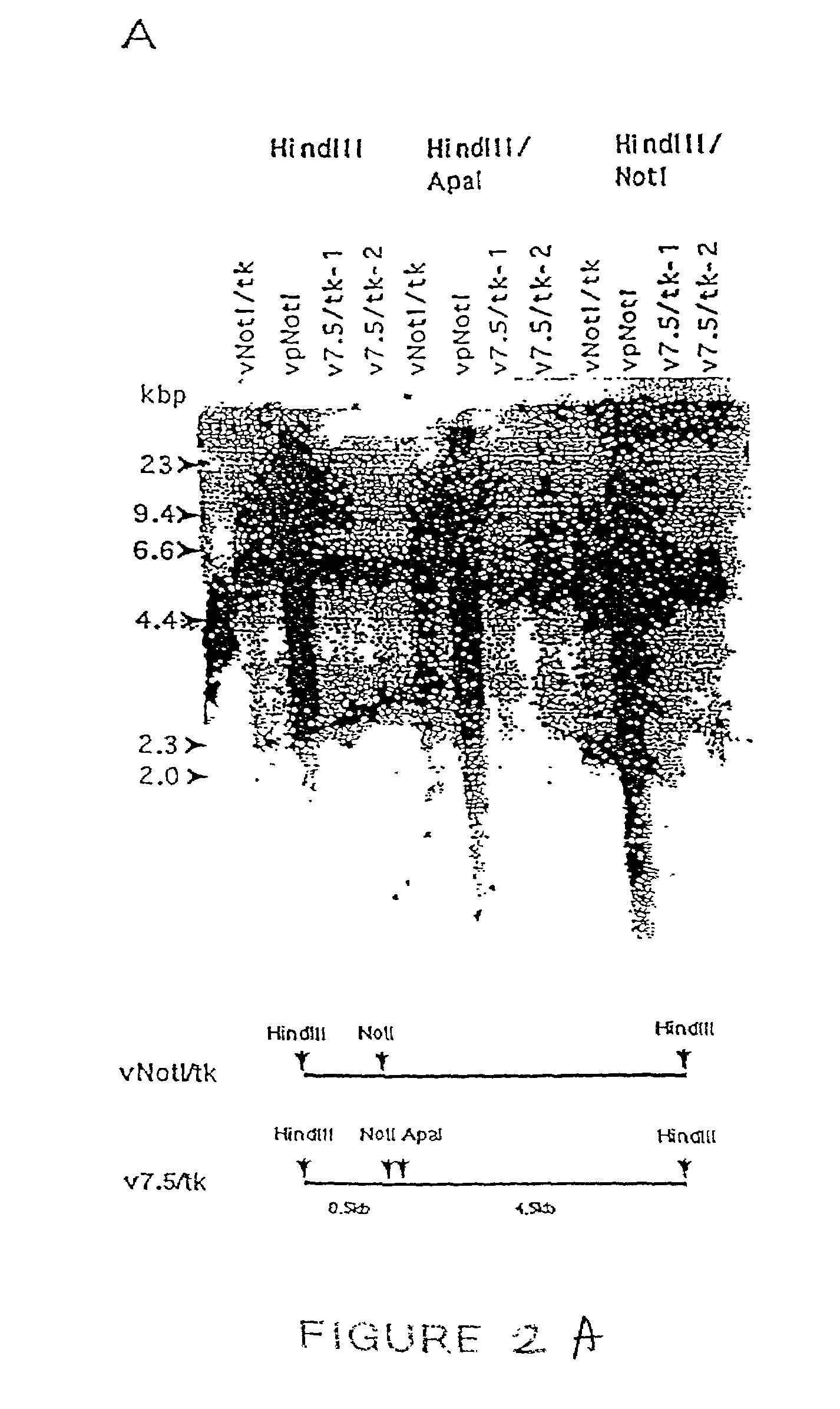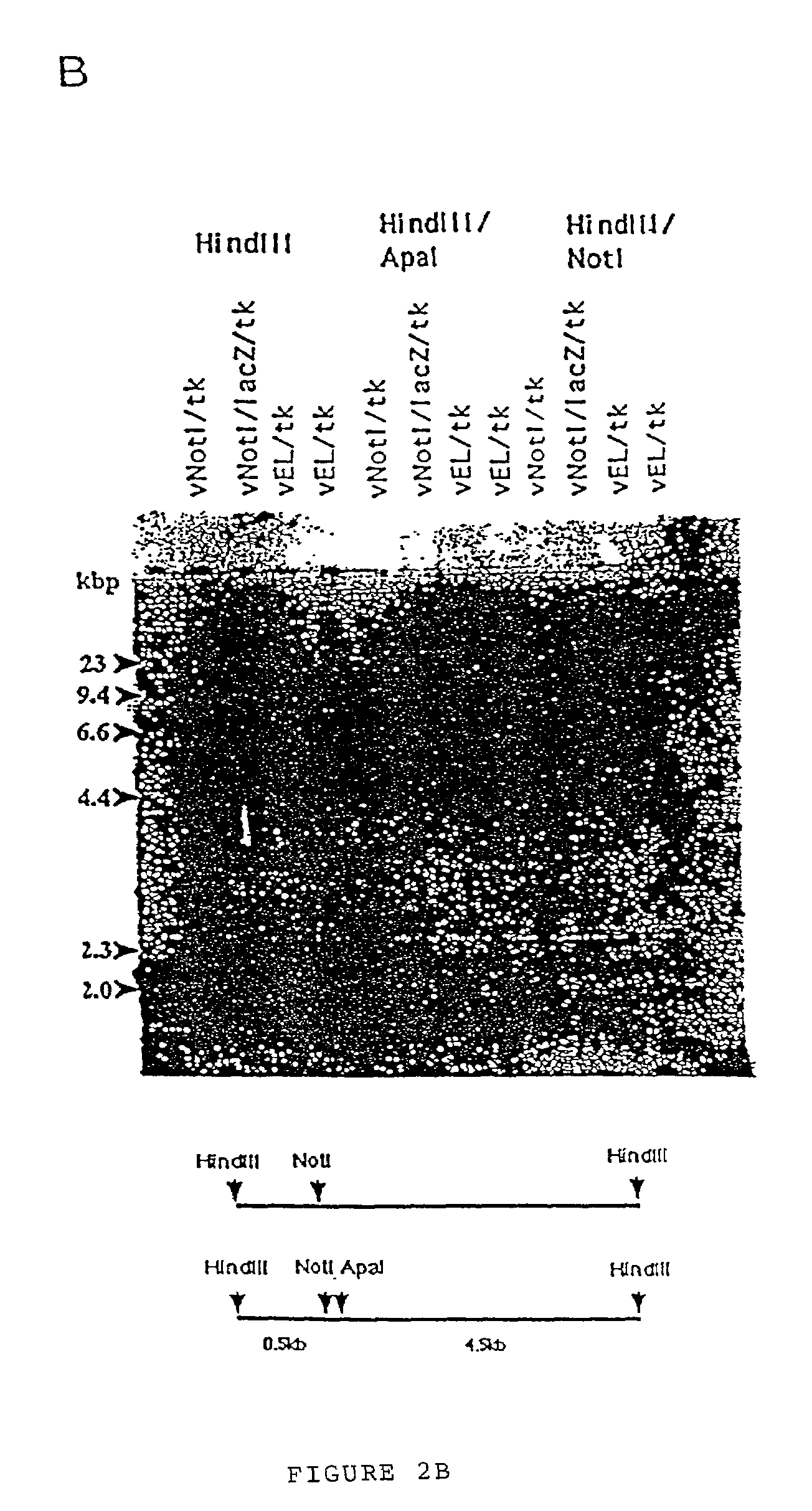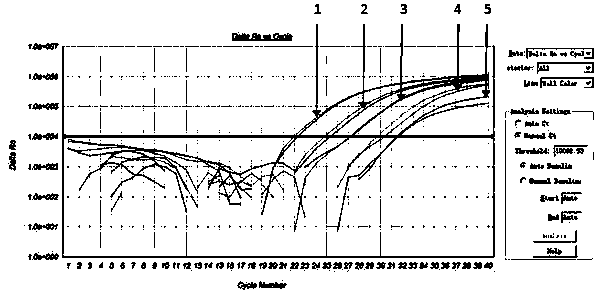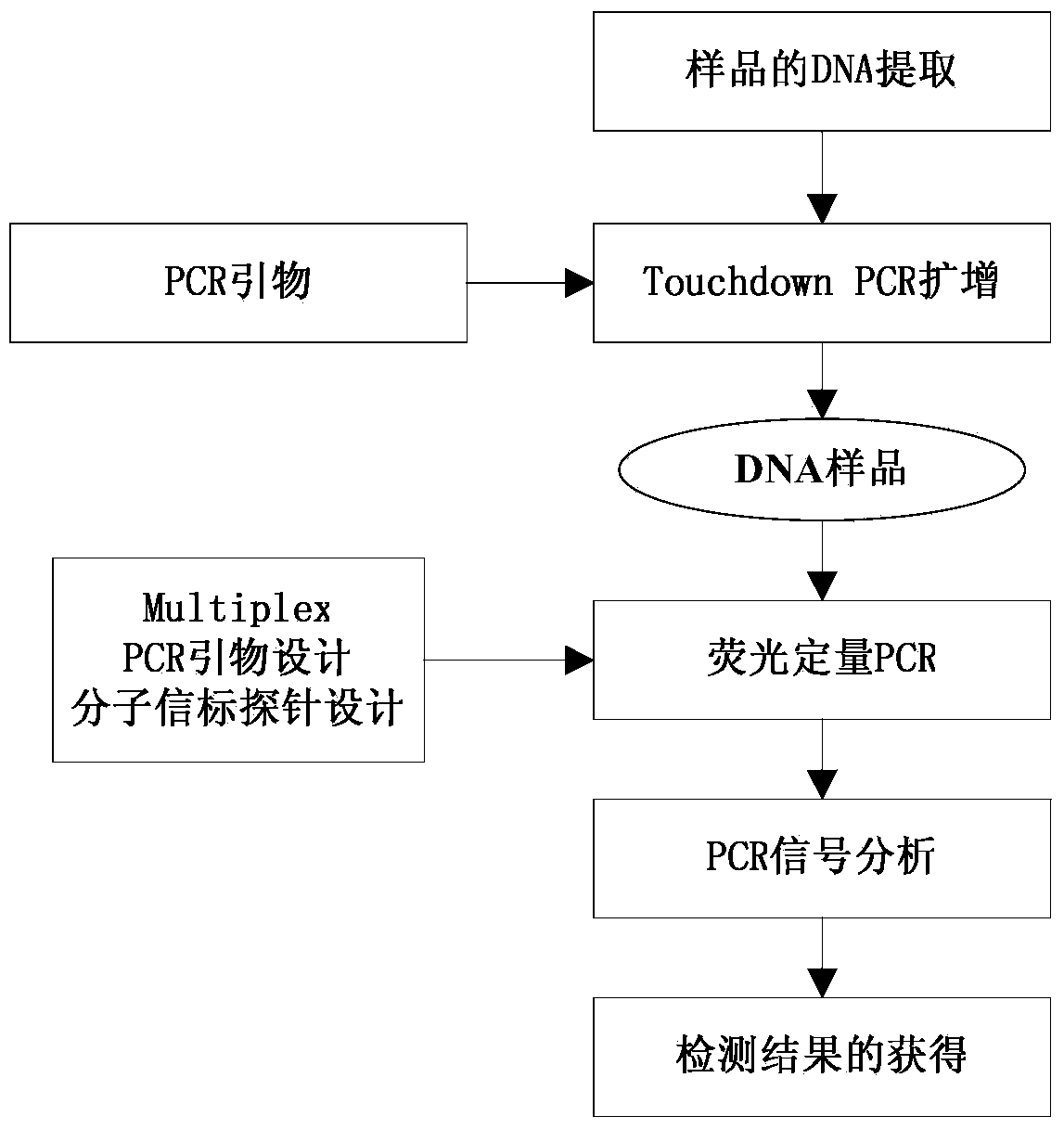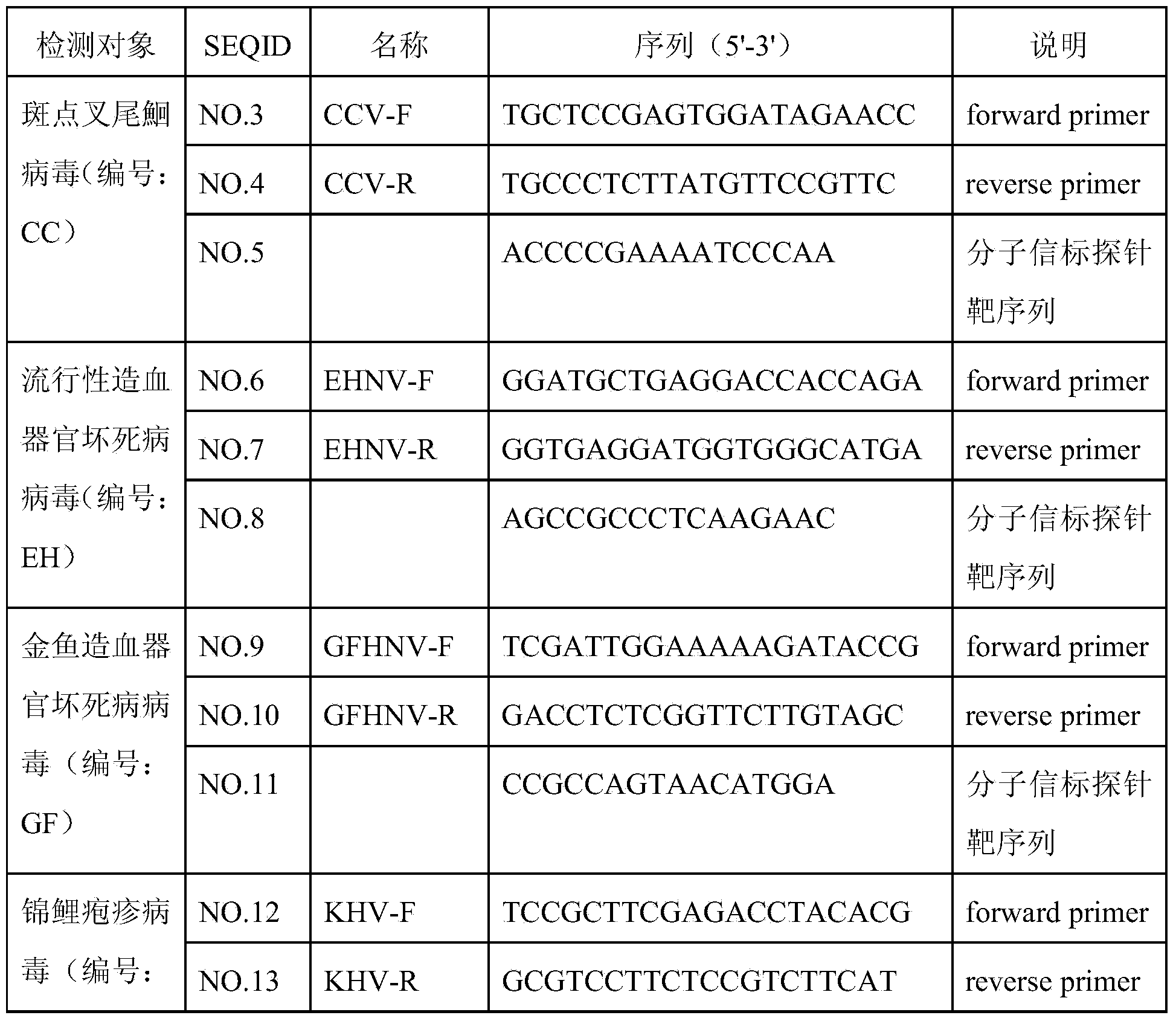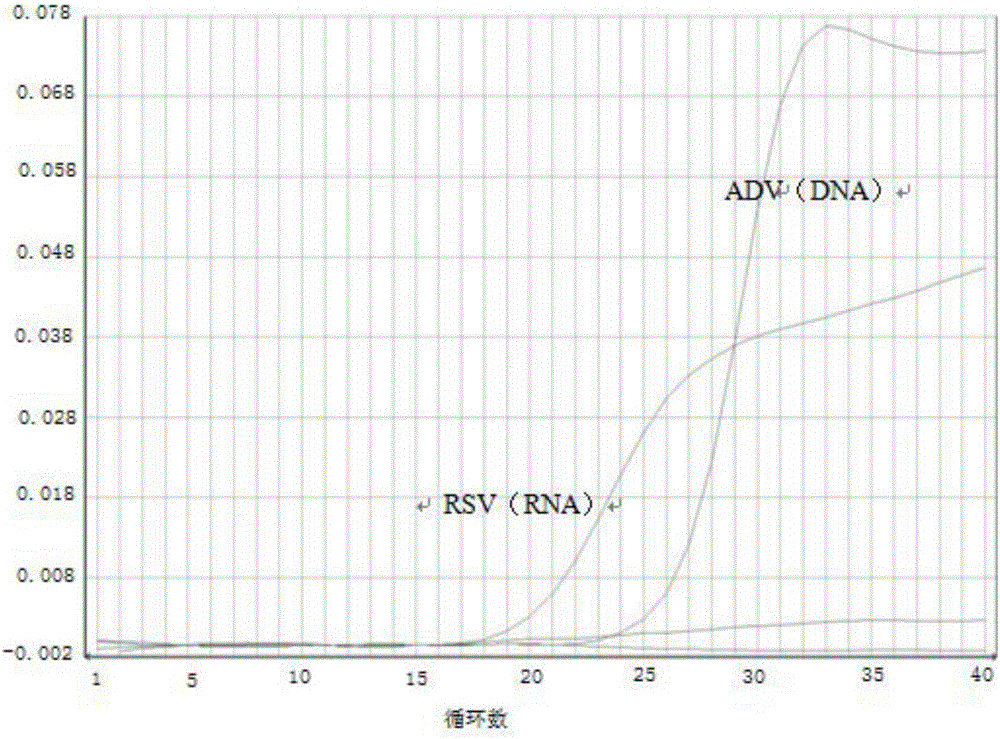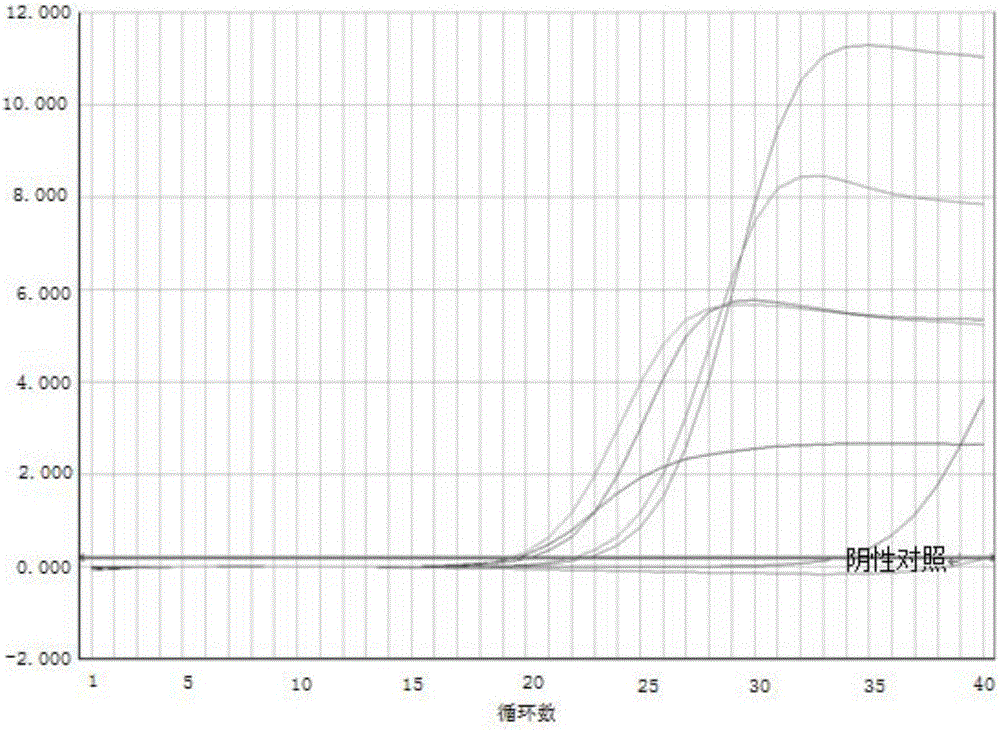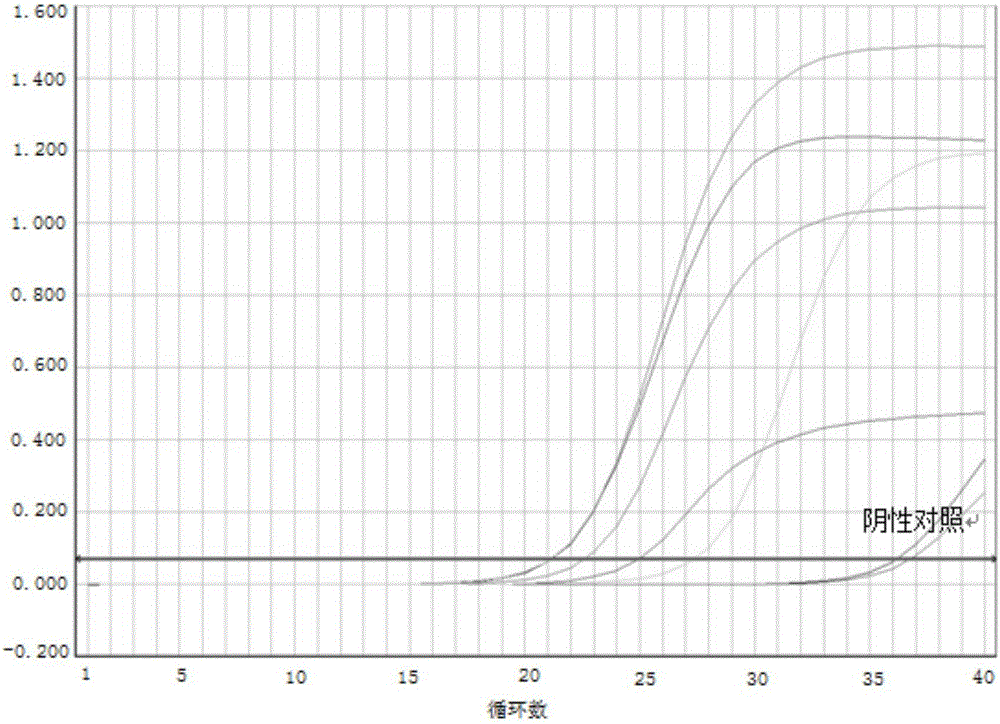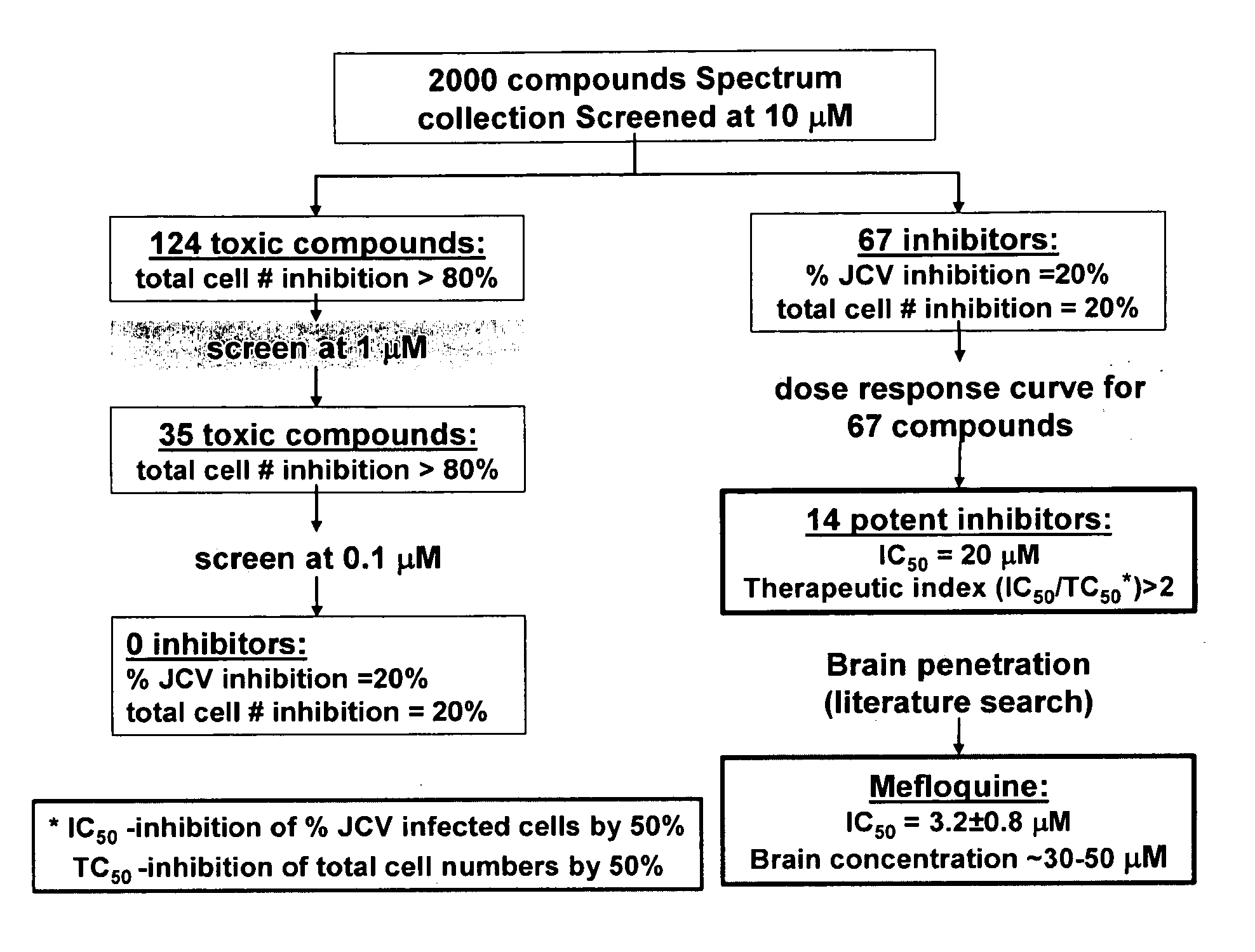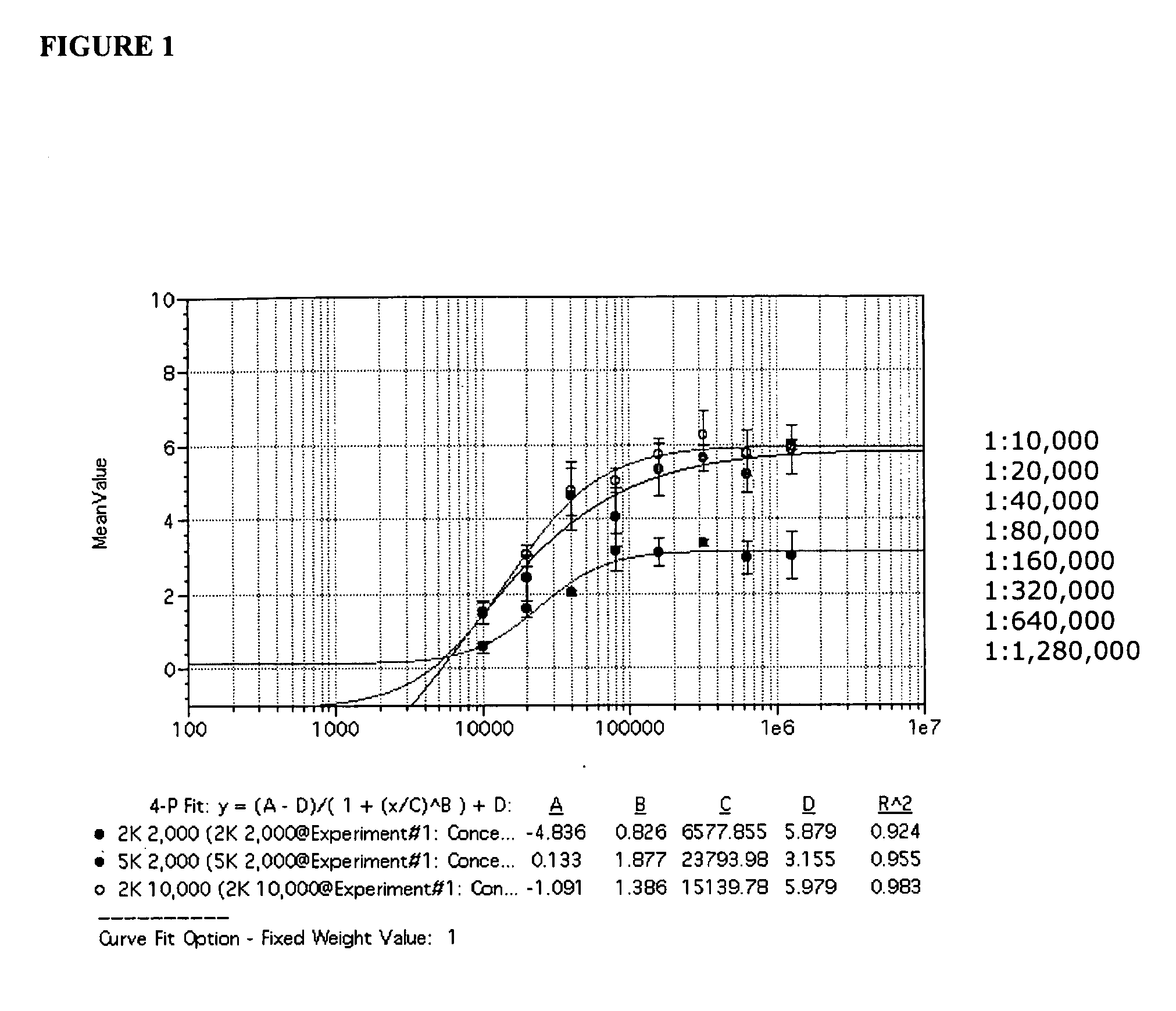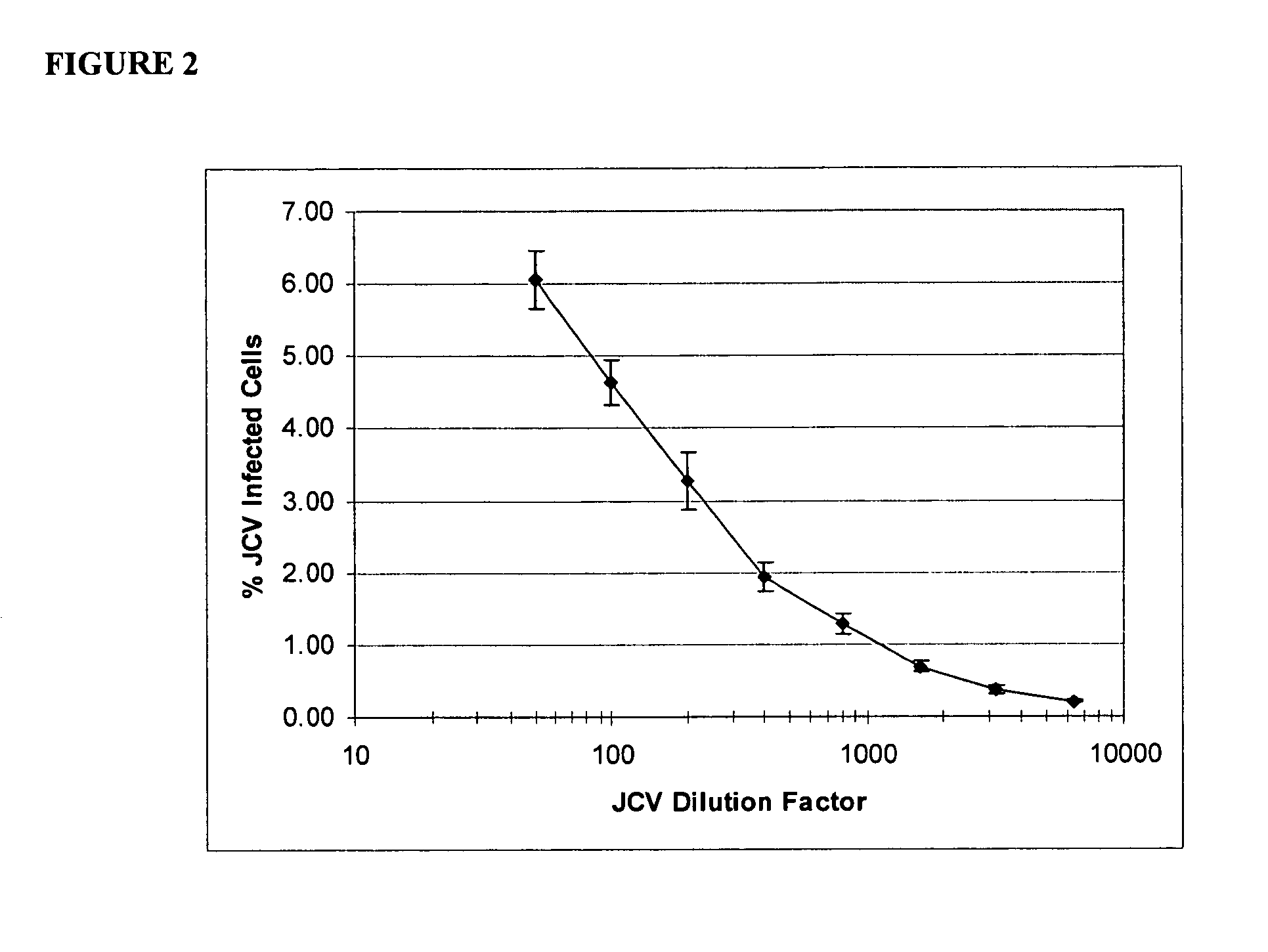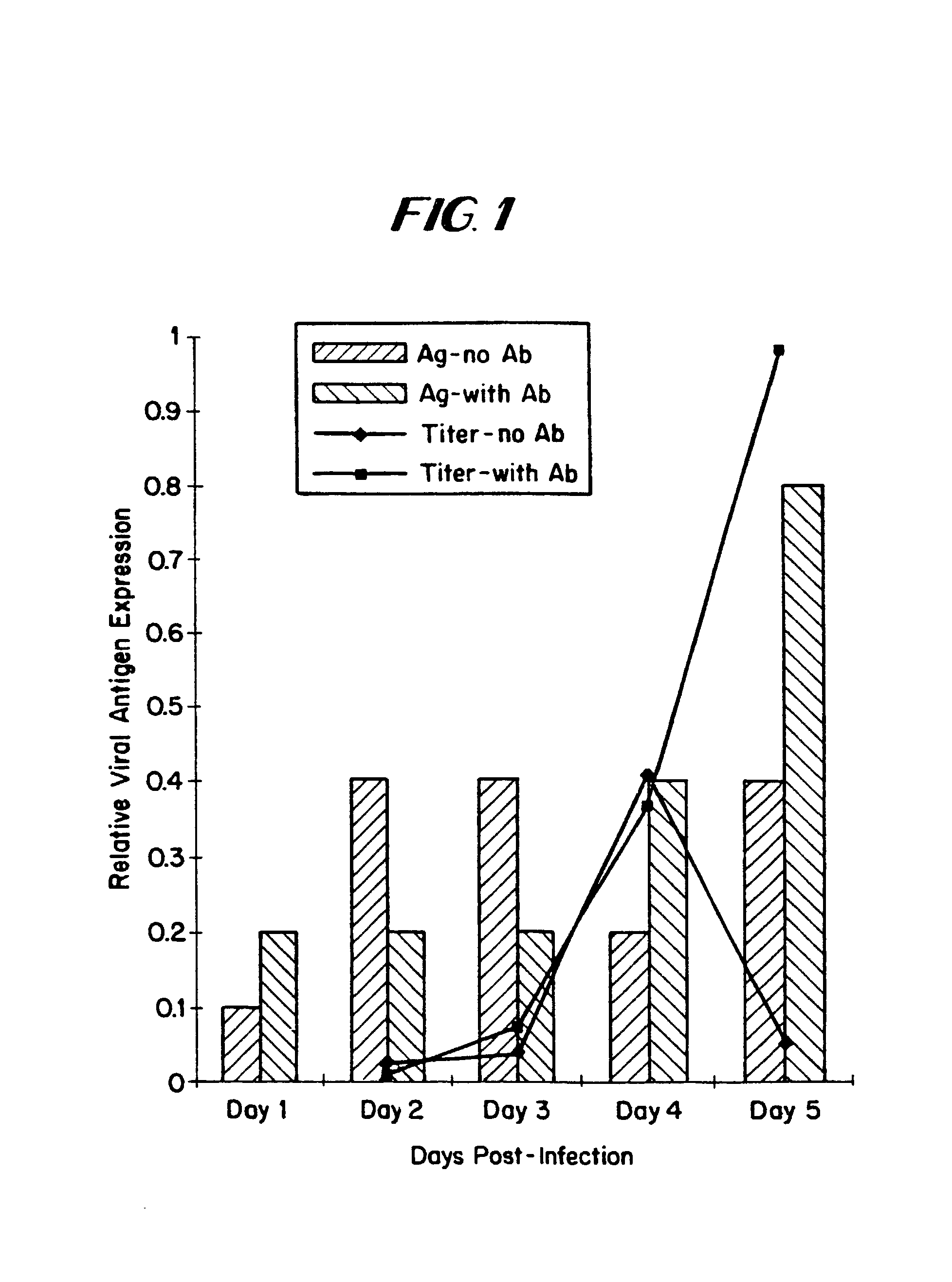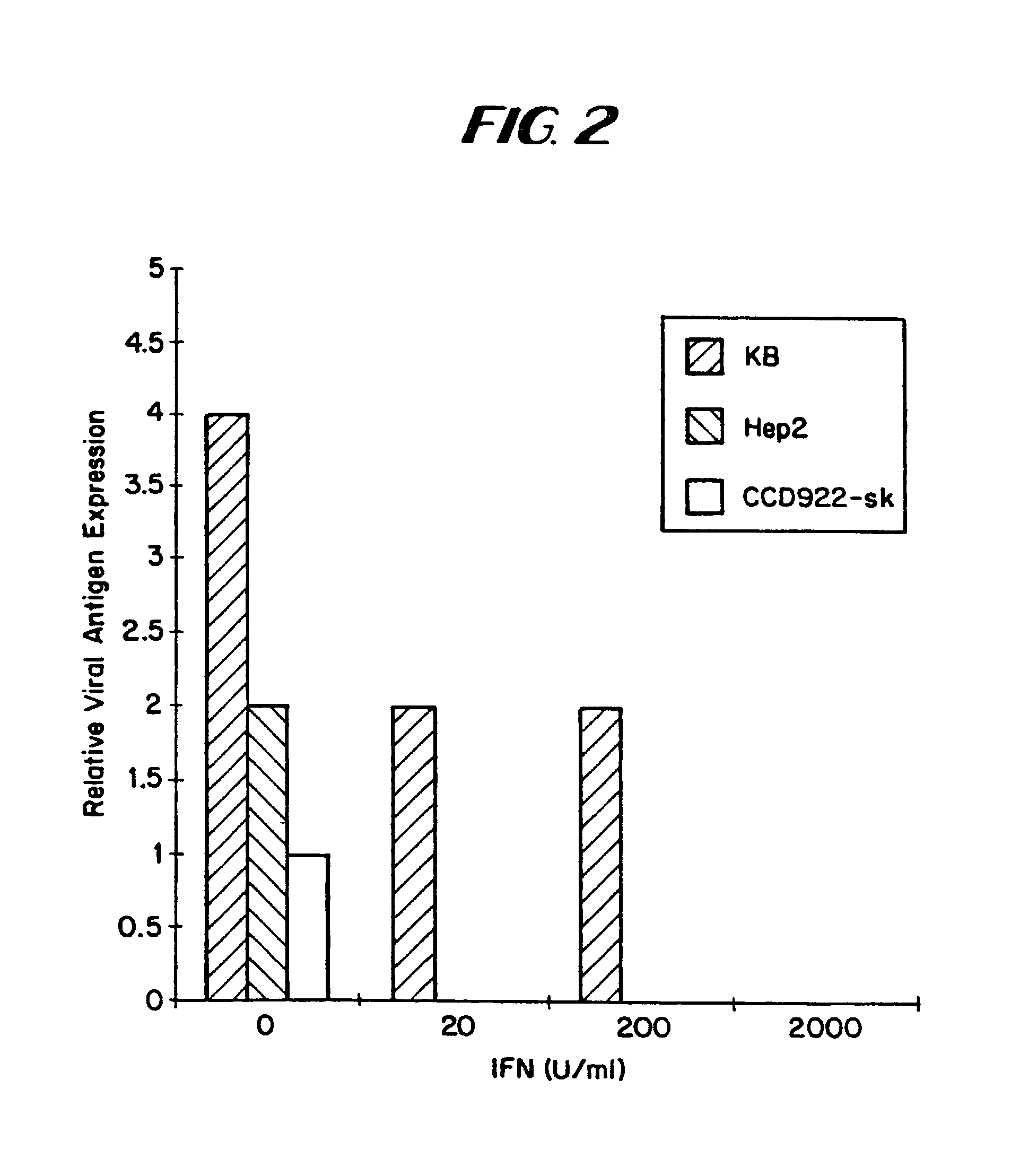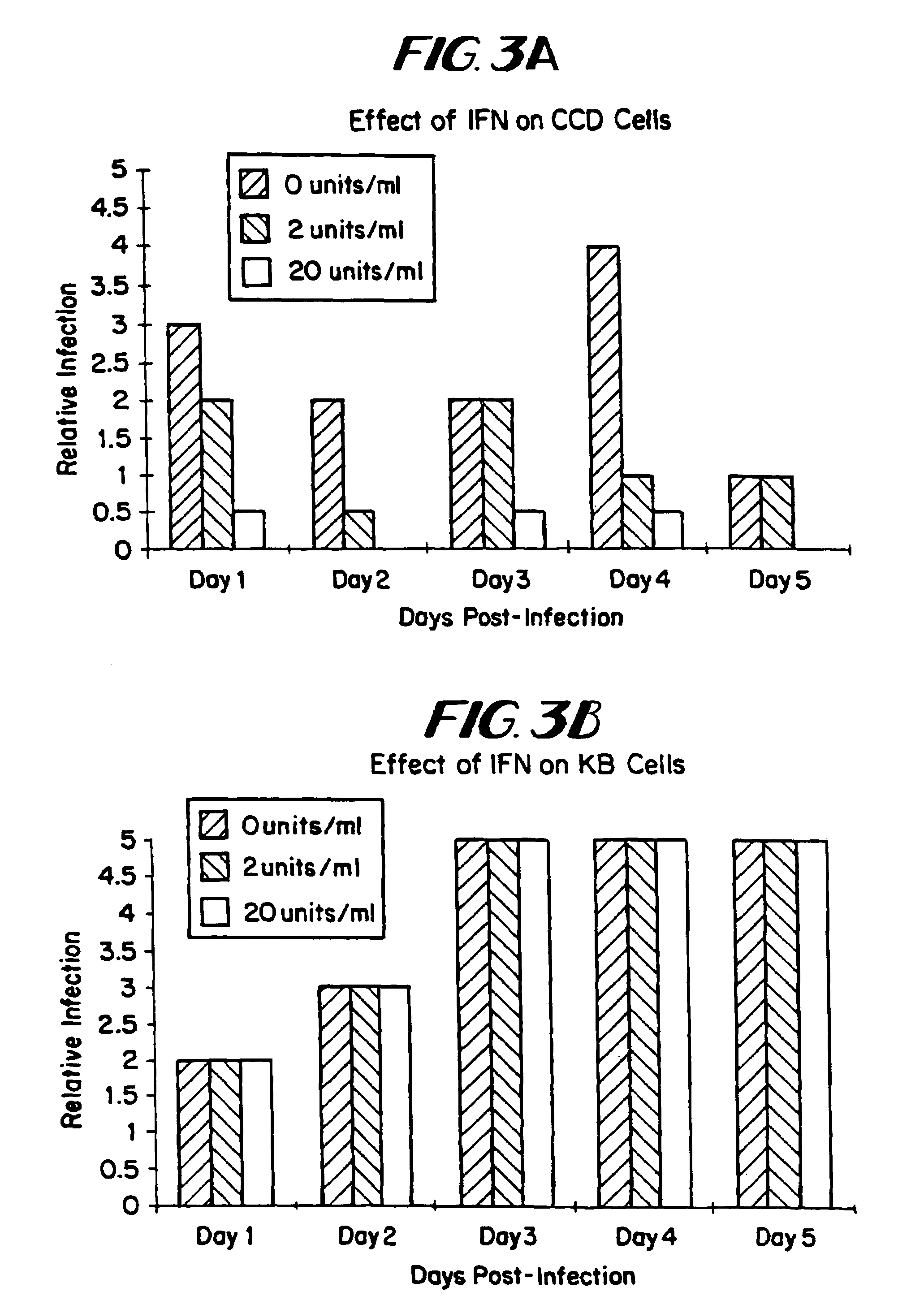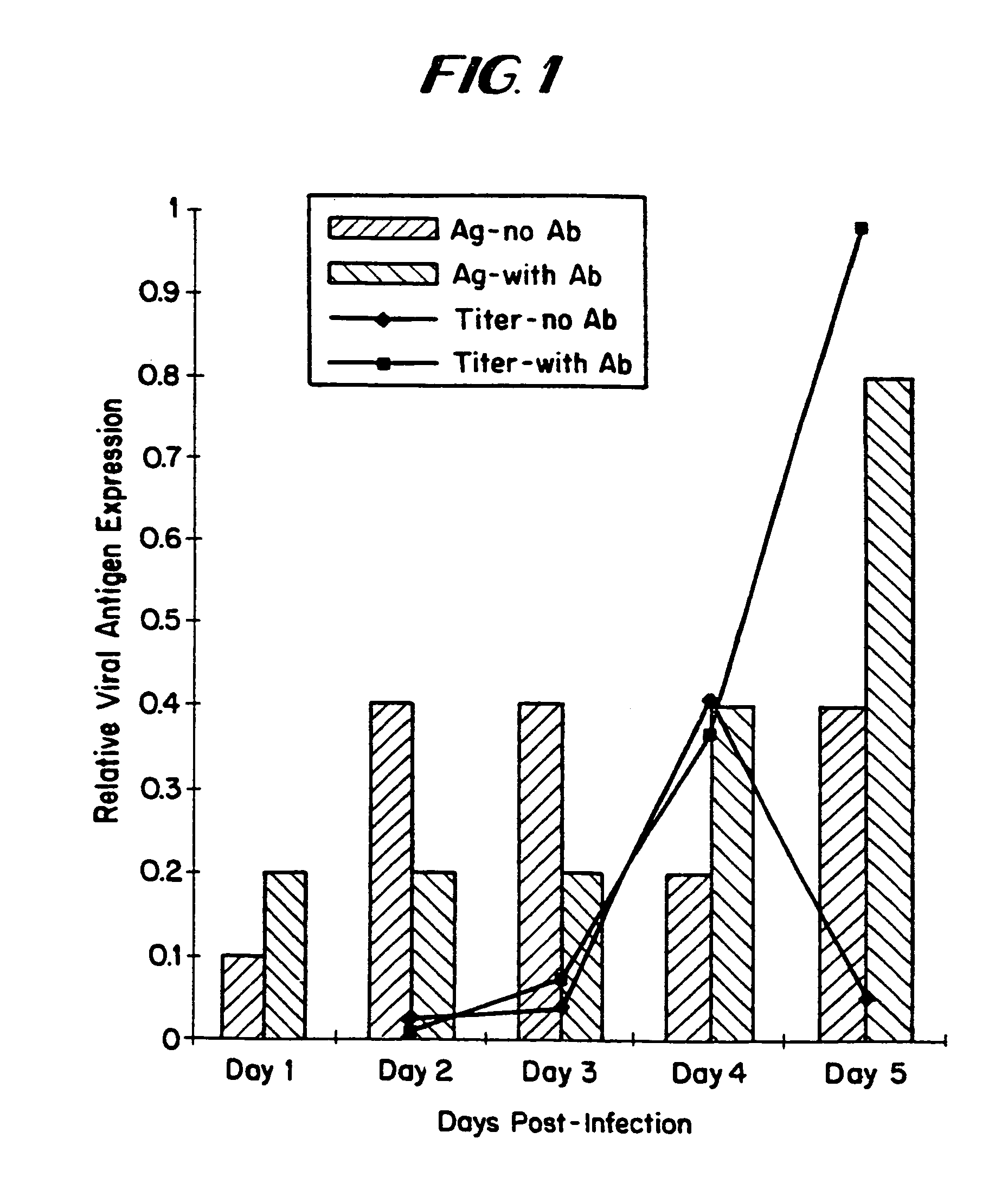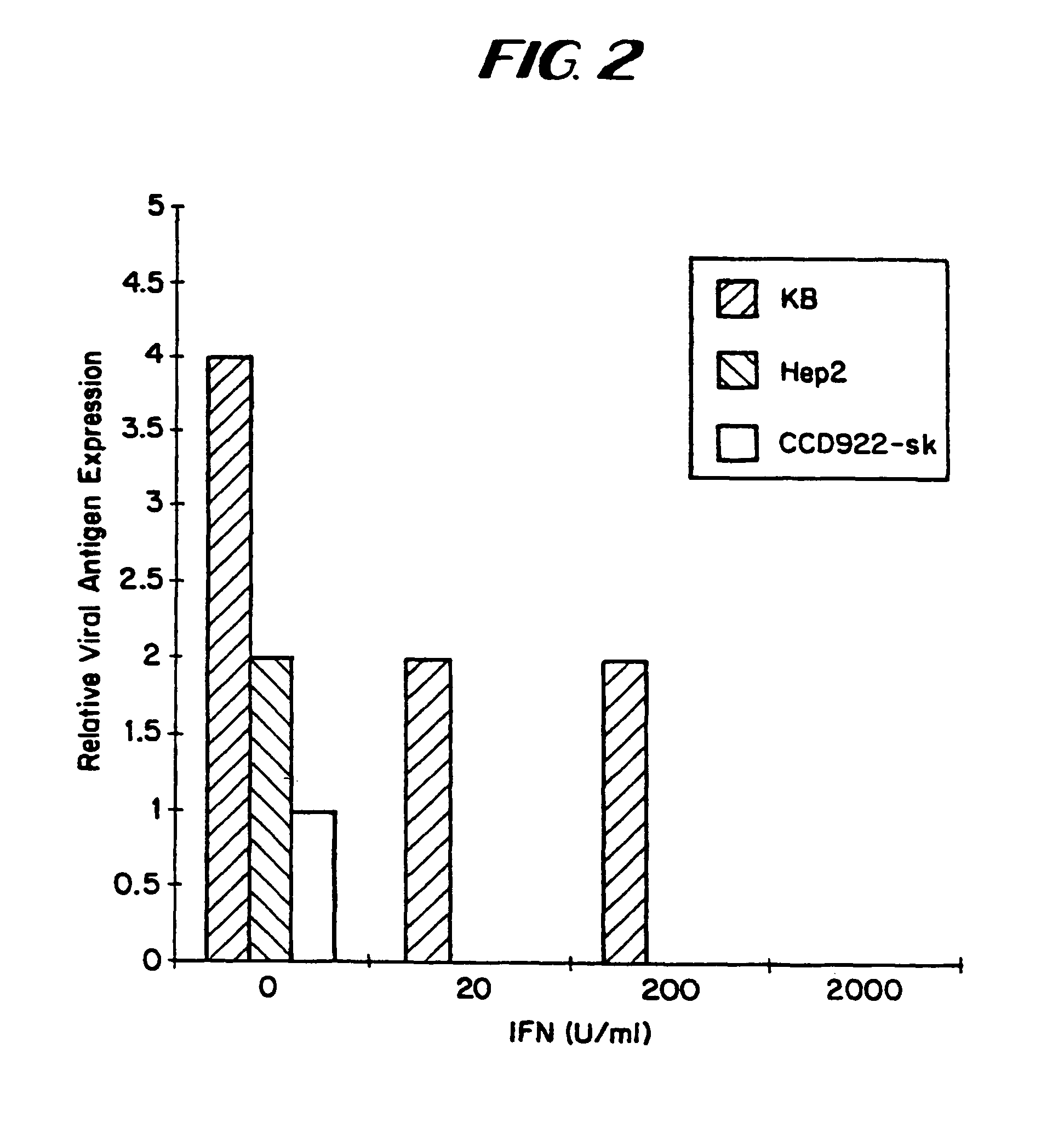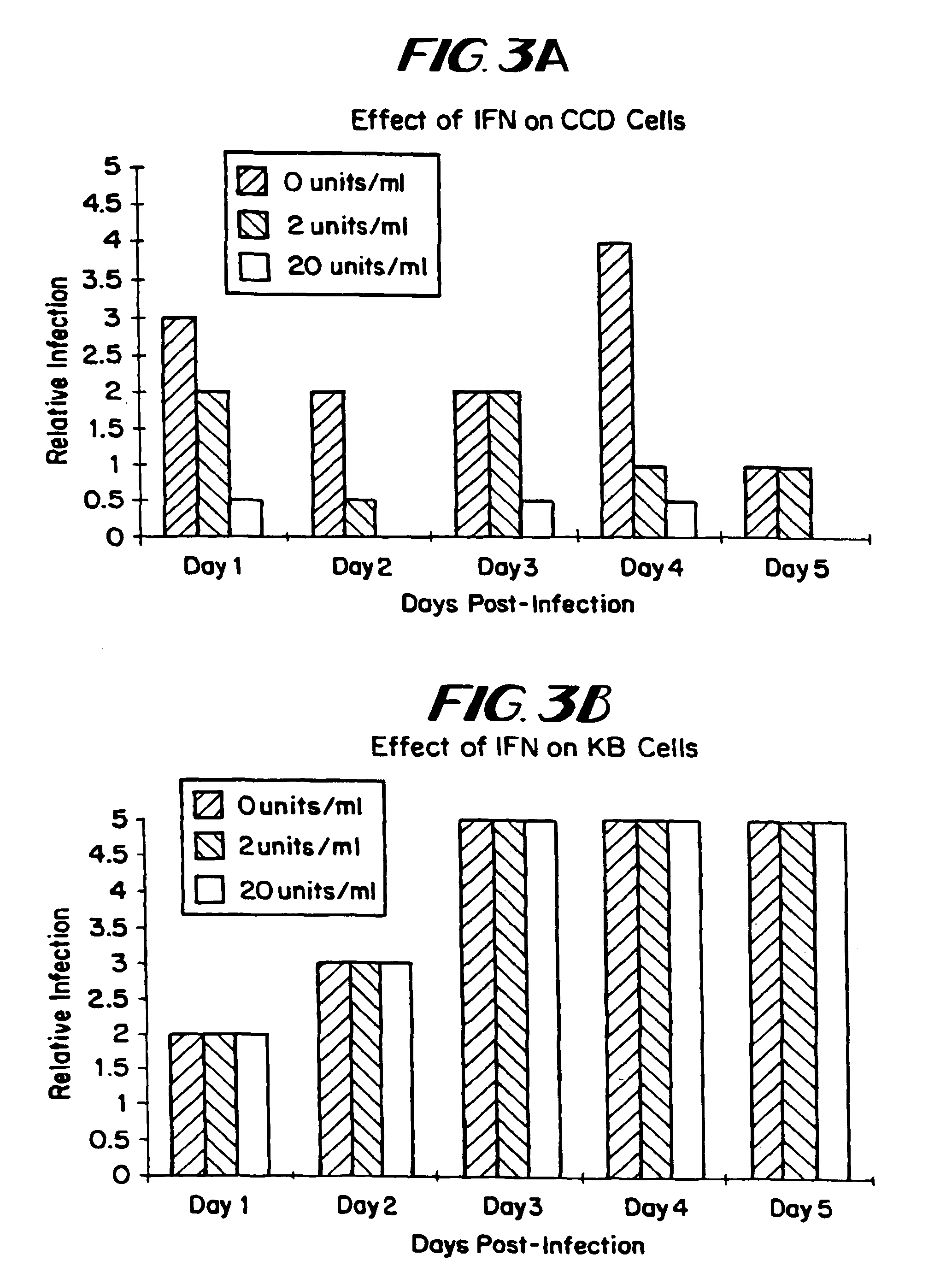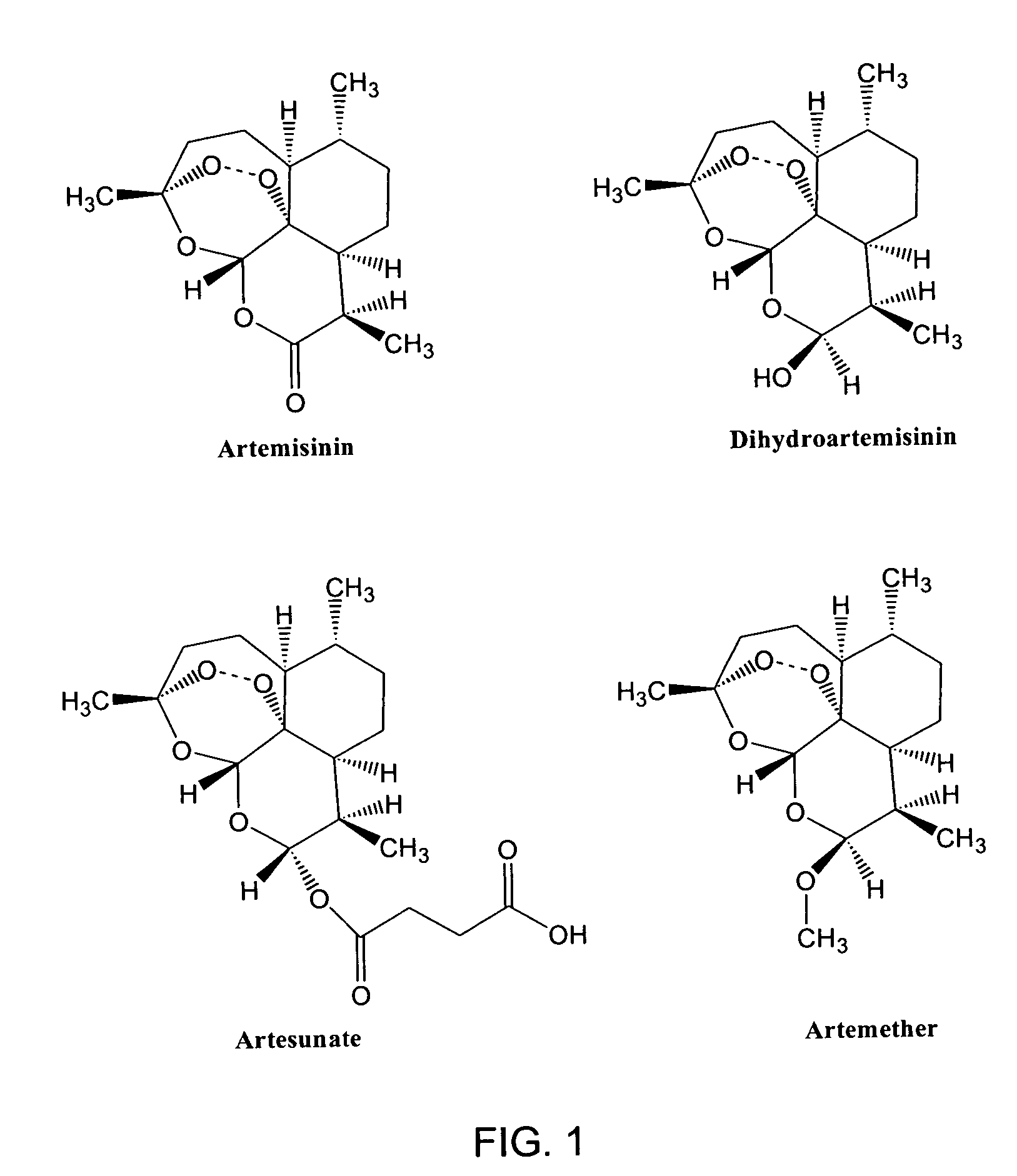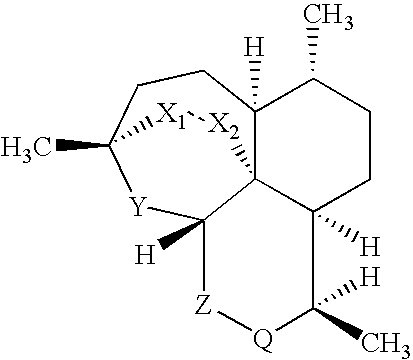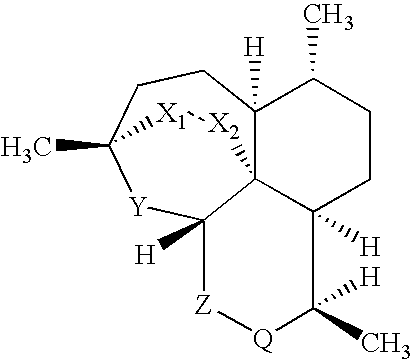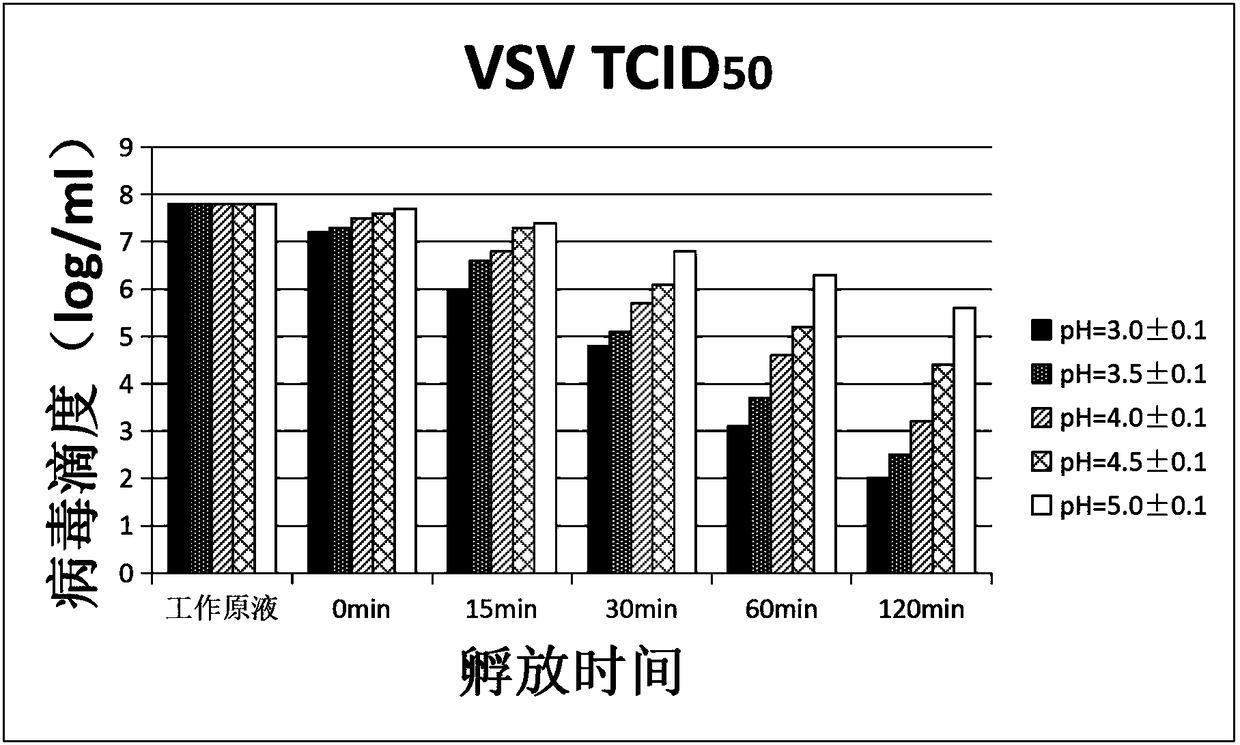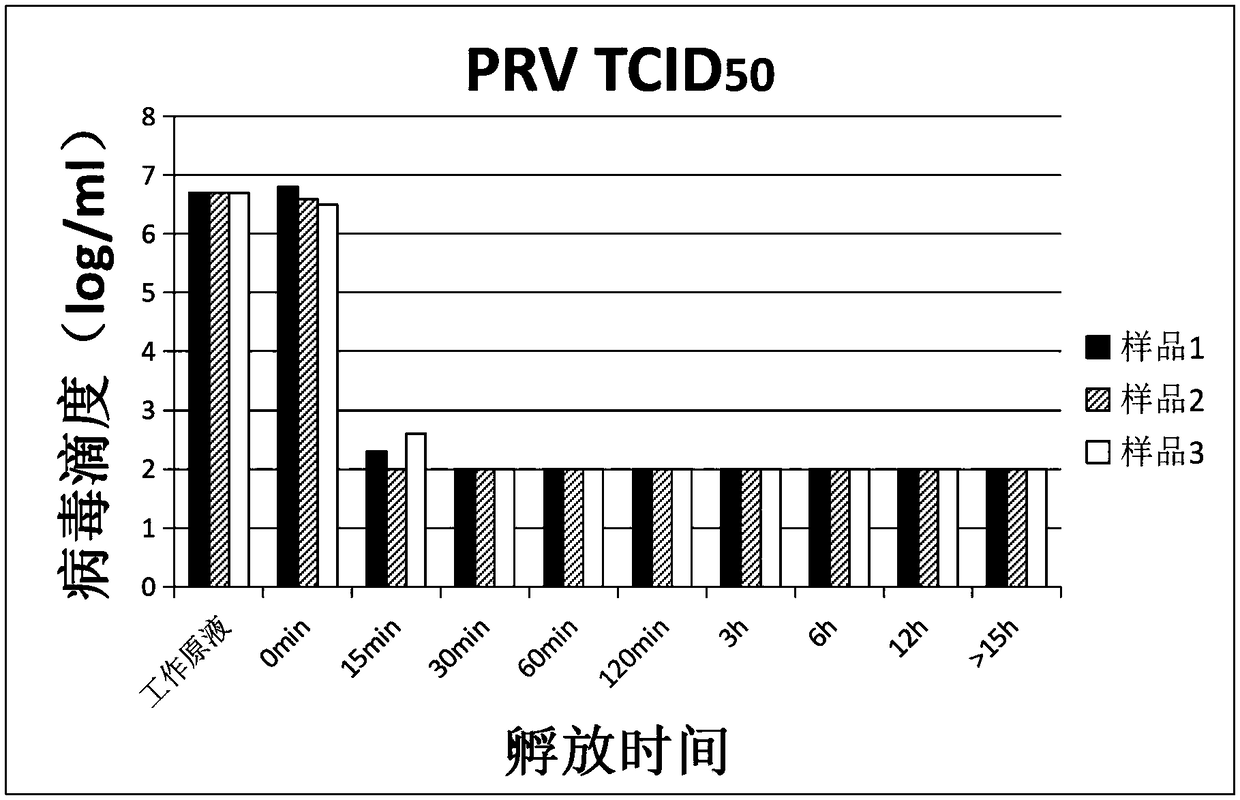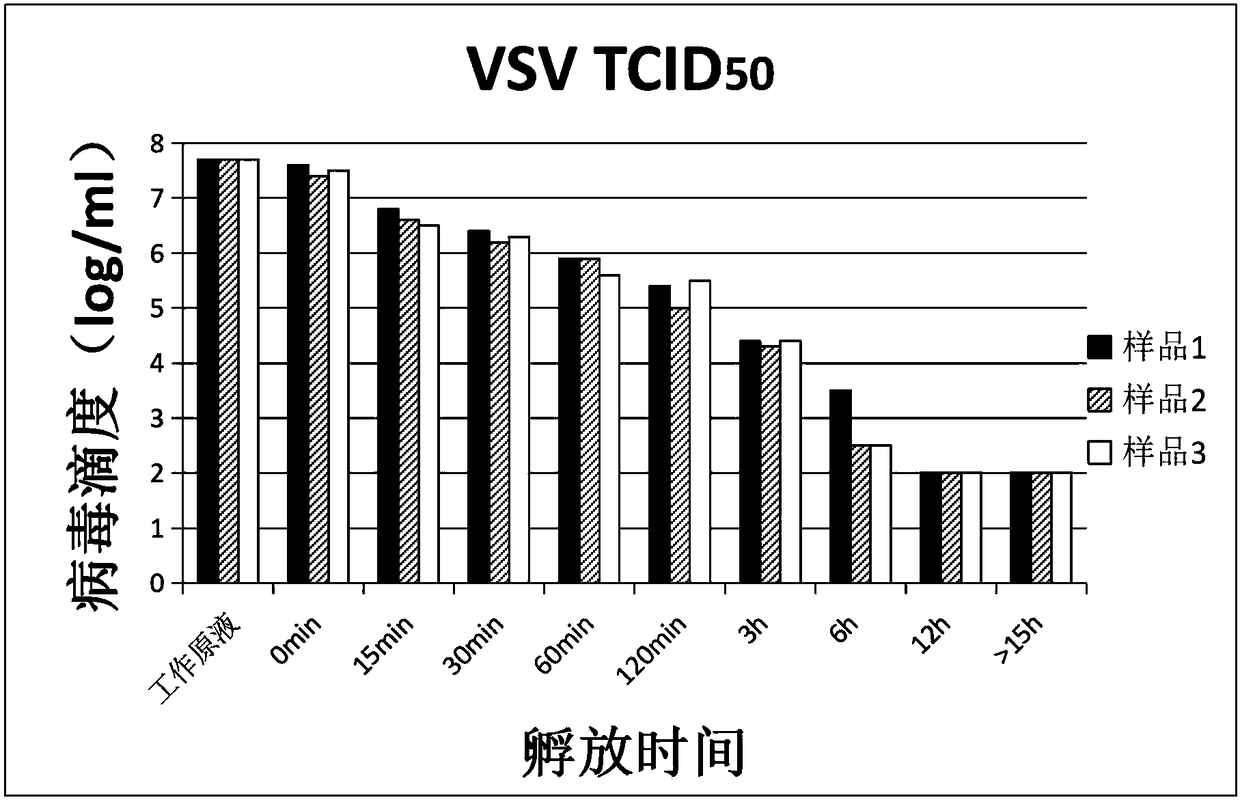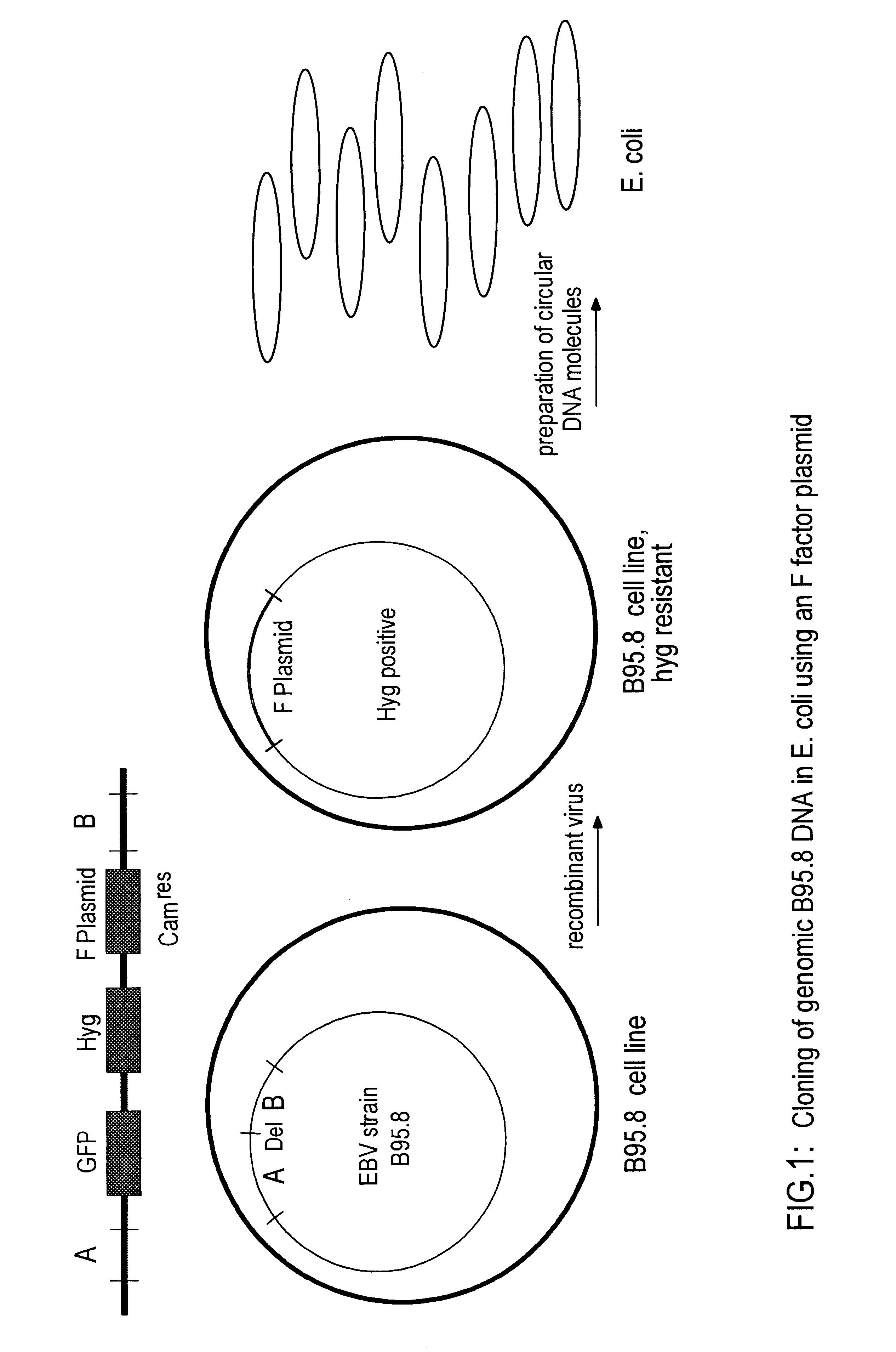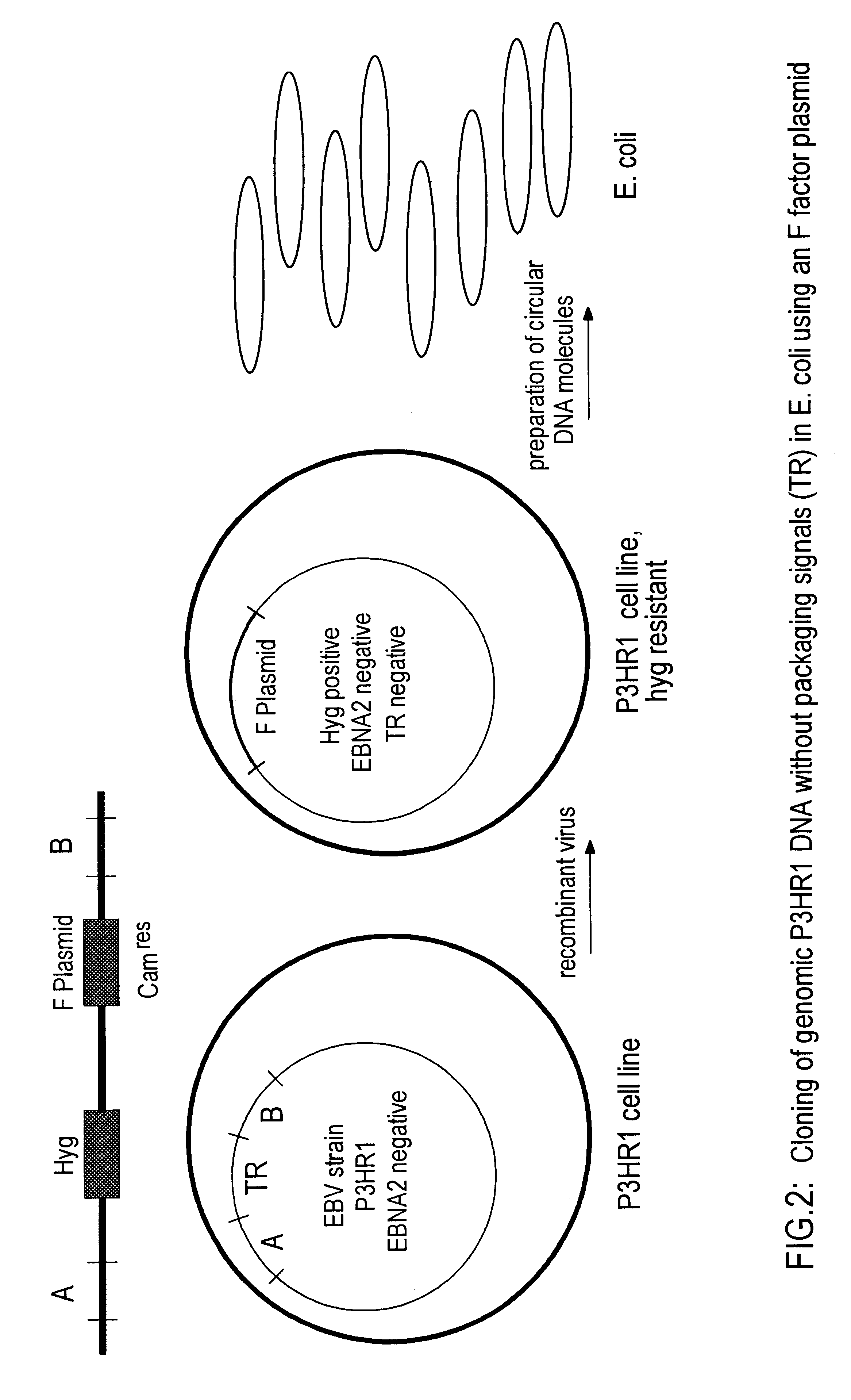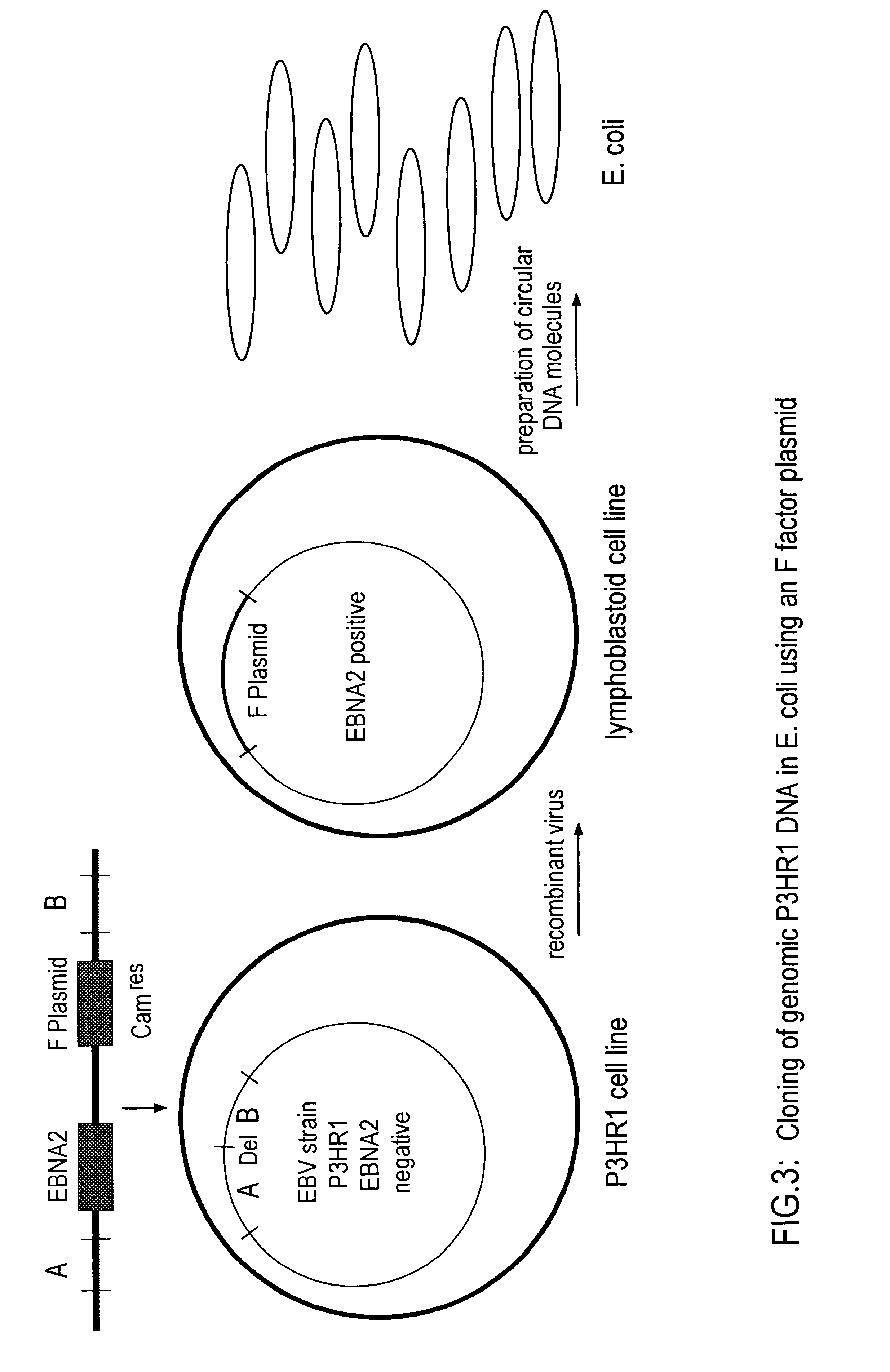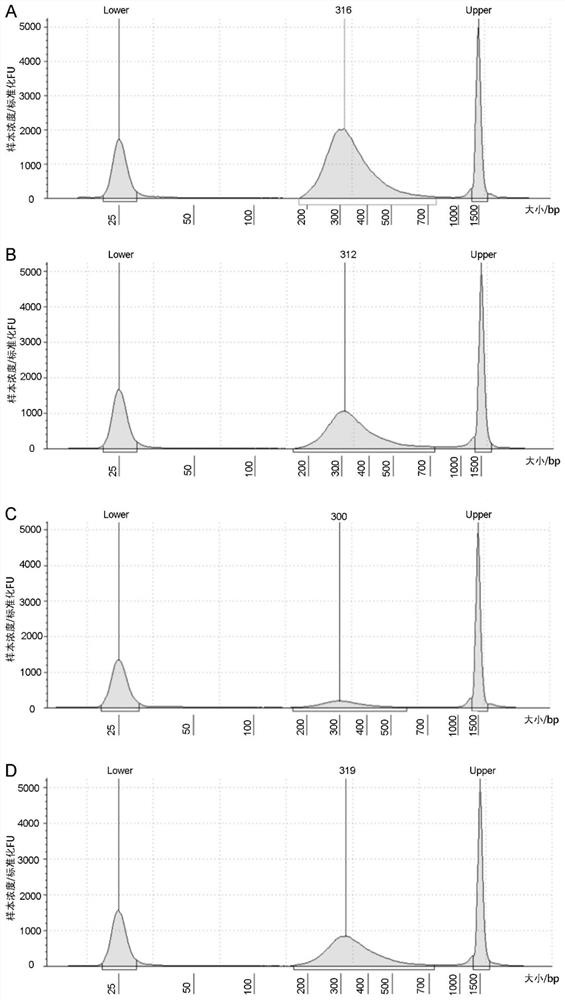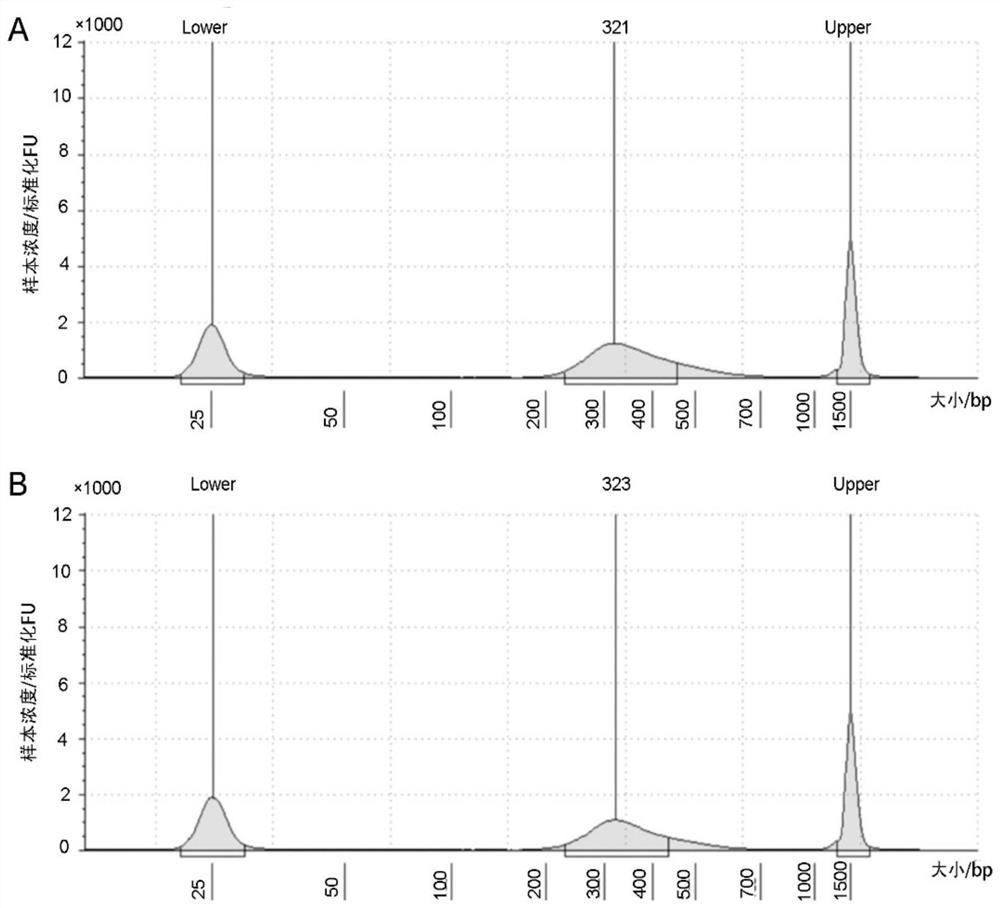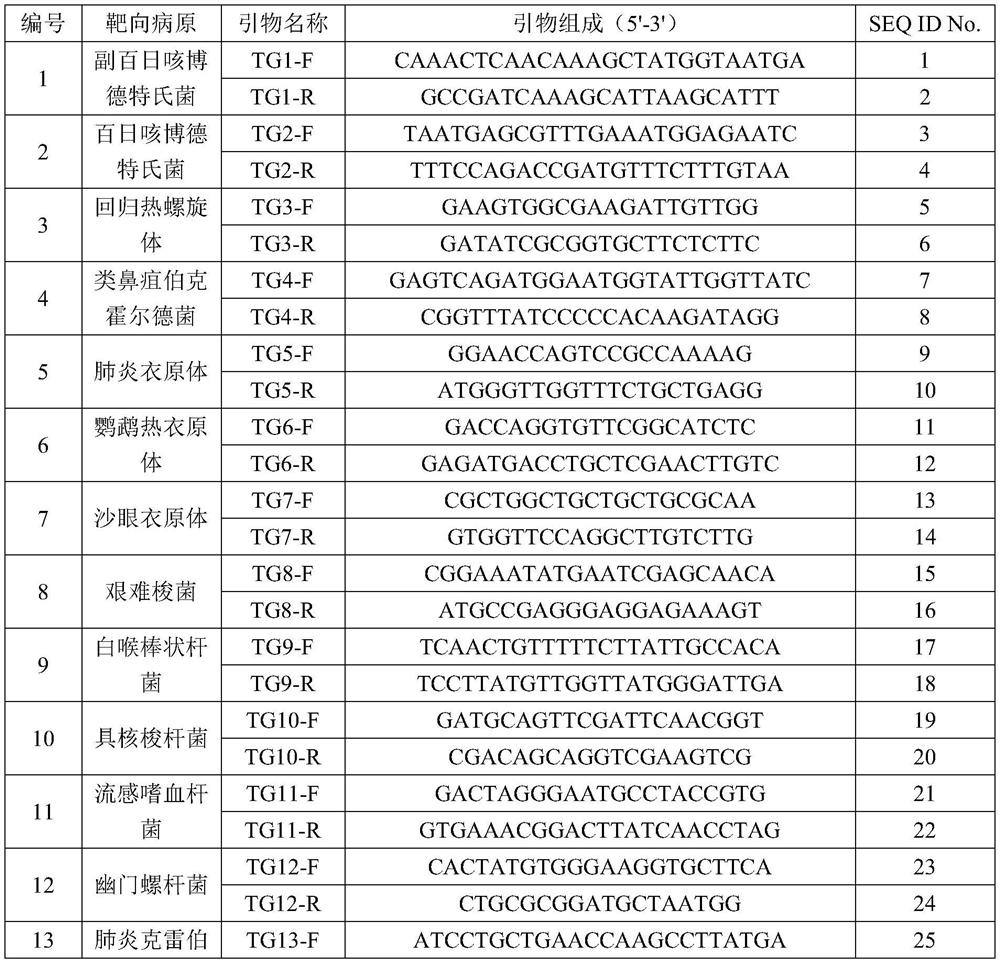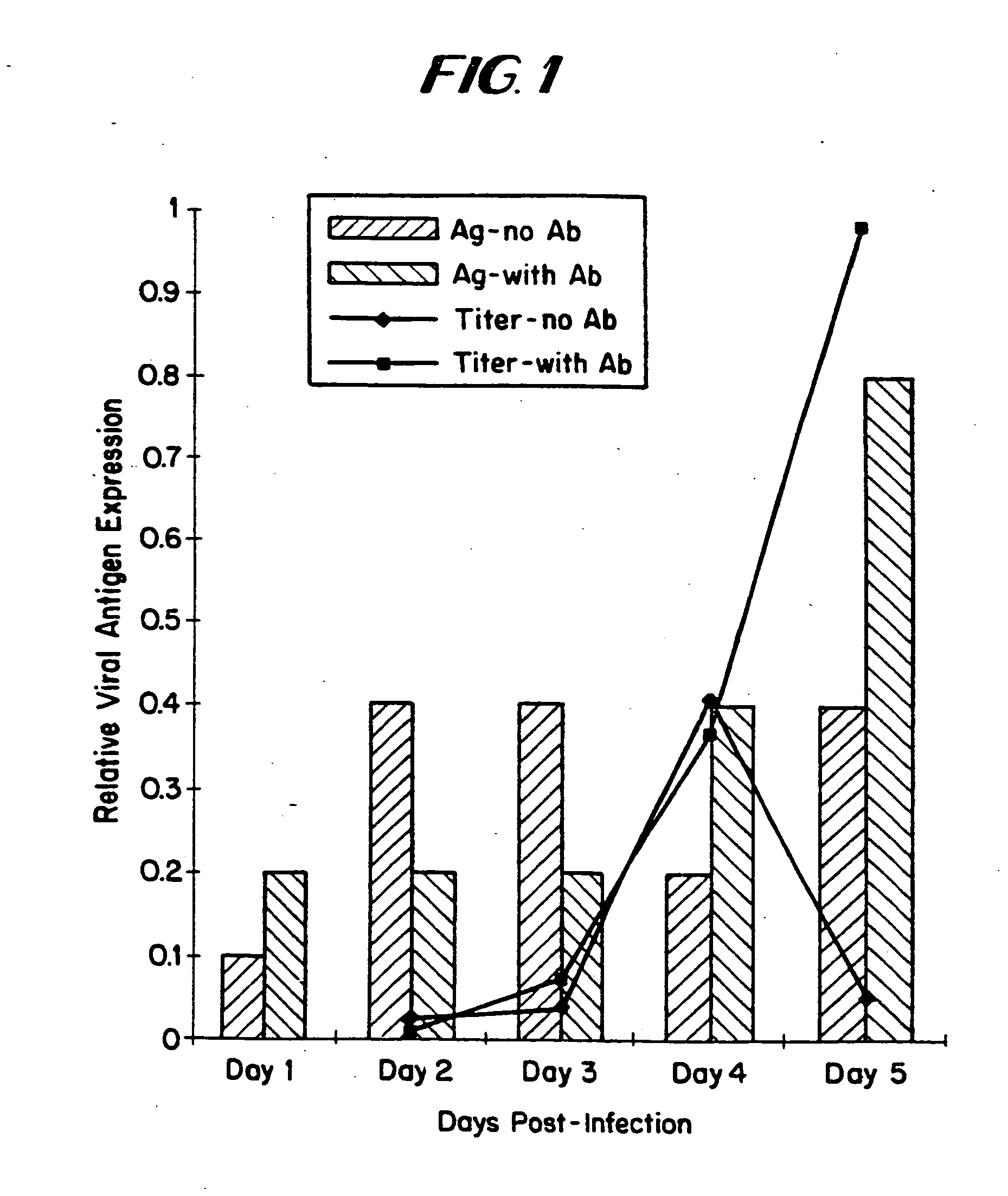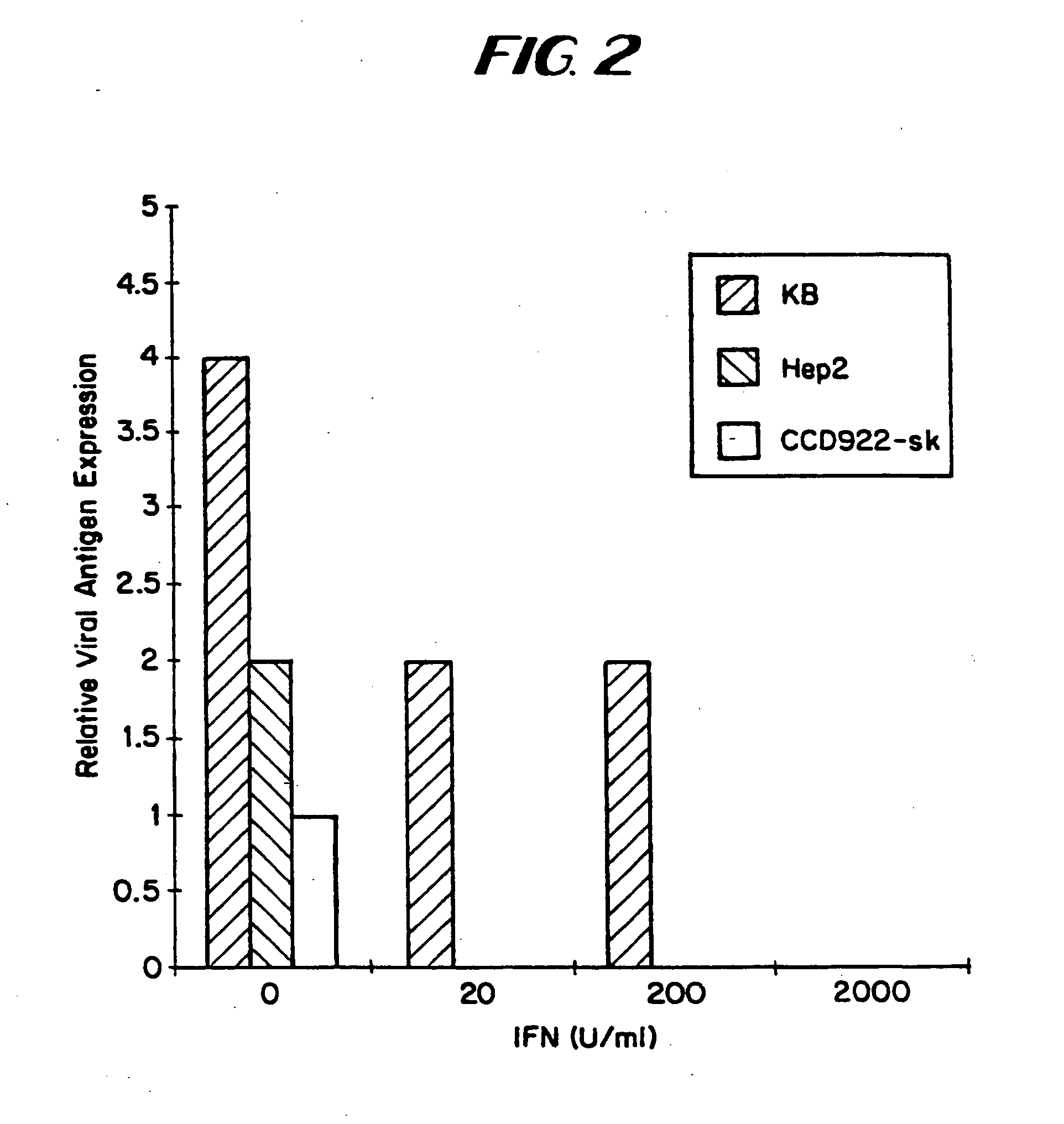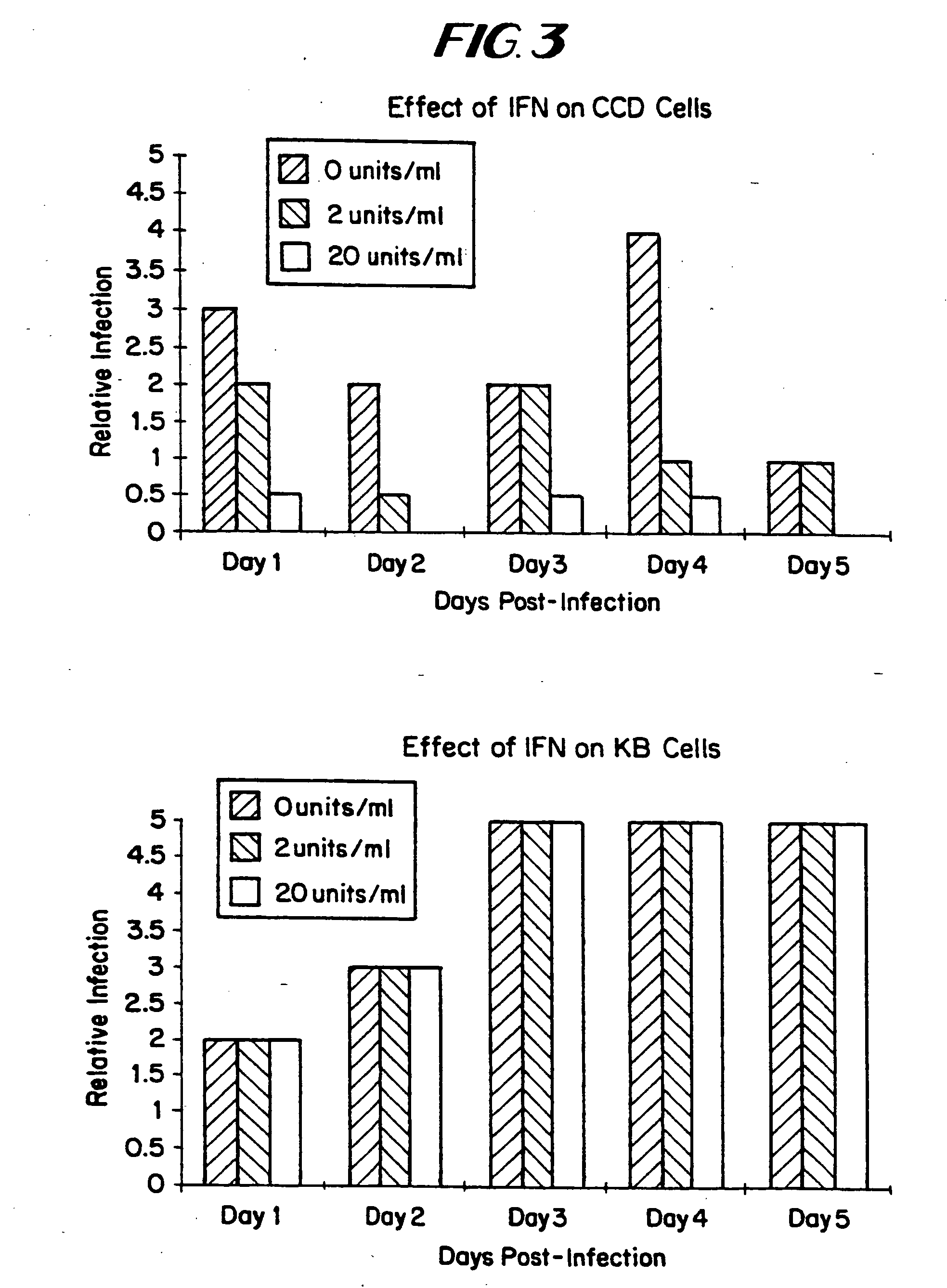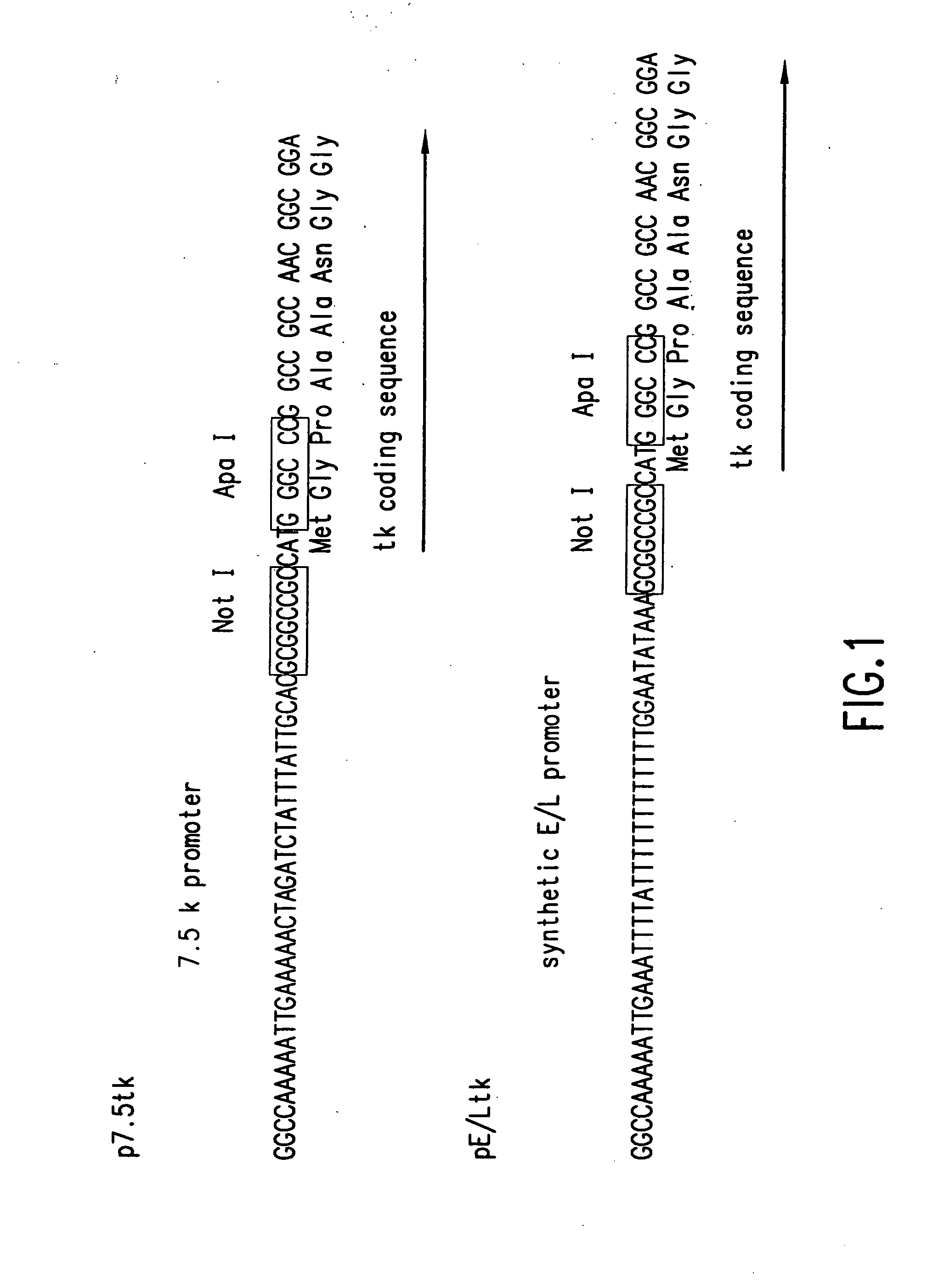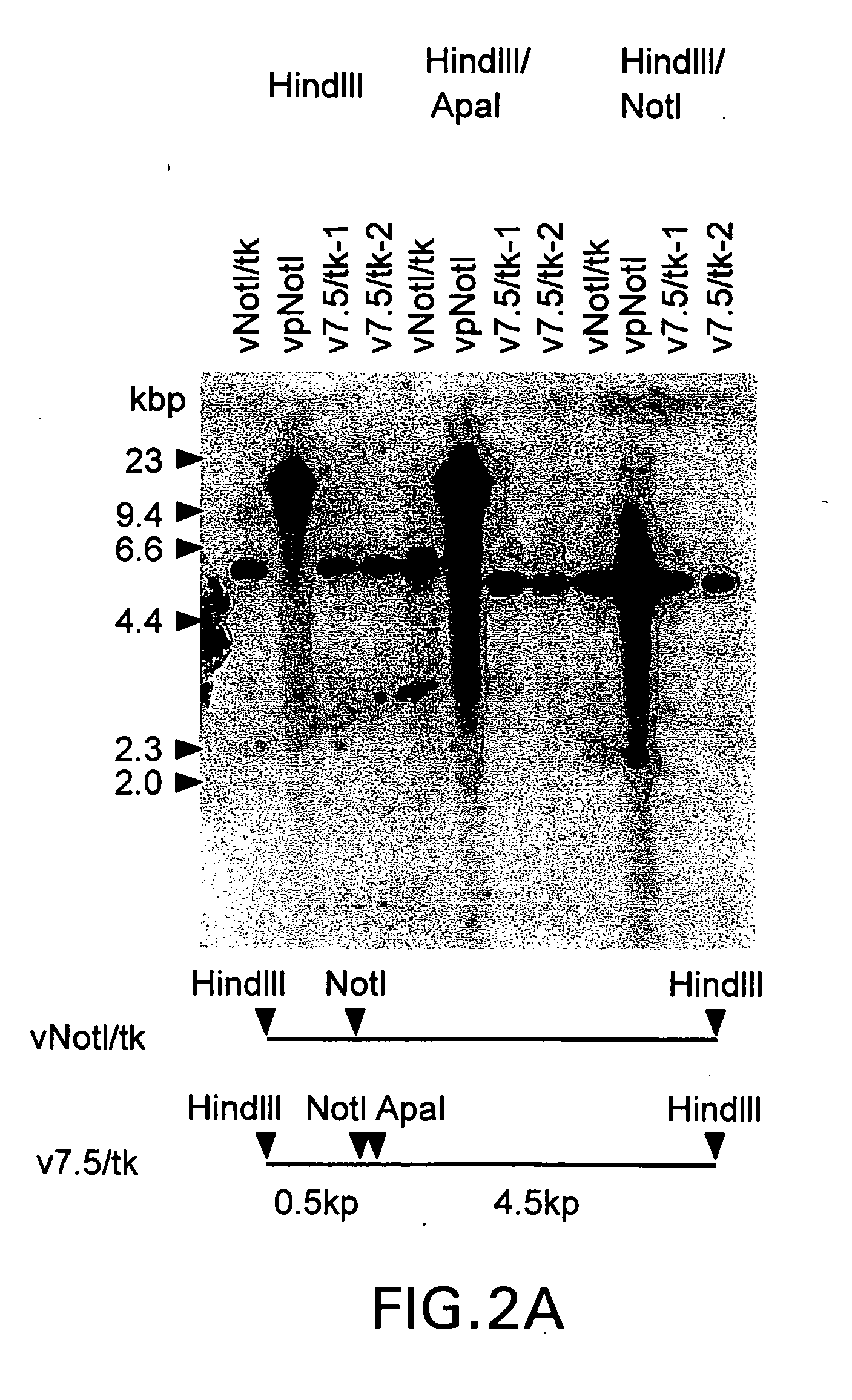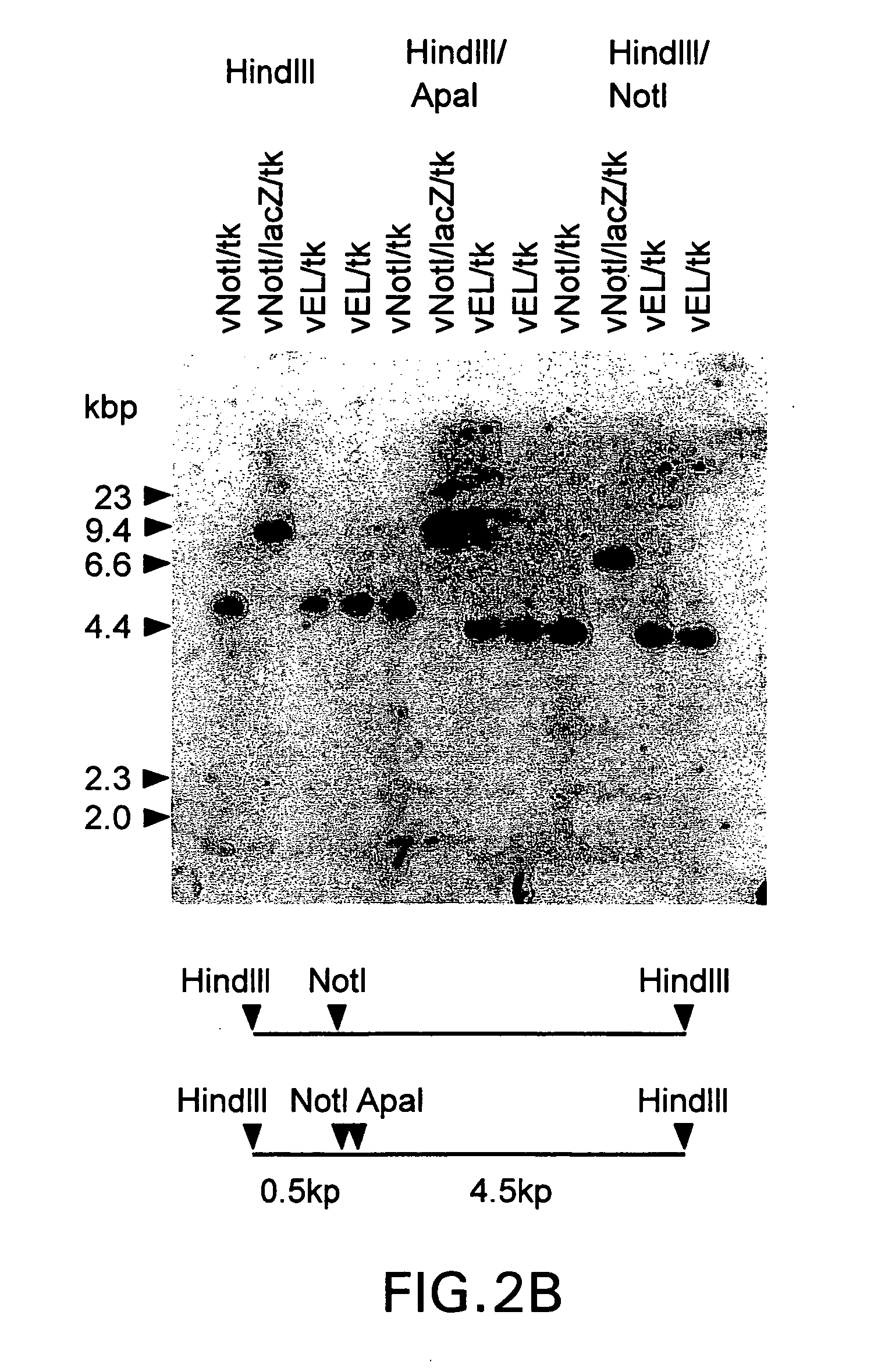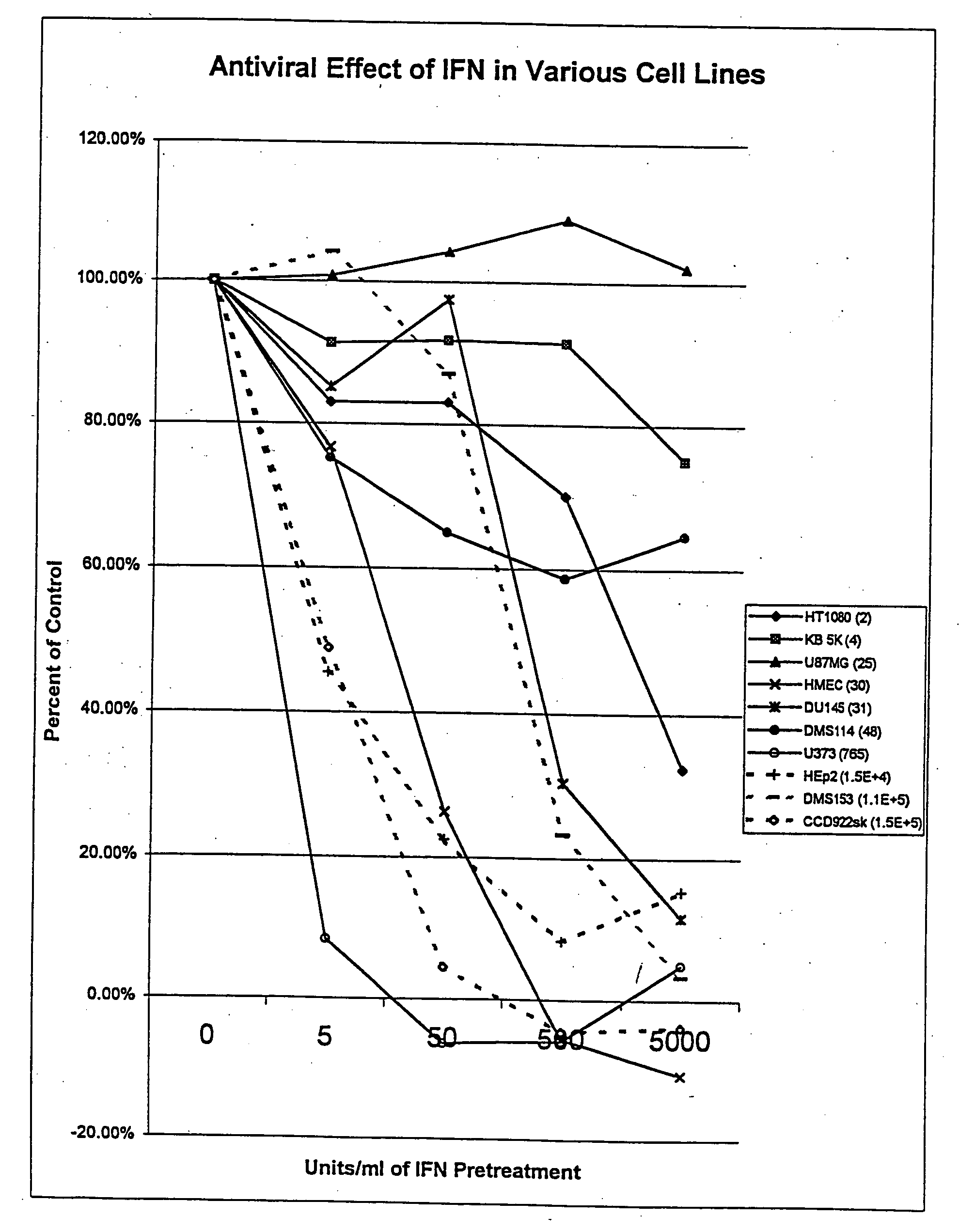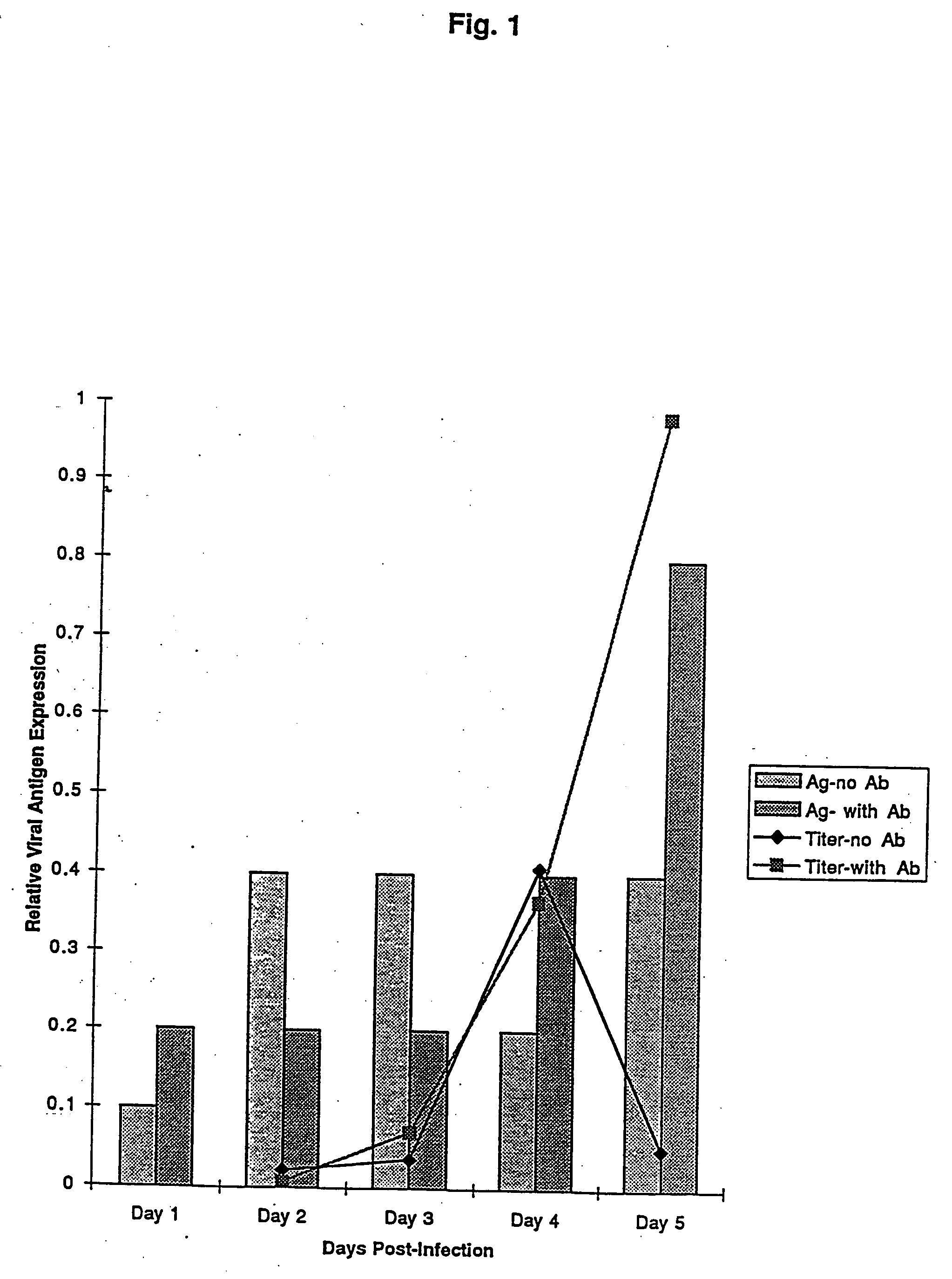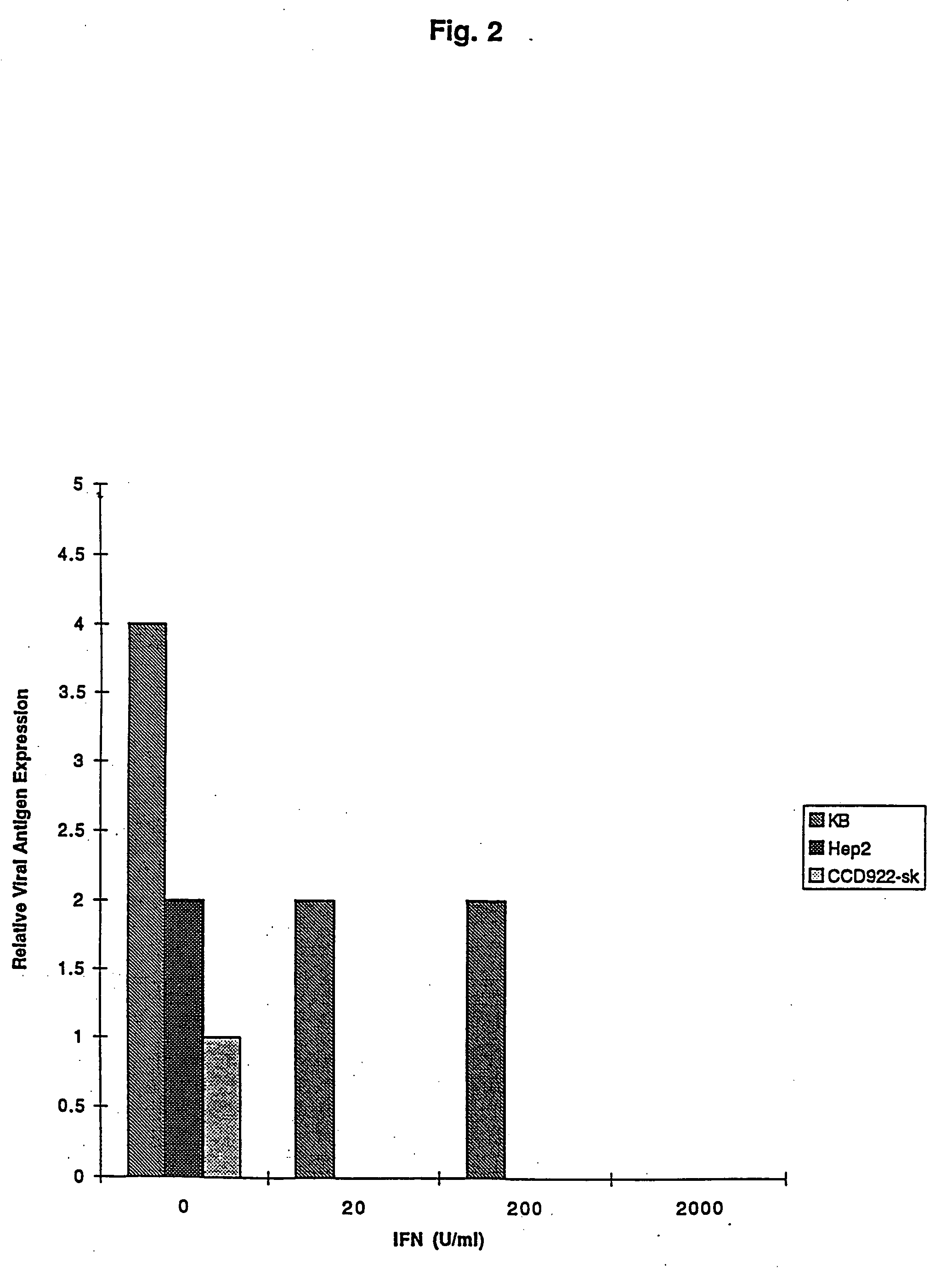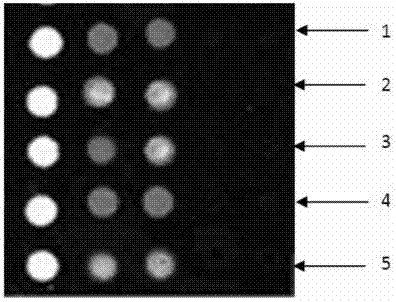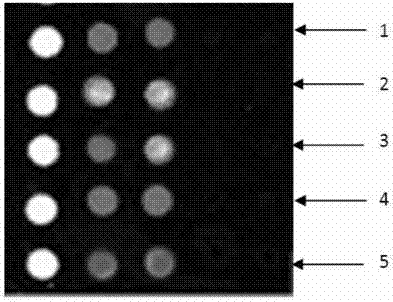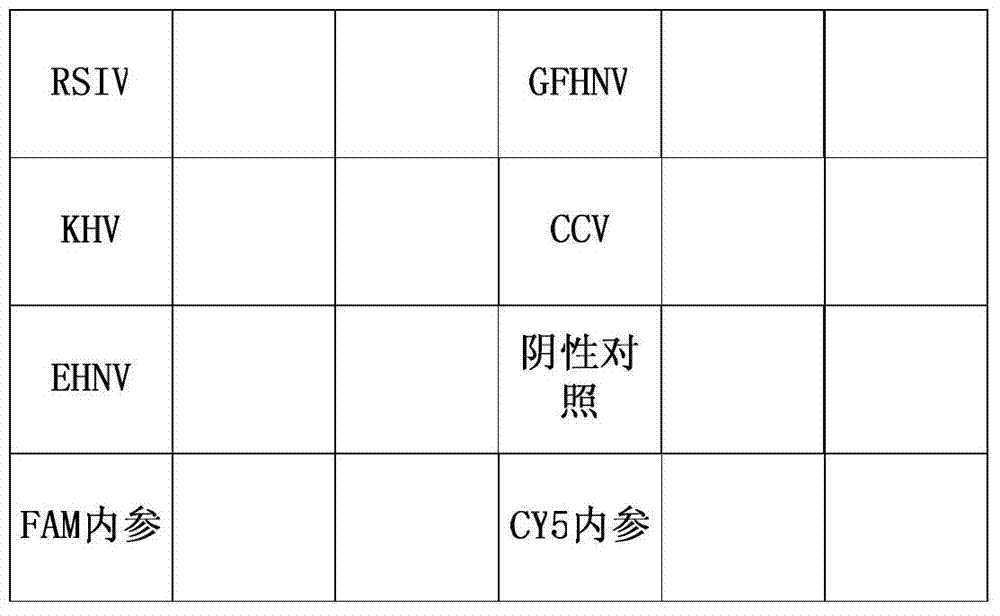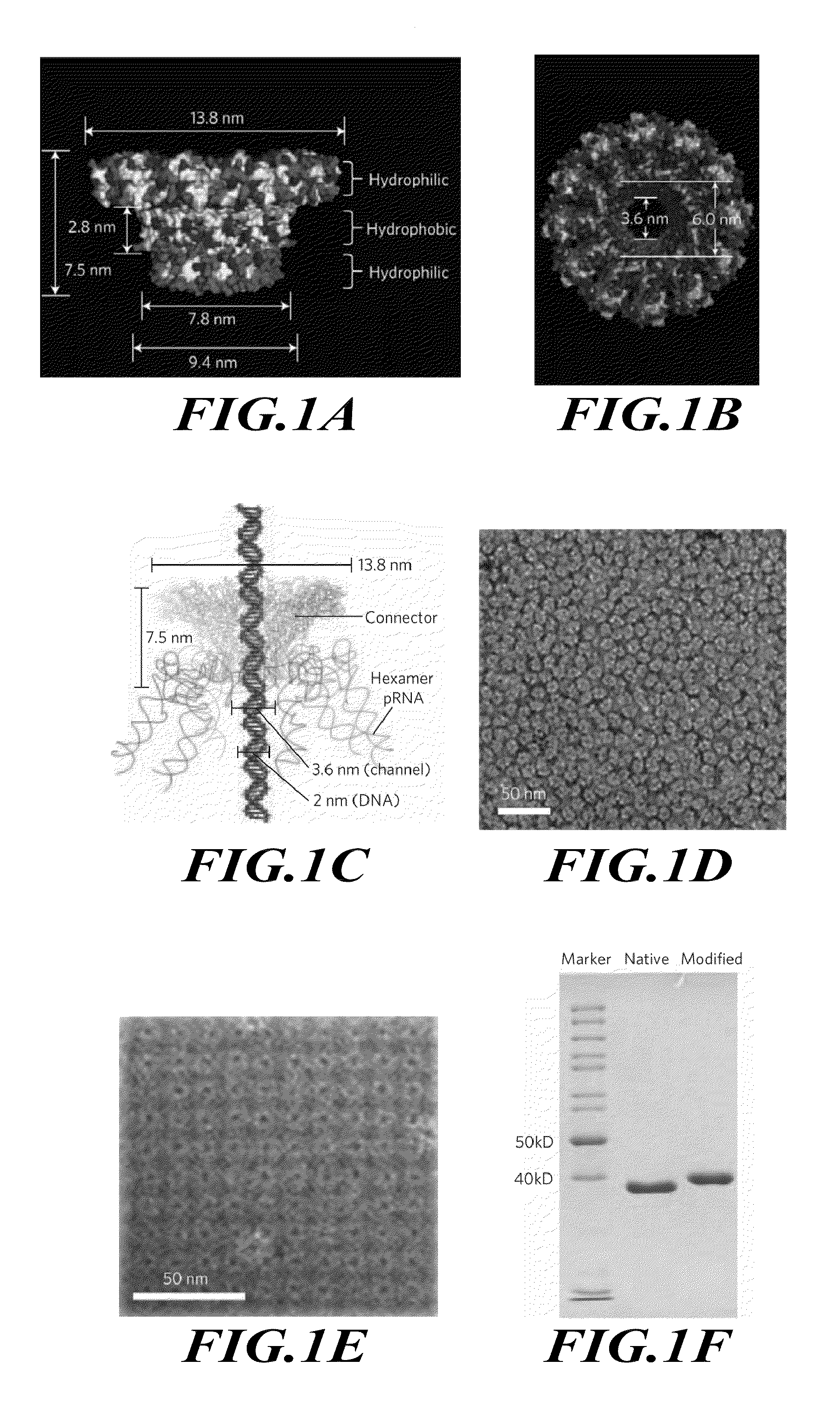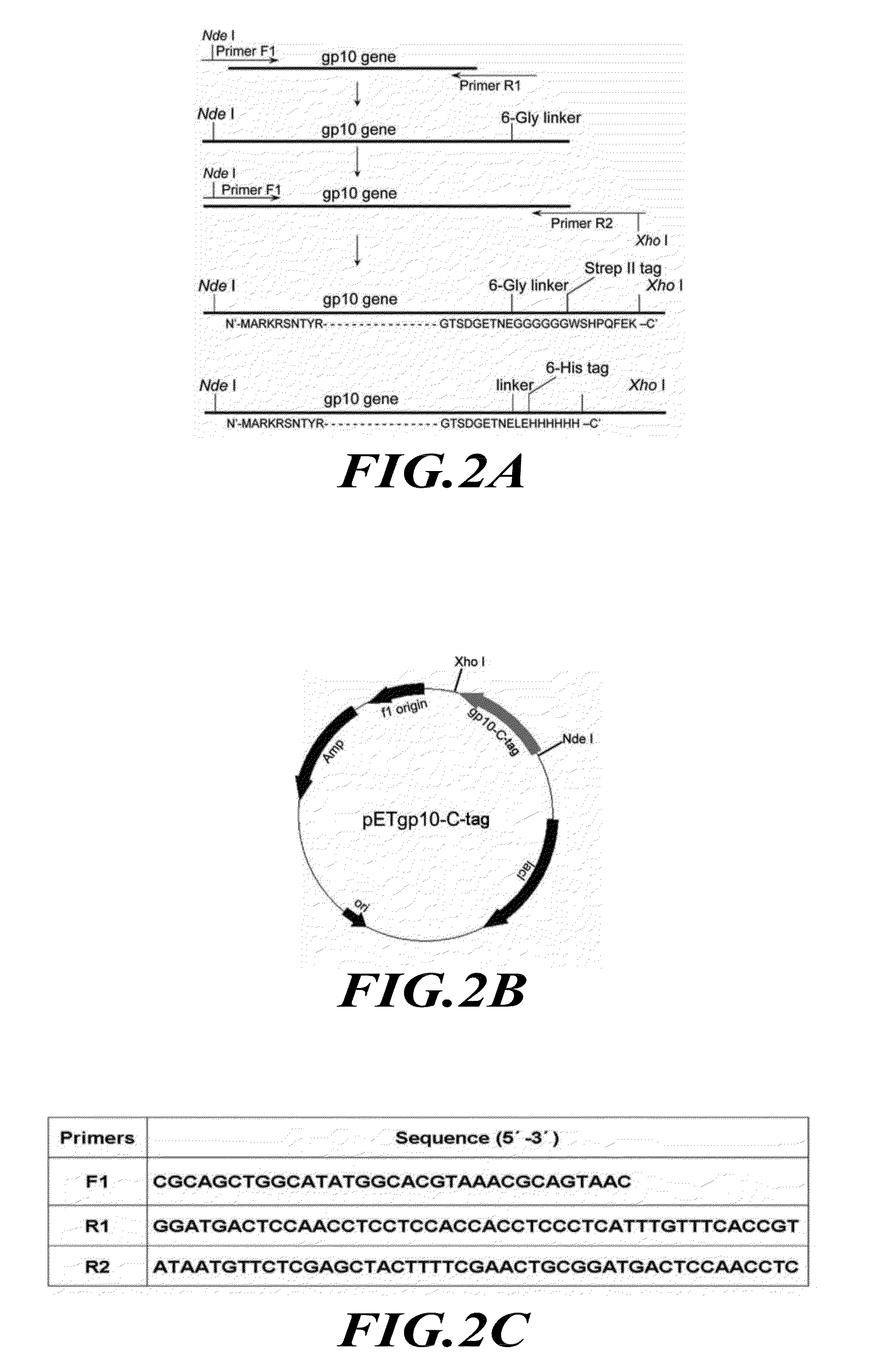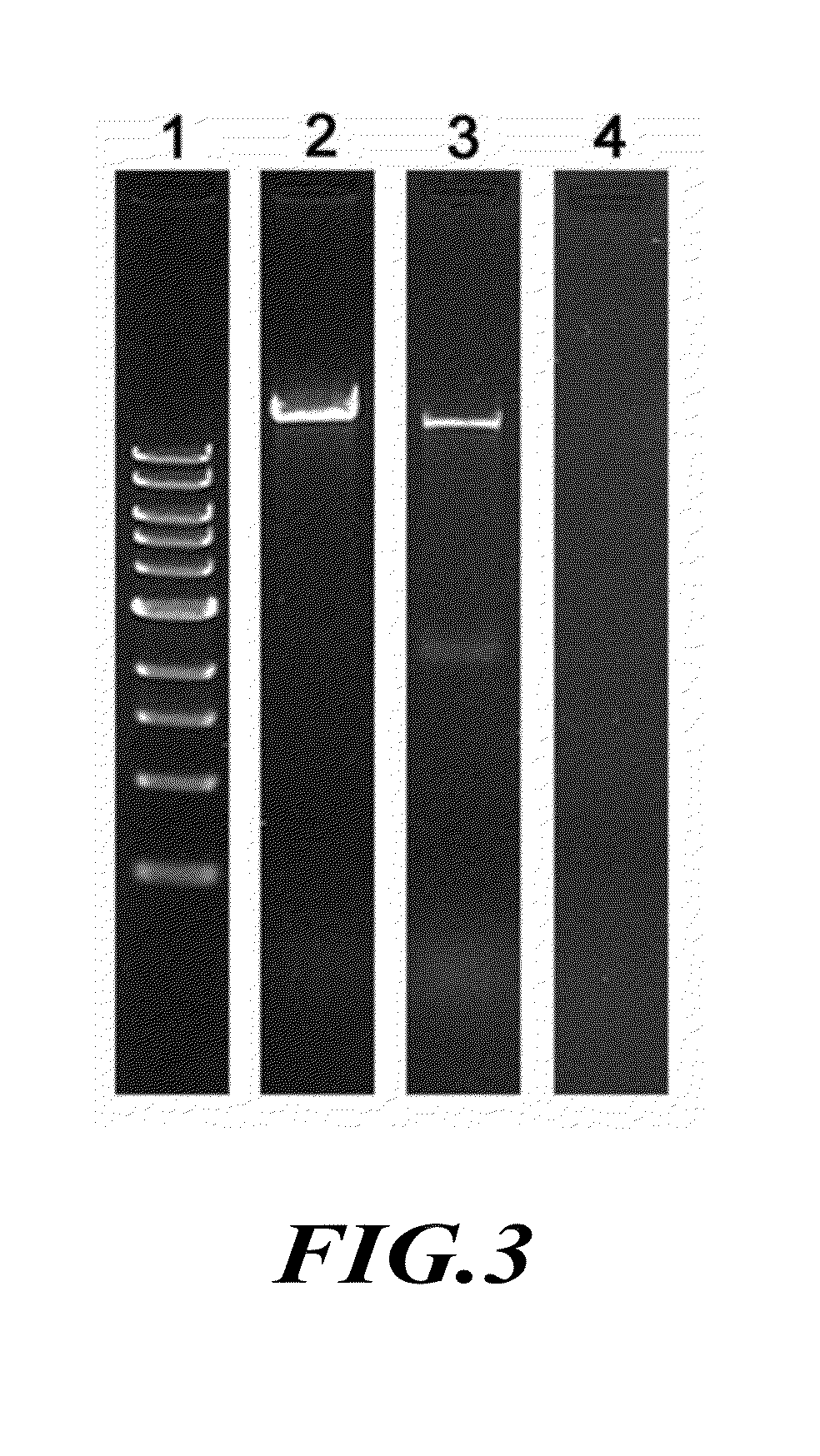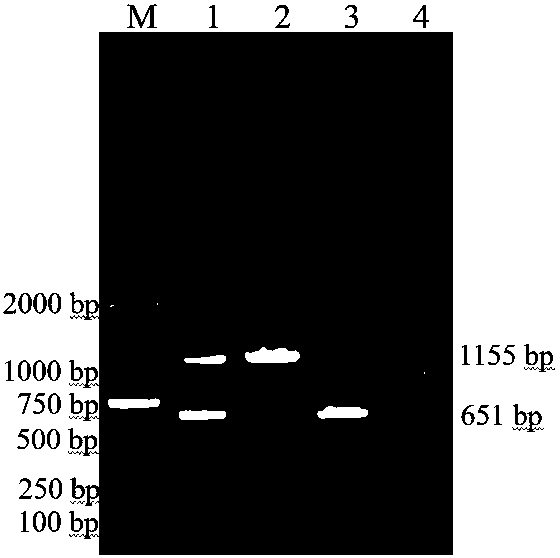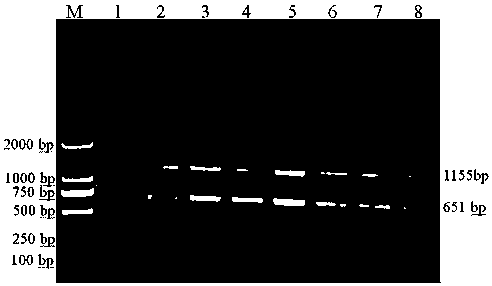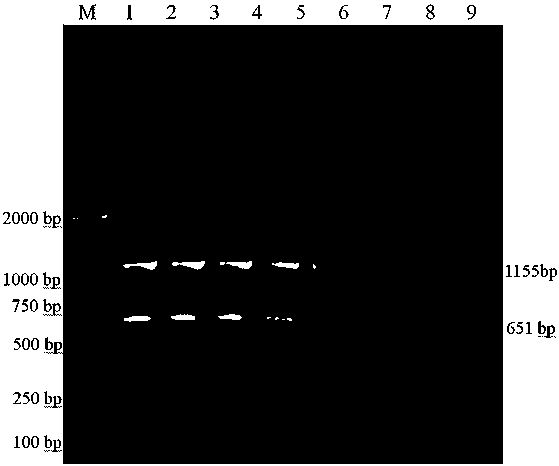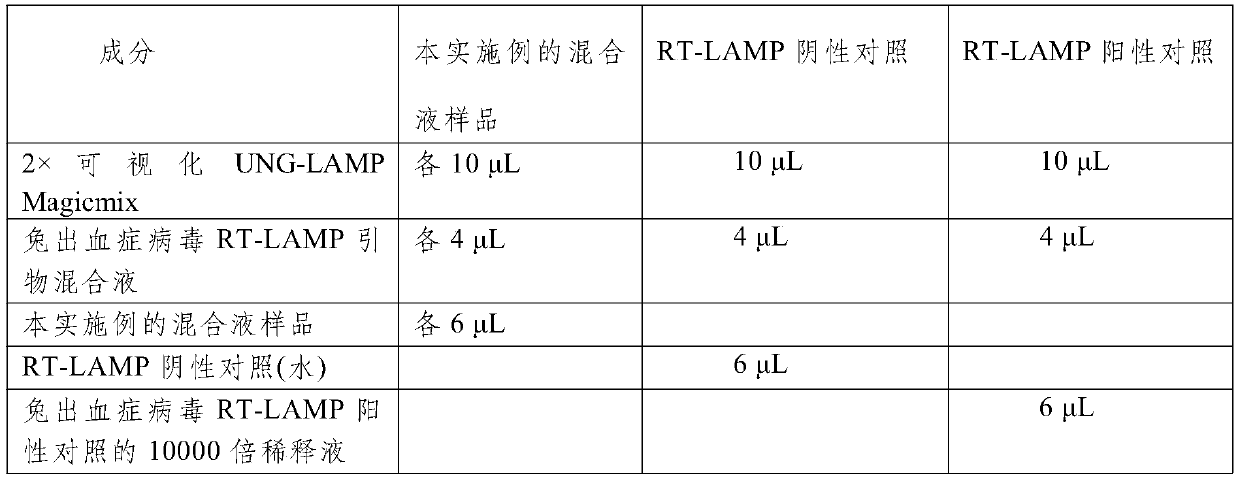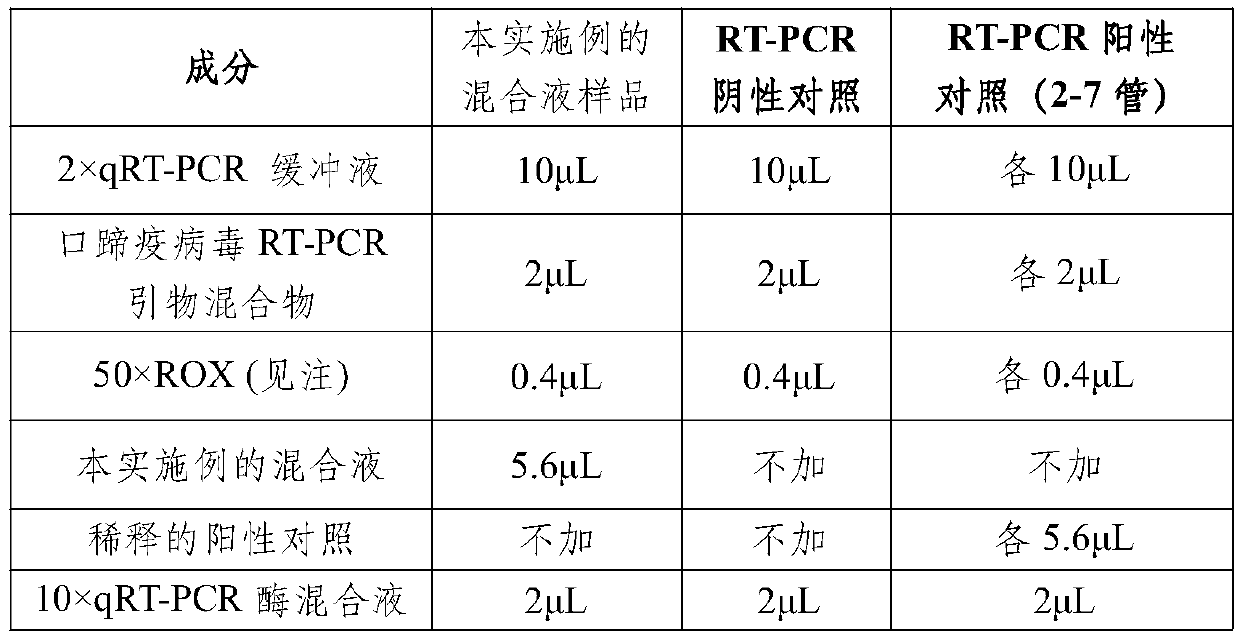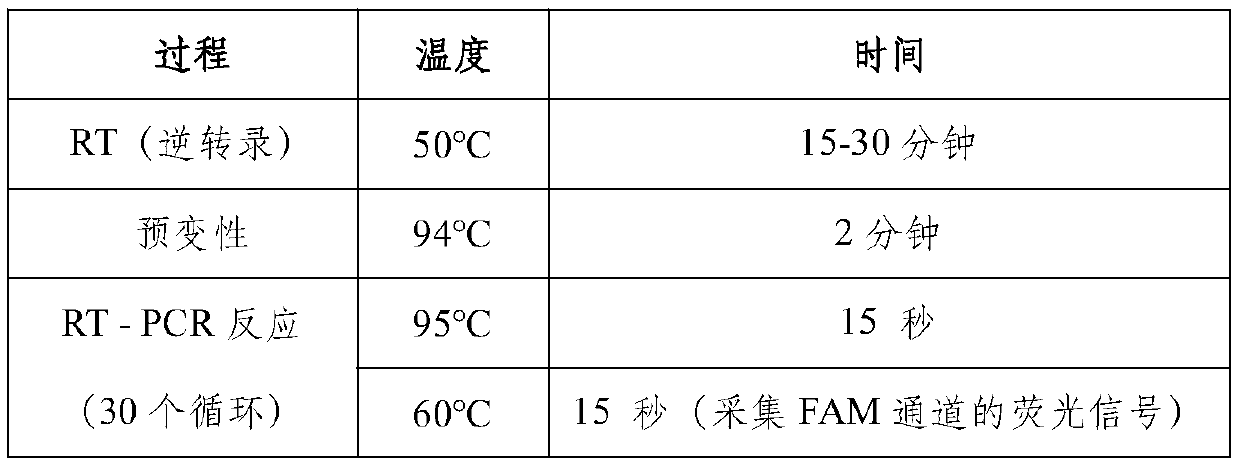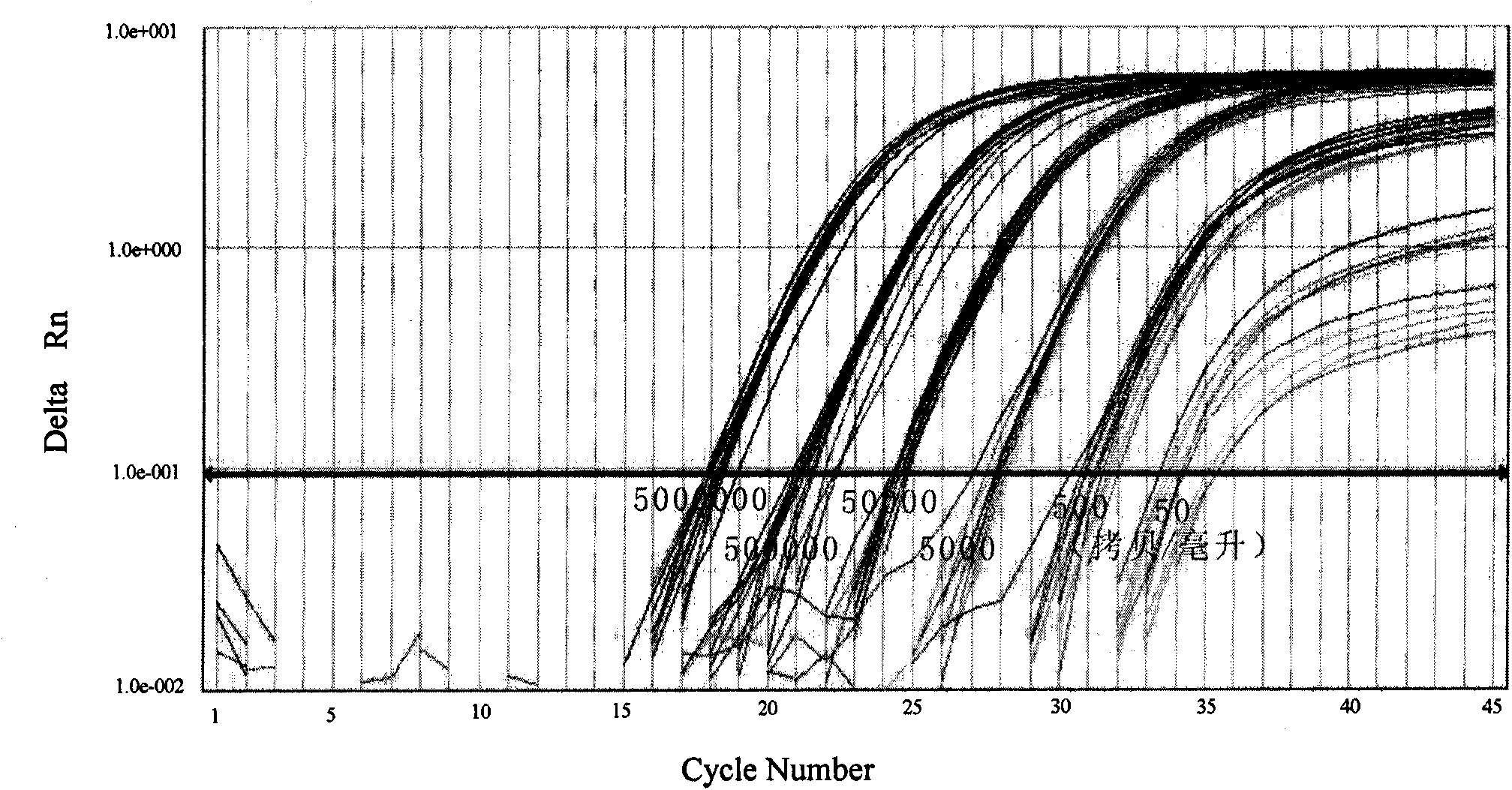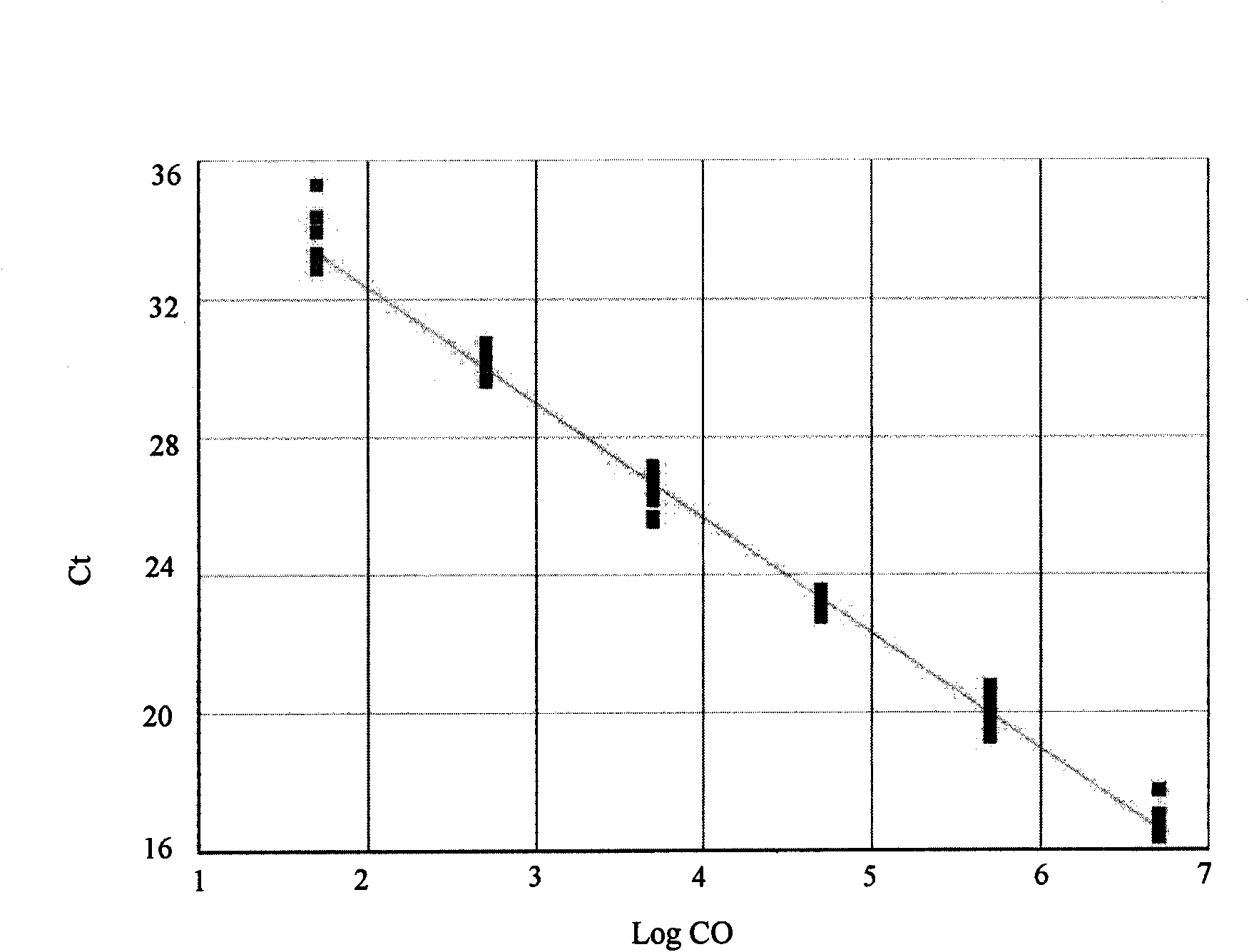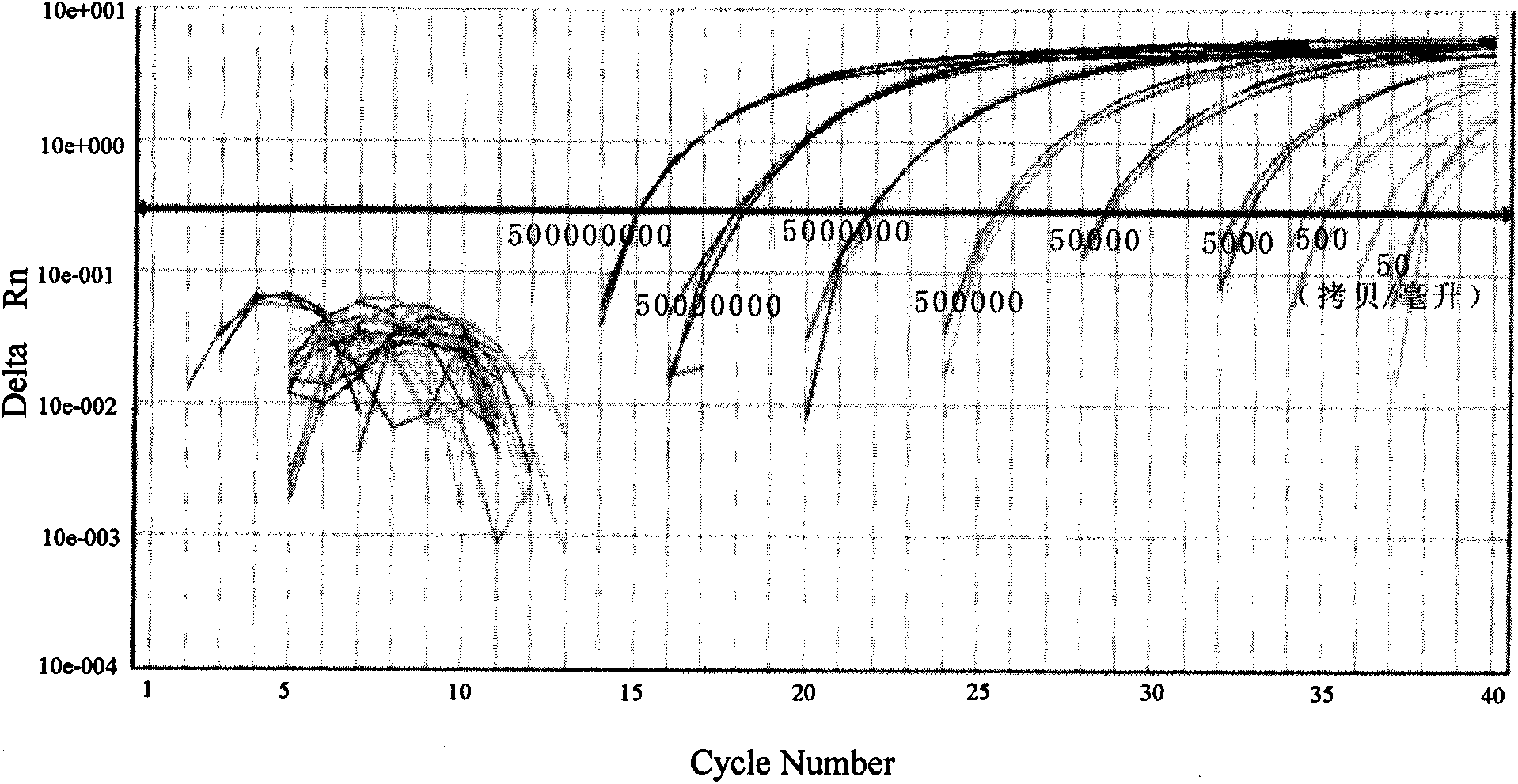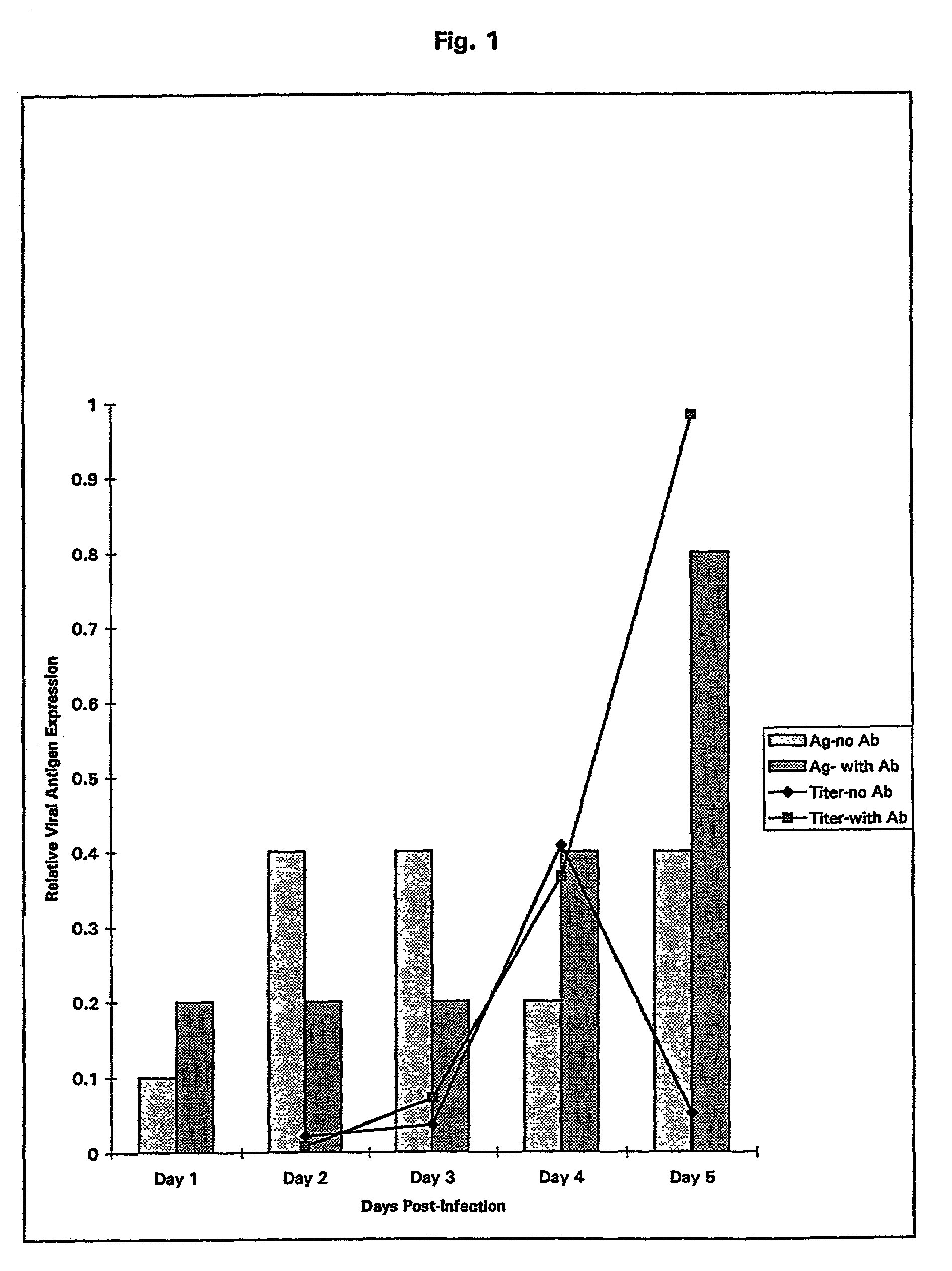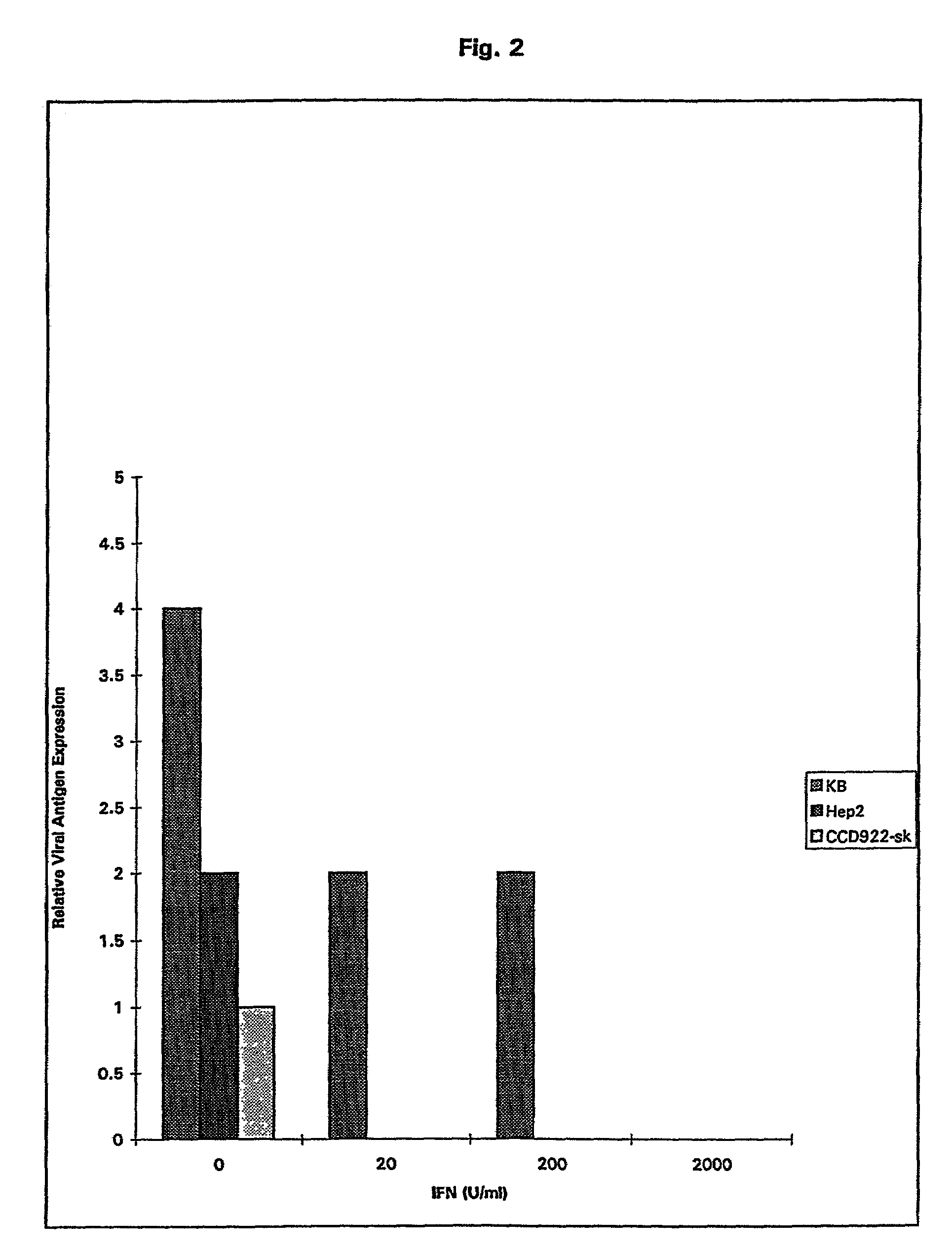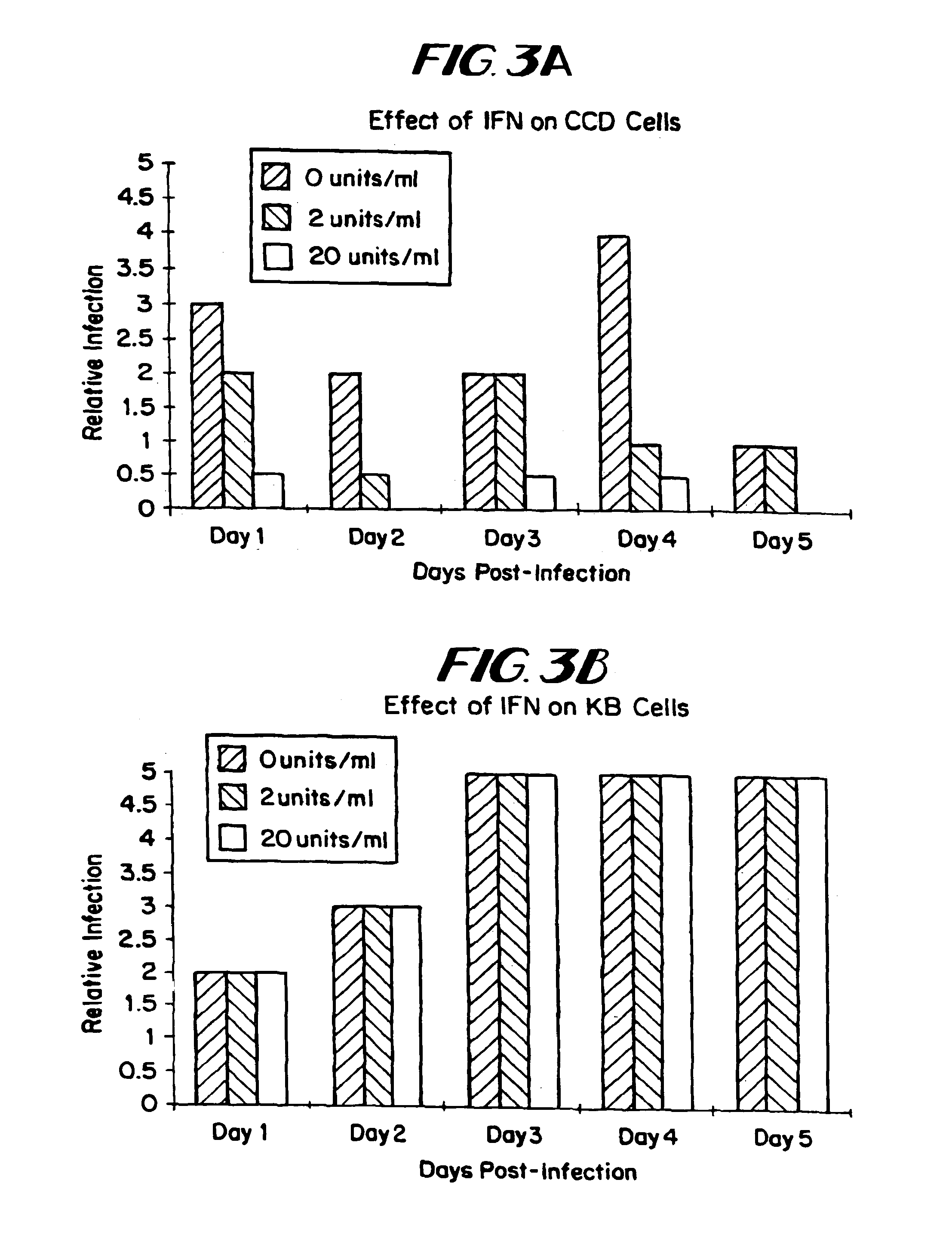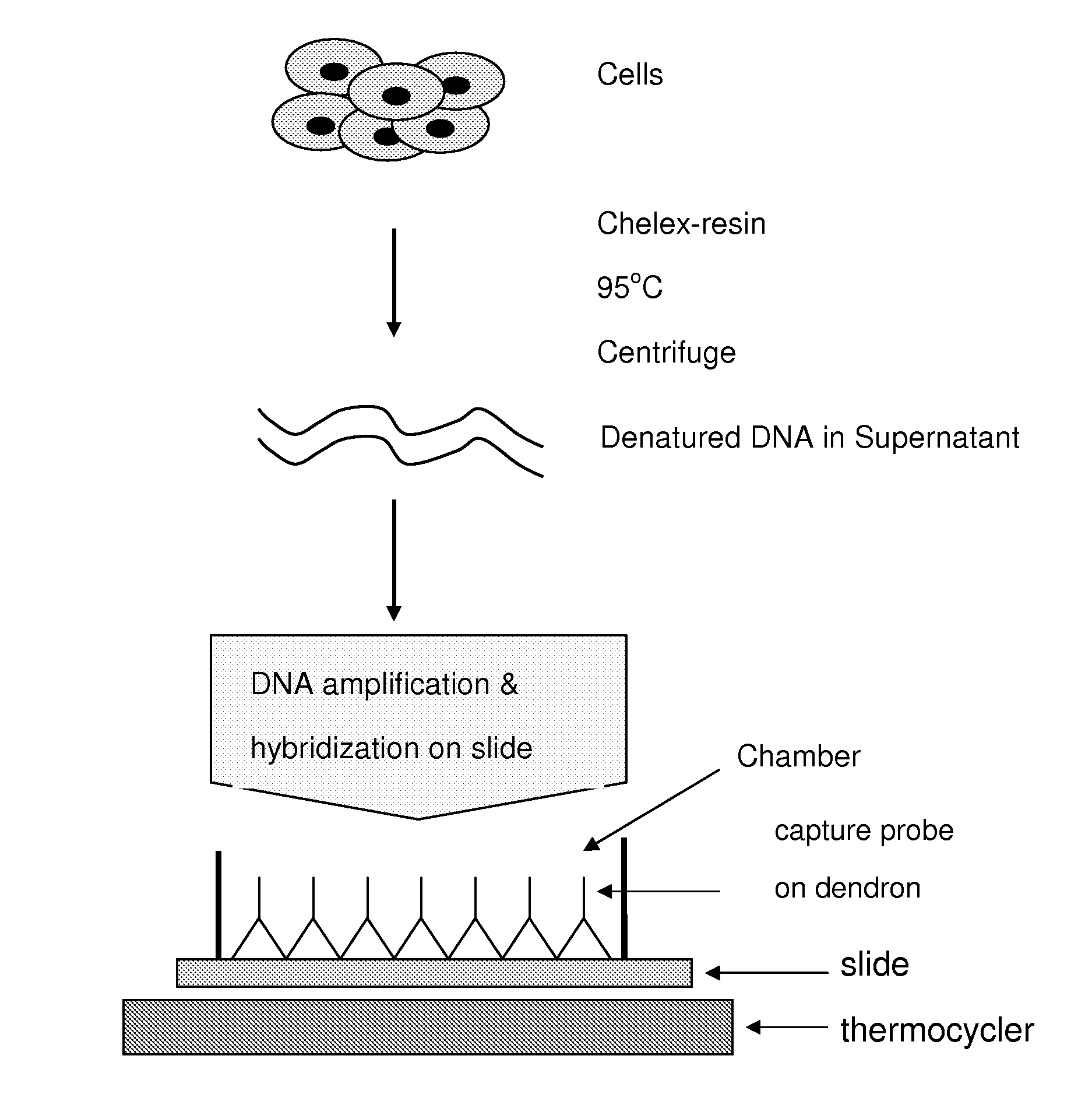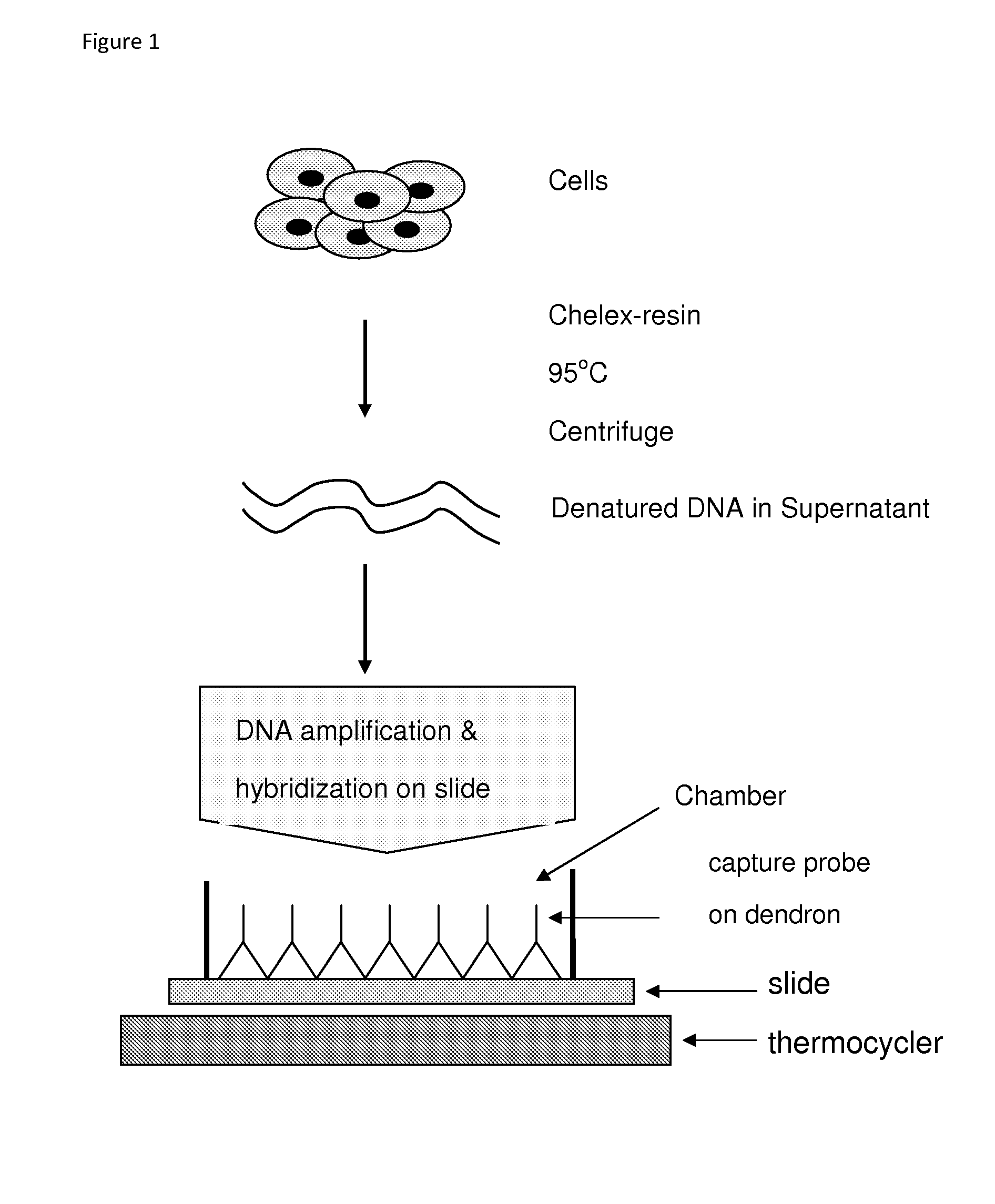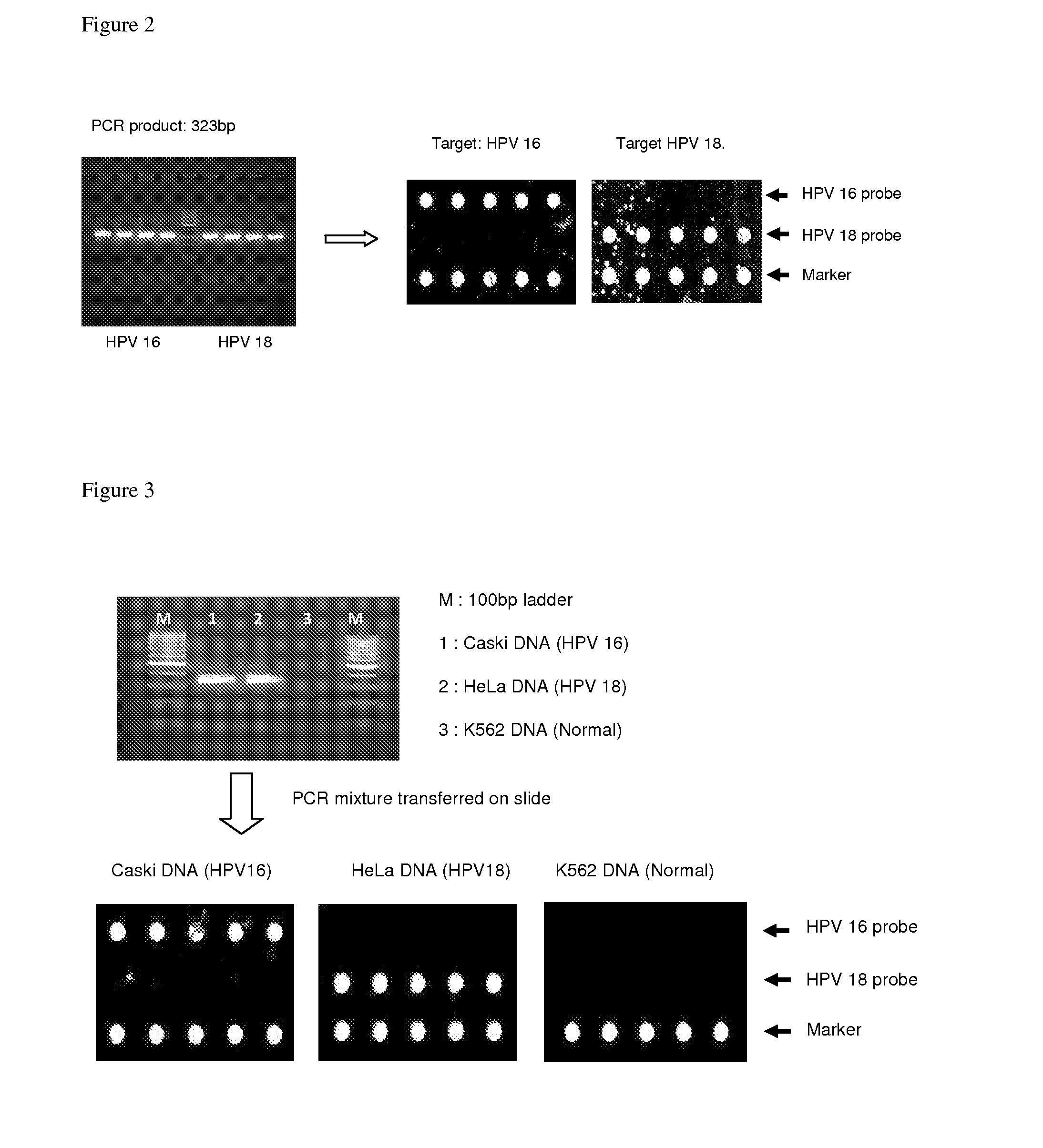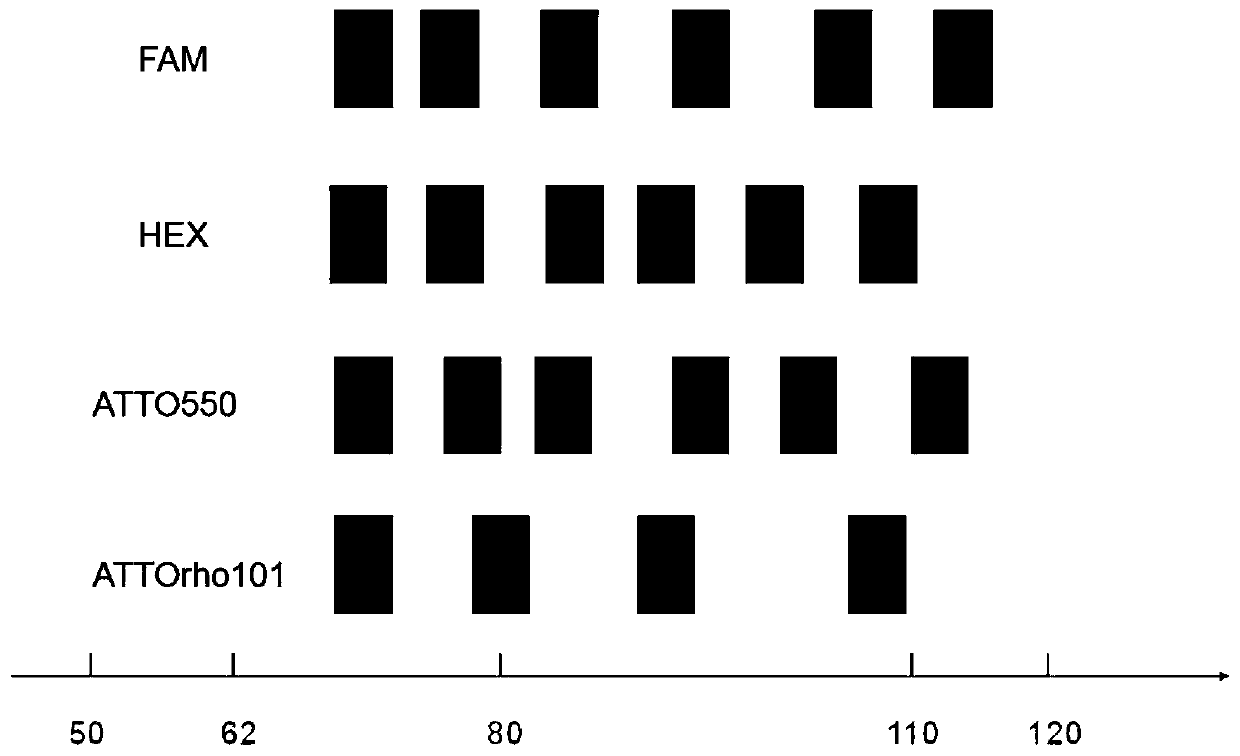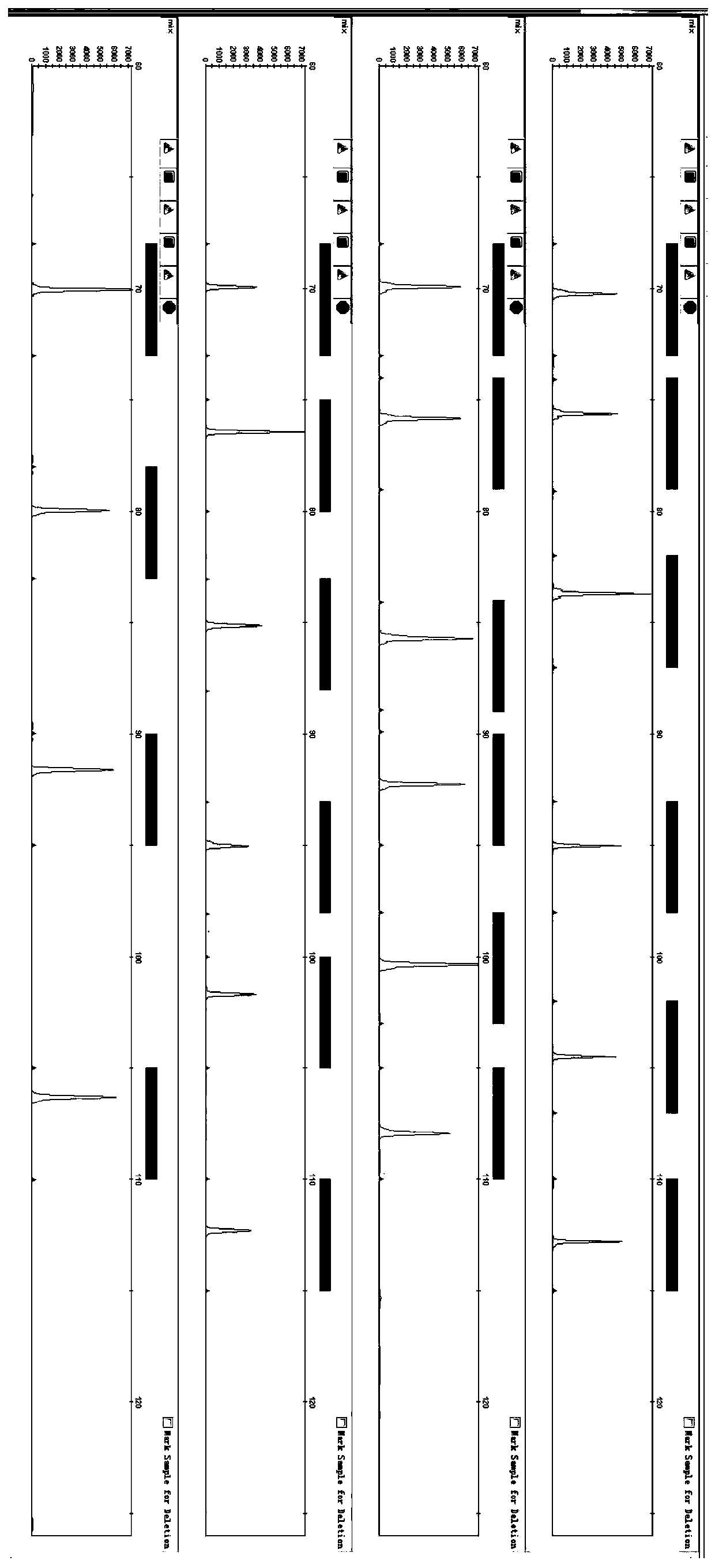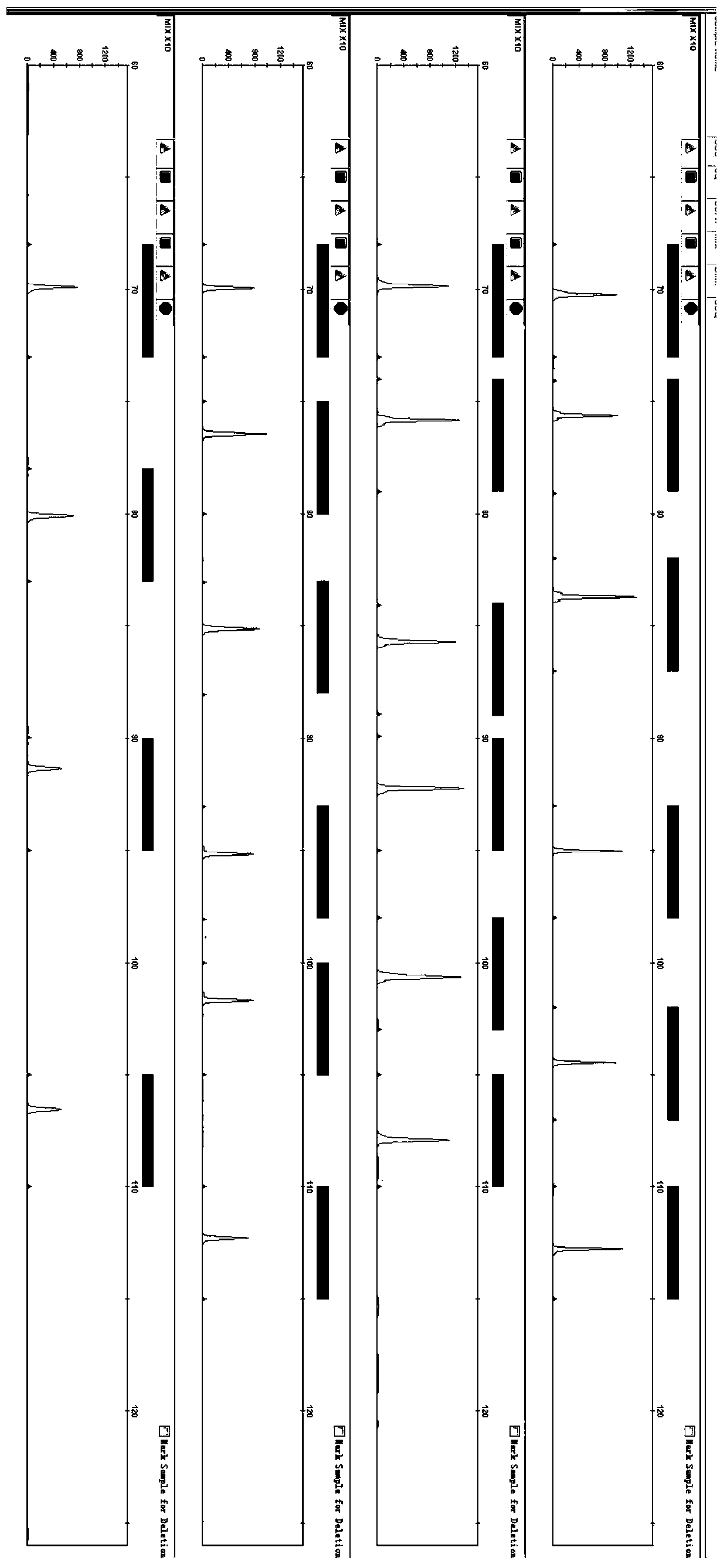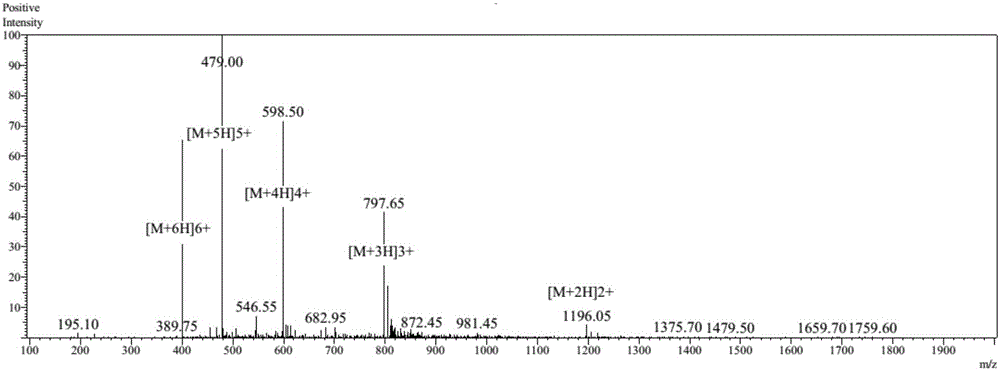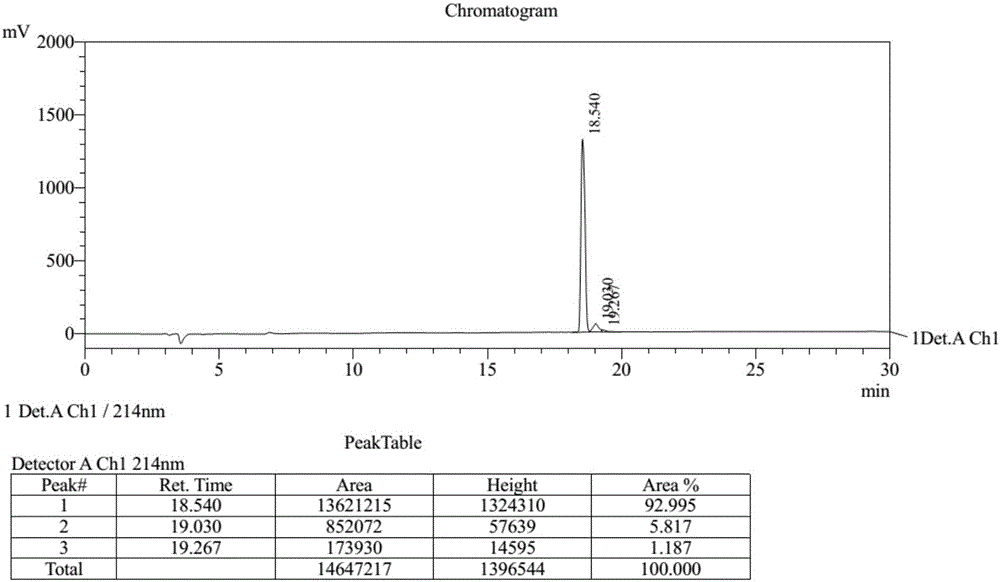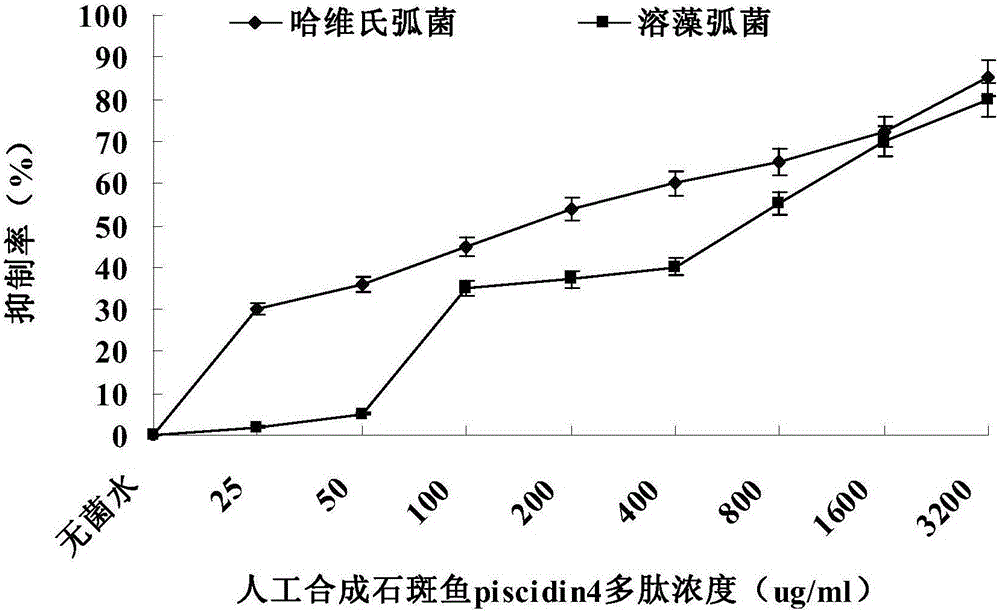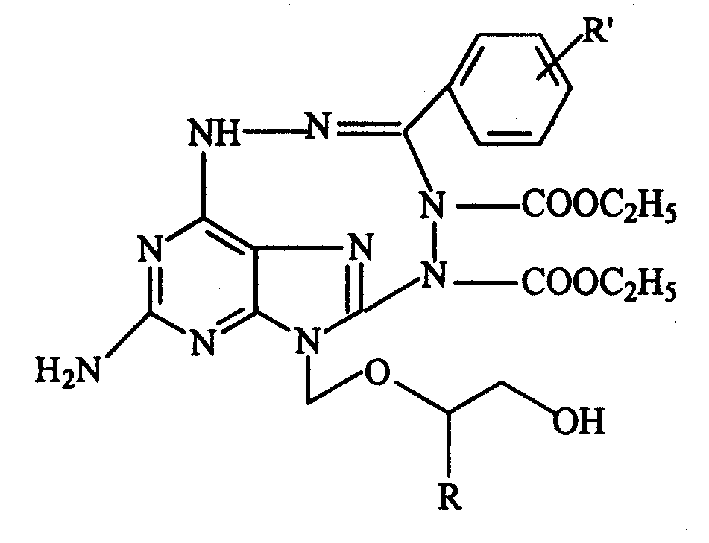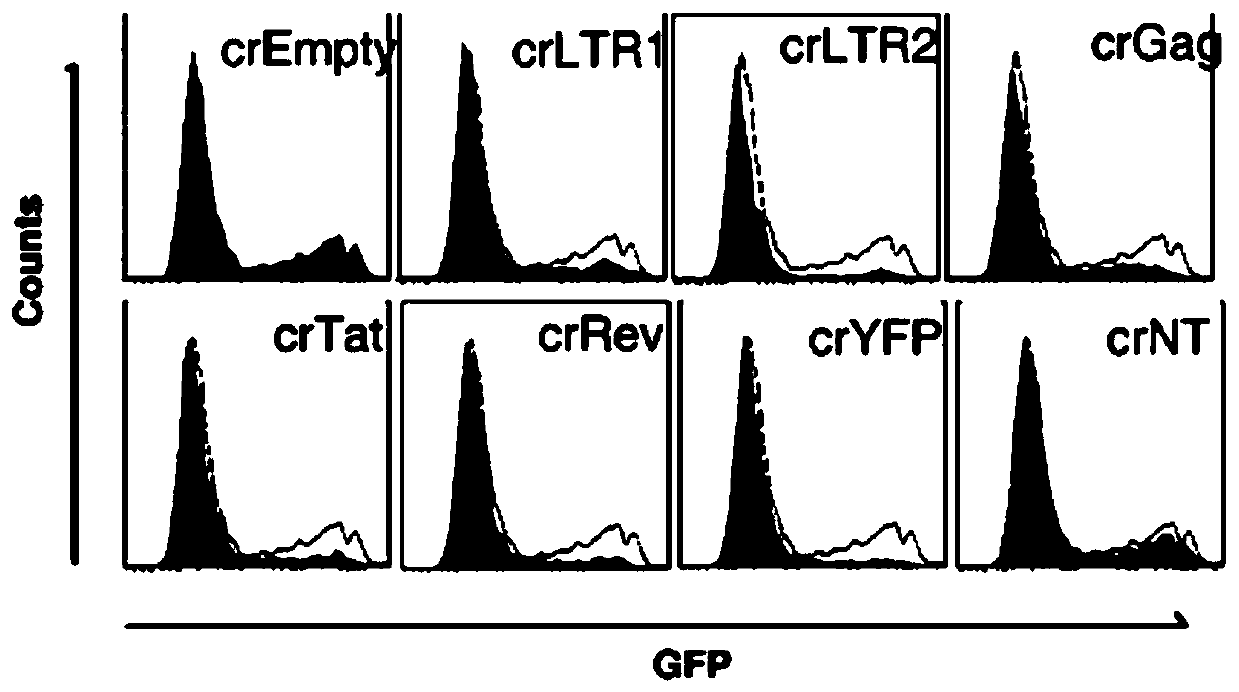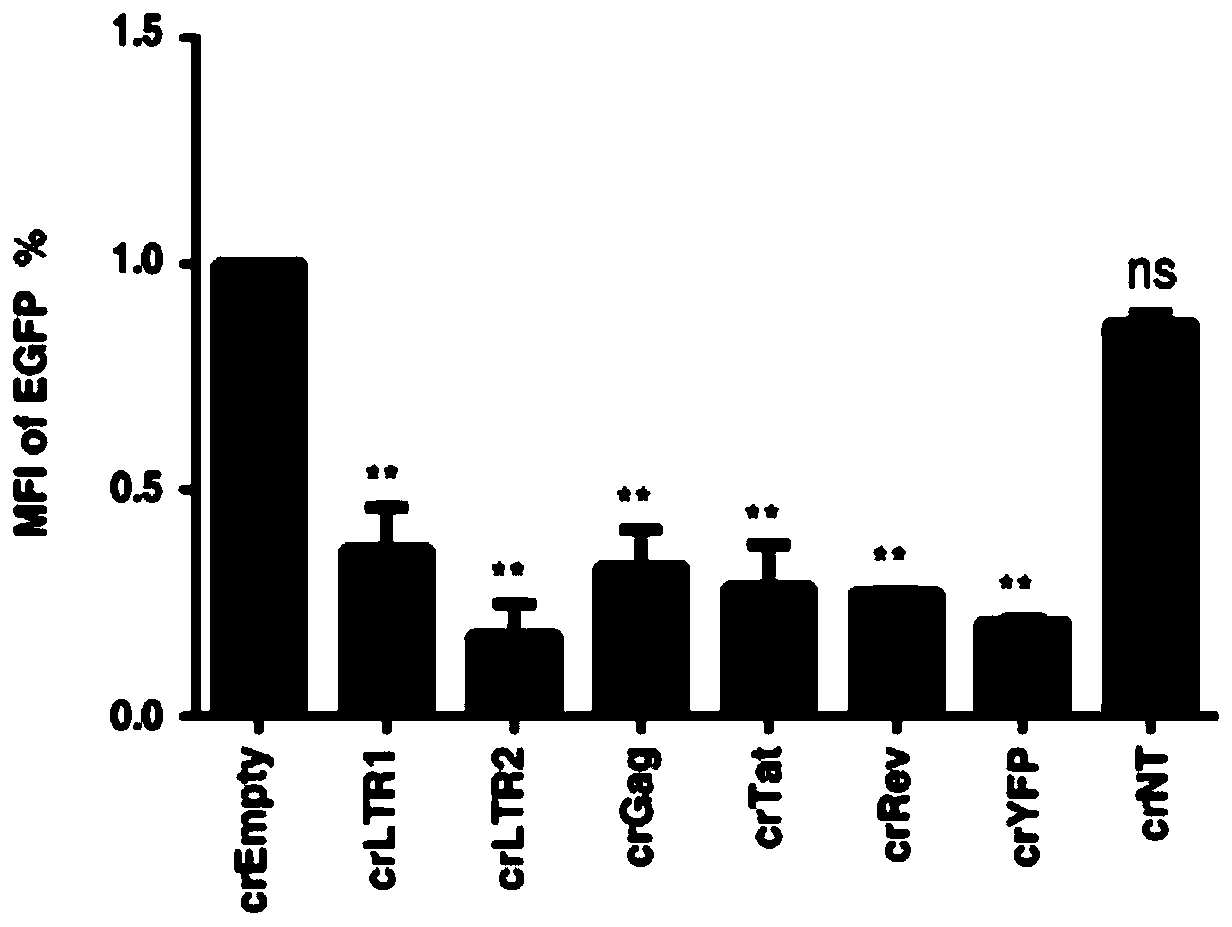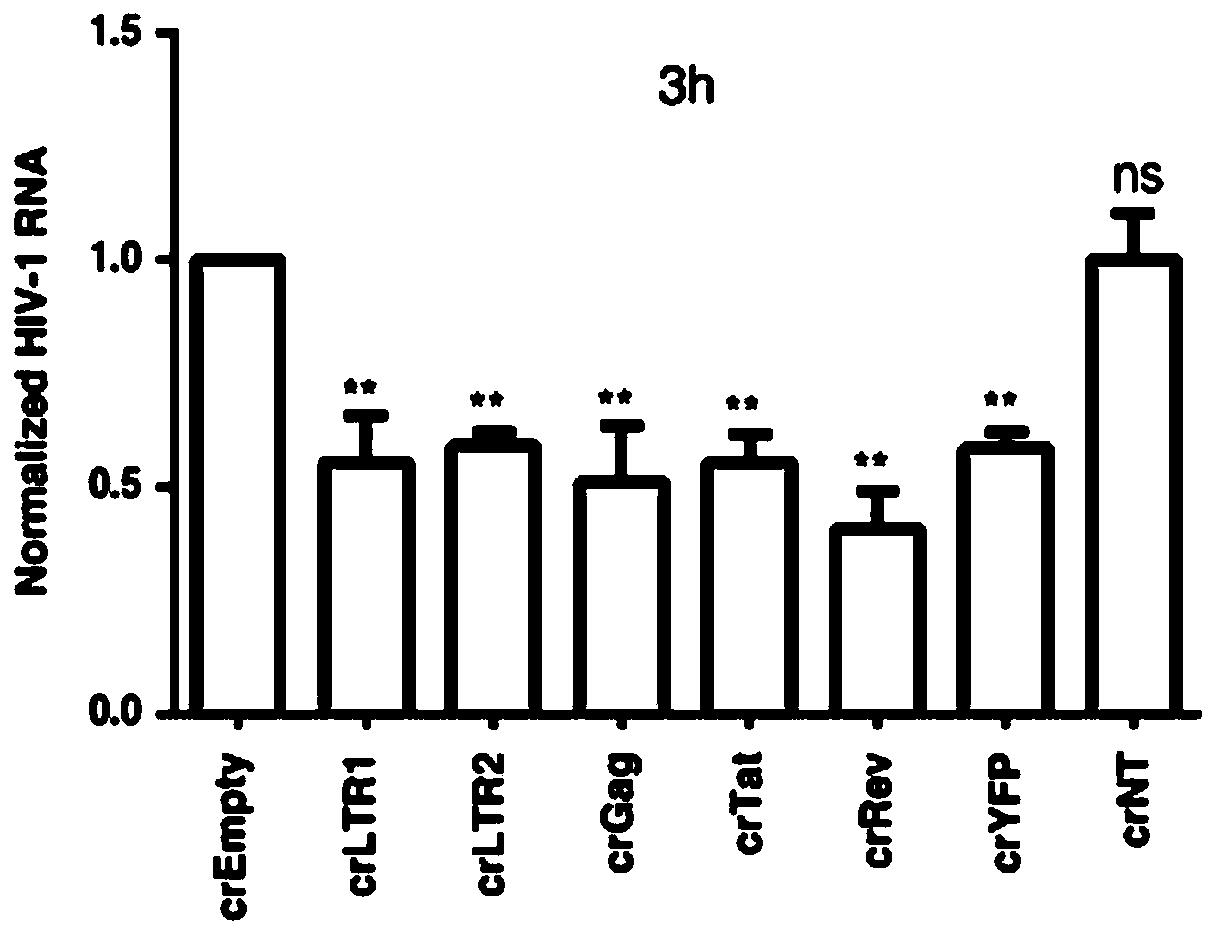Patents
Literature
120 results about "DNA virus" patented technology
Efficacy Topic
Property
Owner
Technical Advancement
Application Domain
Technology Topic
Technology Field Word
Patent Country/Region
Patent Type
Patent Status
Application Year
Inventor
A DNA virus is a virus that has DNA as its genetic material and replicates using a DNA-dependent DNA polymerase. The nucleic acid is usually double-stranded DNA (dsDNA) but may also be single-stranded DNA (ssDNA). DNA viruses belong to either Group I or Group II of the Baltimore classification system for viruses. Single-stranded DNA is usually expanded to double-stranded in infected cells. Although Group VII viruses such as hepatitis B contain a DNA genome, they are not considered DNA viruses according to the Baltimore classification, but rather reverse transcribing viruses because they replicate through an RNA intermediate. Notable diseases like smallpox, herpes, and the chickenpox are caused by such DNA viruses.
Treatment of neoplasms with viruses
InactiveUS20030044384A1Convenient treatmentReduce productionSsRNA viruses negative-senseBiocideDiseaseAnti viral response
The subject invention relates to viruses that are able to replicate and thereby kill neoplastic cells with a deficiency in the IFN-mediated antiviral response, and their use in treating neoplastic disease including cancer and large tumors. RNA and DNA viruses are useful in this regard. The invention also relates to methods for the selection, design, purification and use of such viruses for cancer therapy.
Owner:PRO VIRUS
Treatment of neoplasms with viruses
InactiveUS20030165465A1Less weight lossConvenient treatmentSsRNA viruses negative-senseBiocideDiseaseAnti viral response
The subject invention relates to viruses that are able to replicate and thereby kill neoplastic cells with a deficiency in the IFN-mediated antiviral response, and their use in treating neoplastic disease including cancer and large tumors. RNA and DNA viruses are useful in this regard. The invention also relates to methods for the selection, design, purification and use of such viruses for cancer therapy.
Owner:WELLSTAT BIOLOGICS CORP
Treatment of neoplasms with viruses
Owner:WELLSTAT BIOLOGICS CORP
Synthetic peptide, inhibitor to DNA viruses
The present invention relates to the identification of the active domain of Herpoxin, a DNA virus-inhibiting-protein which was isolated from cobra venom in U.S. Pat. No. 5,648,339 and has a molecular weight of 13.5 kDa We have isolated a fragment of Herpoxin which contains the active domain and which we have named Herp. Herp mimics the activity of Herpoxin in inhibiting the replication of DNA viruses. A synthetic version of the active fragment was produced having the amino acid sequence Asn-Leu-Tyr-Gln-Phe-Lys-Asn-Met-Ile-Gln. The synthetic version of Herp consisting of ten amino acids inhibits the replication of DNA viruses such as herpes viruses types 1 and 2, cytomegalovirus and varicella zoster virus as well as Tubercle bacilli.
Owner:LIPPS BINIE V +1
Multiple fluorescence PCR (polymerase chain reaction) kit capable of detecting five DNA (deoxyribonucleic acid) viruses of aquatic animal simultaneously
ActiveCN103773895ALow detection costExpand the scope of detectionMicrobiological testing/measurementFluorescenceChannel catfish virus
The invention relates to a multiple fluorescence PCR (polymerase chain reaction) kit capable of detecting five DNA (deoxyribonucleic acid) viruses of an aquatic animal simultaneously. The kit comprises a buffer solution, and also comprises five pairs of fluorescence PCR primers and five molecular beacon probes and a PCR primer, wherein the five pairs of fluorescence PCR primers and the five molecular beacon probes are respectively corresponding to channel catfish virus, epizootic haematopoietic necrosis virus, goldfish haematopoietic necrosis virus, fancy carp herpes virus and red porgy iridescent virus, the fluorescence PCR primers and the molecular beacon probes comprise nucleotide sequences shown in SEQ ID NO.3-17, and the PCR primer comprises nucleotide sequences shown in SEQ ID NO.1-2. The multiple fluorescence PCR kit capable of detecting five DNA viruses of the aquatic animal simultaneously can rapidly detect all the DNA viruses infecting the aquatic animals once, the sensitivity is increased, and the cost for detecting single sample is reduced.
Owner:SHENZHEN AUDAQUE DATA TECH
Method for co-extracting DNA/RNA (Deoxyribonucleic Acid/Ribonucleic Acid) virus nucleic acid
InactiveCN105925568AImprove throughputHigh-throughput extractionMicrobiological testing/measurementDNA preparationMagnetic beadBiology
The invention provides a method for co-extracting DNA / RNA (Deoxyribonucleic Acid / Ribonucleic Acid) virus nucleic acid. The method comprises the following steps: cracking a sample, which is diluted with saline, with a guanidine isothiocyanate cracking solution containing an RNA precipitating aid agent; releasing and dissociating DNA or RNA of different nucleic acid viruses in the sample into a cracking solution; adding magnetic beads to form a magnetic bead-nucleic acid compound; washing to obtain a nucleic acid eluting solution. The novel method for co-extruding the DNA and the RNA from a respiratory tract sample is established based on the nano magnetic beads; in a whole process, toxic reagents including phenol, chloroform, beta-mercaptoethanol and the like are not used, and time and labor are saved. The method is used for commonly extracting the DNA and the RNA from the respiratory tract sample and is also applicable to nucleic acid co-extraction of other samples with different types, such as urine and blood; impurities including protein and the like are efficiently removed and the degradation of the nucleic acid is reduced; the aim of detecting DNA viruses and RNA viruses in the same tube at the same time is realized. The method is simple, convenient, rapid and safe, and is particularly suitable for fluorescent quantitative PCR (Polymerase Chain Reaction) detection and the like.
Owner:HANGZHOU FIRST PEOPLES HOSPITAL
Compositions and methods for the treatment of progressive multifocal leukoencephalopathy (PML)
ActiveUS20130183289A1Reduce riskBiocideOther blood circulation devicesPolyomavirus JCViral infection
The invention relates to compositions, methods, and kits for treating subjects infected by or at risk of infection with a DNA virus (e.g., a JC Virus or a BK virus). Aspects of the invention are useful to prevent or treat DNA virus associated conditions (e.g., PML) in subjects that are immunocompromised. Compositions are provided that inhibit intracellular replication of DNA viruses.
Owner:BIOGEN MA INC
Treatment of neoplasms with viruses
The subject invention relates to viruses that are able to replicate and thereby kill neoplastic cells with a deficiency in the IFN-mediated antiviral response, and their use in treating neoplastic disease including cancer and large tumors. RNA and DNA viruses are useful in this regard. The invention also relates to methods for the selection, design, purification and use of such viruses for cancer therapy.
Owner:WELLSTAT BIOLOGICS CORP
Method of simultaneously extracting animal DNA (Deoxyribonucleic Acid) virus and RNA (Ribonucleic Acid) virus nucleic acid in blood serum and double swabs
The invention discloses a method of simultaneously extracting animal DNA (Deoxyribonucleic Acid) virus and RNA (Ribonucleic Acid) virus nucleic acid in blood serum and double swabs. The method comprises the following steps of: carrying out lysis on a to-be-extracted substance by using guanidinium isothiocyanate lysate; adsorbing RNA by a silica gel membrane; removing impure protein by washing liquor I; removing impurities by washing liquor II; carrying out DEPC (Diethylpyrocarbonate) water-washing to remove nucleic acid, wherein the guanidinium isothiocyanate lysate comprises 3M-7M guanidinium isothiocyanate, 0.6%-1.0% TriTon-100, 30mM-50mM Tris-Cl, 5mM-15mM DTT (DL-Dithiothreitol), 60 mu g / mL-90 mu g / mL protease K, 10mM-30mM EDTA (Ethylene Diamine Tetraacetic Acid), and PH of the guanidinium isothiocyanate lysate is 4.3-4.6; the washing liquor I comprises 5M-6M guanidine hydrochloride, 53%-59% absolute ethyl alcohol, 70-90 mu g / mL protease K, and PH of the washing liquor I is 6.4-6.6; the washing liquor II comprises 70%-80% alcohol. The method disclosed by the invention has the advantages of being simple in extracting process, short in period, low in cost, and capable of simultaneously extracting RNA virus and DNA virus nucleic acid in an animal blood serum sample and a double-swab sample.
Owner:安徽华卫集团禽业有限公司
Infection and treatment of neoplasms with vesicular stomatitis virus
InactiveUS8043612B2Convenient treatmentIncreased interferon sensitivityOrganic active ingredientsVirusesDiseaseDna viral
Owner:WELLSTAT BIOLOGICS CORP
Use of endoperoxides for the treatment of infections caused by flaviviridae, including hepatitis C, bovine viral diarrhea and classical swine fever virus
InactiveUS20050059647A1Useful in treatmentBiocidePeptide/protein ingredientsAbnormal tissue growthBovine Viral Diarrhea Viruses
The use of sesquiterpenes and, in particular sesquiterpene lactone endoperoxides, such as artemisinin and analogs thereof, for the treatment of hepatitis C virus infections. Artemisinin, analogs of artemsisnin and some crude Artemisia extracts were tested in vitro against DNA-viruses, retro-viruses and Flavivirida, (an important family of human and animal RNA pathogens). These compounds were also screened for anti-tumor activity. Strong activity of artemisinin was noticed against the bovine viral diarrhea virus (BVDV). As pestiviruses, such as BVDV, share many similarities with hepatitis C virus (HCV), we can conclude that endoperoxides in general and artemisinin more specificly have efficacy as treatments for hepatitis C viral infections.
Owner:KEMIN FOODS L C
Verification method of low pH incubation virus inactivation
InactiveCN108342368AImprove scalabilitySimple purification processSsRNA viruses negative-senseMicrobiological testing/measurementVirus inactivationValidation methods
The invention relates to a verification method of low pH incubation virus inactivation. The method comprises the steps of selecting indicator viruses and corresponding host cells; amplifying and purifying the indicator viruses; titering virus working primary liquid and samples; optimizing the pH value of virus inactivation verification experiments; estimating the low pH incubation virus inactivation effect. By means of the method, the full process of genetically engineered drug production technology virus inactivation can be simulated in a laboratory, and the amplifying and purifying technology of the indicator viruses is optimized, so that the titer of the working primary liquid of the indicator viruses is increased, the pH value is unified to 7.0, the quality is stable, and subsequent operation is facilitated; meanwhile, the specific technological details like the determination of the optimal incubation pH value and the optimization of the pH adjusting mode of low pH incubation are optimized, and the efficiency and the effectiveness of the inactivation of common DNA viruses, RNA viruses, enveloped viruses and non-enveloped viruses are improved.
Owner:CANVEST WUHAN BIOTECH
DNA virus vectors and methods for their preparation
InactiveUS6291246B1Improve efficiencyDifficult to controlBacteriaGenetic material ingredientsDna viralVirology
The invention relates to a method for the preparation of DNA virus vectors capable of replication in eukaryotic as well as in prokaryotic cells as well as to DNA virus vectors prepared by this method. Preferably, the method is used to prepare Epstein-Barr virus vectors.
Owner:GSF FORSCHUNGSZENT FUR UMWELT & GESUNDHEIT
Primer group, kit and method for detecting pathogenic microorganisms based on targeted sequencing
ActiveCN112831604APrecision diagnosis and treatment planHigh sensitivityMicrobiological testing/measurementDNA/RNA fragmentationMultiplexPathogenic microorganism
The invention discloses a pathogenic microorganism detection primer group based on targeted sequencing, and belongs to the technical field of microorganism detection. The pathogenic microorganism detection primer group comprises a first primer pair to a 56th primer pair, the nth primer pair is composed of an nth forward amplification primer as shown in SEQ ID No. (2n-1) and an nth reverse amplification primer as shown in SEQ ID No. 2n, and n is equal to 1-56. The invention also discloses a pathogenic microorganism detection kit containing the primer group, and a multiplex PCR amplification method for detecting pathogenic microorganisms by using the primer group or the kit. The pathogenic microorganism detection primer group for detecting pathogenic microorganisms has the advantages of comprehensive pathogen coverage, high sensitivity, high detection flux, low cost and the like, can assist in clinically and accurately identifying common pathogens including bacteria, fungi, DNA viruses, RNA viruses, parasites, mycoplasma chlamydia and the like, and has important clinical application value.
Owner:美格医学检验所(广州)有限公司
Treatment of neoplasms with viruses
InactiveUS20090081161A1Convenient treatmentIncreased interferon sensitivityOrganic active ingredientsVirusesDiseaseAnti viral response
The subject invention relates to viruses that are able to replicate and thereby kill neoplastic cells with a deficiency in the IFN-mediated antiviral response, and their use in treating neoplastic disease including cancer and large tumors. RNA and DNA viruses are useful in this regard. The invention also relates to methods for the selection, design, purification and use of such viruses for cancer therapy.
Owner:WELLSTAT BIOLOGICS CORP
Methods of producing a library and methods of selecting polynucleotides of interest
InactiveUS20060160129A1Improve efficiencyVirusesMicrobiological testing/measurementNucleotideDna viral
Owner:UNIVERSITY OF ROCHESTER
Treatment of neoplasms with viruses
InactiveUS20080057037A1Convenient treatmentSsRNA viruses negative-senseBiocideDiseaseAnti viral response
The subject invention relates to viruses that are able to replicate and thereby kill neoplastic cells with a deficiency in the IFN-mediated antiviral response, and their use in treating neoplastic disease including cancer and large tumors. RNA and DNA viruses are useful in this regard. The invention also relates to methods for the selection, design, purification and use of such viruses for cancer therapy.
Owner:WELLSTAT BIOLOGICS CORP
Novel plant DNA virus carrier and its use
InactiveCN1425772AEasy accessClear functionMicrobiological testing/measurementGenetic engineeringViral FunctionForeign protein
The plant DNA virus carrier includes the infectious carrier of Chinese tomato yellowing curly leaf virus DNA-A and DNA-beta, derived plant gene silencing carrier and virus expressing carrier. The present invention also provides one new kind of satellite DNA molecule constructing plant DNA virus carrier and it has at least 72% homology with any one sequence of SEQ ID No.1-12. The present invention also provides the use and method of utilizing plant DNA virus carrier in virus functional genome research, plant functional genome research and foreign protein expression. The present invention provides one important platorm for researching virus genomee structure, function and expression and regulation mechanism and the interaction between virus and plant; provides one excellent tool for researching plant functional gene; and establishing one technological platform for using plant as bioreactor expressing foreign protein.
Owner:ZHEJIANG UNIV
Gene chip kit for aquatic animal DNA (deoxyribonucleic acid) virus detection, and preparation method and application thereof
ActiveCN103757133ALow detection costExpand the scope of detectionMicrobiological testing/measurementNucleotideAquatic animal
The invention relates to a gene chip for detecting aquatic animal DNA (deoxyribonucleic acid) viruses, which comprises a solid-phase carrier and an aquatic animal DNA virus molecule beacon probe fixed to the solid-phase carrier, wherein the molecule beacon probe comprises nucleotide sequences disclosed as SEQ ID NO.3-7, the 5' end of the nucleotide sequences disclosed as SEQ ID NO.3-7 is connected with FAM fluorescein, and the 3' end is connected with a Dabcyl quenching group. The invention also relates to a kit for detecting aquatic animal DNA viruses, and a preparation method and application thereof. The gene chip and kit for detecting aquatic animal DNA viruses can implement one-step quick detection on all infected aquatic animal DNA viruses, have higher sensitivity, and reduce the detection cost for individual samples.
Owner:SHENZHEN AUDAQUE DATA TECH
Membrane-integrated viral DNA-packaging motor protein connector biosensor for DNA sequencing and other uses
ActiveUS20150267253A1Improve throughputVolume/mass flow measurementFluid pressure measurement by electric/magnetic elementsGene deliveryLipid formation
Compositions and methods are disclosed that exploit the unprecedented modification of double-stranded DNA virus DNA-packaging motor protein connector polypeptides to render them capable of stable incorporation into lipid membranes as a self-assembled homodocamer that forms an aperture through which conductance can occur when an electrical potential is applied across the membrane. The aperture permits use of the modified protein as a biosensor, for dsDNA sequencing, SNP detection and highly sensitive affinity capture and fingerprinting of analytes, and also finds use in electropotential-driven solute translocation, such as for liposomal loading to form therapeutic nanoparticles (e.g., gene delivery) and bioreactors, and for other uses. The aperture can further be used in optical detection of dsDNA or other acceptor labeled analytes in a fluorophore donor labeled single pore channel.
Owner:GUO PEIXUAN
Duplex PCR (polymerase chain reaction) detection primer and kit for quickly distinguishing porcine circoviruses type 2 and type 3
InactiveCN108531656AEasy to operateQuick checkMicrobiological testing/measurementMicroorganism based processesDuplex pcrSterile water
The invention belongs to the technical field of animal virology and molecular biology and discloses a duplex PCR (polymerase chain reaction) detection primer and kit for quickly distinguishing porcinecircoviruses type 2 and type 3. The kit comprises primer sequences shown as SEQ ID1-4, 2*F8 Fastlong PCR MasterMix, a cDNA template and sterile water. The duplex PCR detection kit for quickly distinguishing the porcine circoviruses type 2 and type 3 has advantages that by duplex PCR amplification, two types of DNA viruses similar in lesion can be detected in one time, the total detection time iscontrolled to be about two hours, a detection method is easy in operation, convenient and quick, and quick detection can be realized.
Owner:GUANGXI VETERINARY RES INST
Nucleic acid extraction-free virus preservation solution
InactiveCN111321123APrevent extractionAvoid the complicated process of extracting viral DNAMicrobiological testing/measurementViruses/bacteriophagesViral nucleic acidViral infection
The present invention discloses a nucleic acid extraction-free virus preservation solution. The nucleic acid extraction-free virus preservation solution comprises a component A and a component B. Thecomponent A comprises an acidic buffer, Tween 20 and acidic protease; wherein, the molar concentration of the acidic buffer is 20 mM-100 mM, pH is 1.0-5.0, volume percentage of the Tween 20 is 0.1%-2%and concentration of the acid protease is 0.1-100 mg / mL; and the component B comprises a neutral or alkaline buffer, the concentration is 0.5-1 M and pH is 7.0-9.0. The preservation solution can be used to preserve RNA viruses and DNA viruses. During a preservation process, virus infectivity is severely weakened or even completely lost, and the preservation solution can be directly used for virusnucleic acid amplification without needing nucleic acid extraction.
Owner:TIANDZ INC
Reagent for extracting RNA or DNA virus in body fluid
The invention provides a reagent for extracting RNA or DNA virus in body fluid, which is characterized in that each liter of the reagent comprises the following compositions: 4 to 6 mols of guanidinium isothiocyanate, 1 to 2.5 mols of guanidine hydrochloride, 20 to 50 mmols of sodium citrate, 10 to 30 ml of beta-mercaptoethanol, 5 to 10 grams of sarcosyl, 1.5 to 3 mols of urea, 60 to 100 mg of glycogen, and the balance of water. The efficiency of extracting the RNA or DNA virus by the reagent is high, and high-purity RNA or DNA virus can be stably obtained only by 100 mu L of body fluid sample. When the obtained RNA or DNA is used for quantitative PCR detection, the detection sensitivity can reach 50 copies / mL.
Owner:GUANGZHOU UNIVERSITY OF CHINESE MEDICINE
Treatment of neoplasms with RNA viruses
InactiveUS7780962B2Convenient treatmentSsRNA viruses negative-senseBiocideDiseaseAnti viral response
The subject invention relates to viruses that are able to replicate and thereby kill neoplastic cells with a deficiency in the IFN-mediated antiviral response, and their use in treating neoplastic disease including cancer and large tumors. RNA and DNA viruses are useful in this regard. The invention also relates to methods for the selection, design, purification and use of such viruses for cancer therapy.
Owner:WELLSTAT BIOLOGICS CORP
DNA virus detection by DNA chip
ActiveUS20090253120A1Easy to detectMinimize and reduce interferenceMicrobiological testing/measurementNucleic Acid ProbesCycle time
The disclosure relates to chips containing nucleic acid probes or primers and their use in methods to detect nucleic acid molecules of DNA viruses. The disclosure includes DNA chips in contact with a thermocycler capable of automatically regulating the temperature, temperature cycle times, and number of temperature cycles of the chips to provide genetic diagnosis in one step.
Owner:SUGENTECH INC
Kit for synchronous detection of twenty three respiratory pathogens and detection method thereof
ActiveCN110578017AShort ampliconReduced Chances of ContaminationMicrobiological testing/measurementMicroorganism based processesReverse transcriptaseBiology
The invention discloses a kit for synchronous detection of twenty three respiratory pathogens and a detection method thereof. The kit comprises: a transcription and amplification primer, 2.5 x Reaction MIX, DEPC water, a hot-start tap enzyme and a reverse transcriptase, wherein the transcription and amplification primer includes primer sequences of twenty three respiratory pathogens including 17 RNA viruses, 2 DNA viruses and 4 respiratory tract pathogenic bacteria, and the gene sequences are as shown in SEQ ID NO.1-NO.44. After pathogen samples are extracted, transcription and amplification are completed through single-tube reaction of the kit, capillary electrophoresis detection is performed, and pathogen categories are determined through software analysis of results. The technical scheme has the advantages of strong specificity, high sensitivity, fast detection speed, completion of transcription amplification by a single tube, and simple and convenient operation.
Owner:深圳市百迈生命科学有限公司 +1
Grouper piscidin 4 polypeptide and application thereof
ActiveCN105801680AGrowth inhibitionInhibition of replicationAntibacterial agentsPeptide/protein ingredientsAntiviral drugDna viral
The invention discloses a grouper piscidin 4 polypeptide and application thereof.The amino acid sequence of the grouper piscidin 4 polypeptide is shown in SEQ ID NO.7.The grouper piscidin 4 polypeptide is antibacterial peptide with the antibacterial and antiviral activity.The grouper piscidin 4 polypeptide has the advantages of inhibiting bacterium growth and inhibiting DNA virus and RNA virus replication, and can be used for preparing antibacterial medicine and antivirus medicine.The research on the grouper piscidin 4 polypeptide has great scientific value and application value for further researching and developing disease-resistant gene replication.
Owner:SOUTH CHINA SEA INST OF OCEANOLOGY - CHINESE ACAD OF SCI
New condensed tricyclonucleoside compound containing acyclovir fragment and its preparation method
The present invention discloses a new condensed tricyclonucleoside compound containing acyclovir fragment and its preparation method. Said invented compound has ontiviral activity, specially has the activity for resisting DNA virus. It also has the latent antitumor activity and high biological activity.
Owner:SHANGHAI INST OF PHARMA IND
Application of Cas13a in antagonistic virus
PendingCN110548134AHigh cleavage activityPeptide/protein ingredientsHydrolasesListeria seeligeriGenome editing
The invention discloses an application of Cas13a in an antagonistic virus. Cas13a comes from any one of Leptotrichia buccalis, listeria seeligeri, Leptotrichia shahii and Leptotrichia wadei CRISPR (clustered regularly interspaced short palindromic repeats) systems, and the virus is one or more of a DNA virus, a RNS virus and a retrovirus of human being. Three different types of viruses (includingthe DNA virus, the RNA virus and the retrovirus) are inhibited in a life cycle in cells through a gene editing technology, and a result displays higher RNA nicking activity and wider application range.
Owner:INST OF PATHOGEN BIOLOGY CHINESE ACADEMY OF MEDICAL SCI
Features
- R&D
- Intellectual Property
- Life Sciences
- Materials
- Tech Scout
Why Patsnap Eureka
- Unparalleled Data Quality
- Higher Quality Content
- 60% Fewer Hallucinations
Social media
Patsnap Eureka Blog
Learn More Browse by: Latest US Patents, China's latest patents, Technical Efficacy Thesaurus, Application Domain, Technology Topic, Popular Technical Reports.
© 2025 PatSnap. All rights reserved.Legal|Privacy policy|Modern Slavery Act Transparency Statement|Sitemap|About US| Contact US: help@patsnap.com
